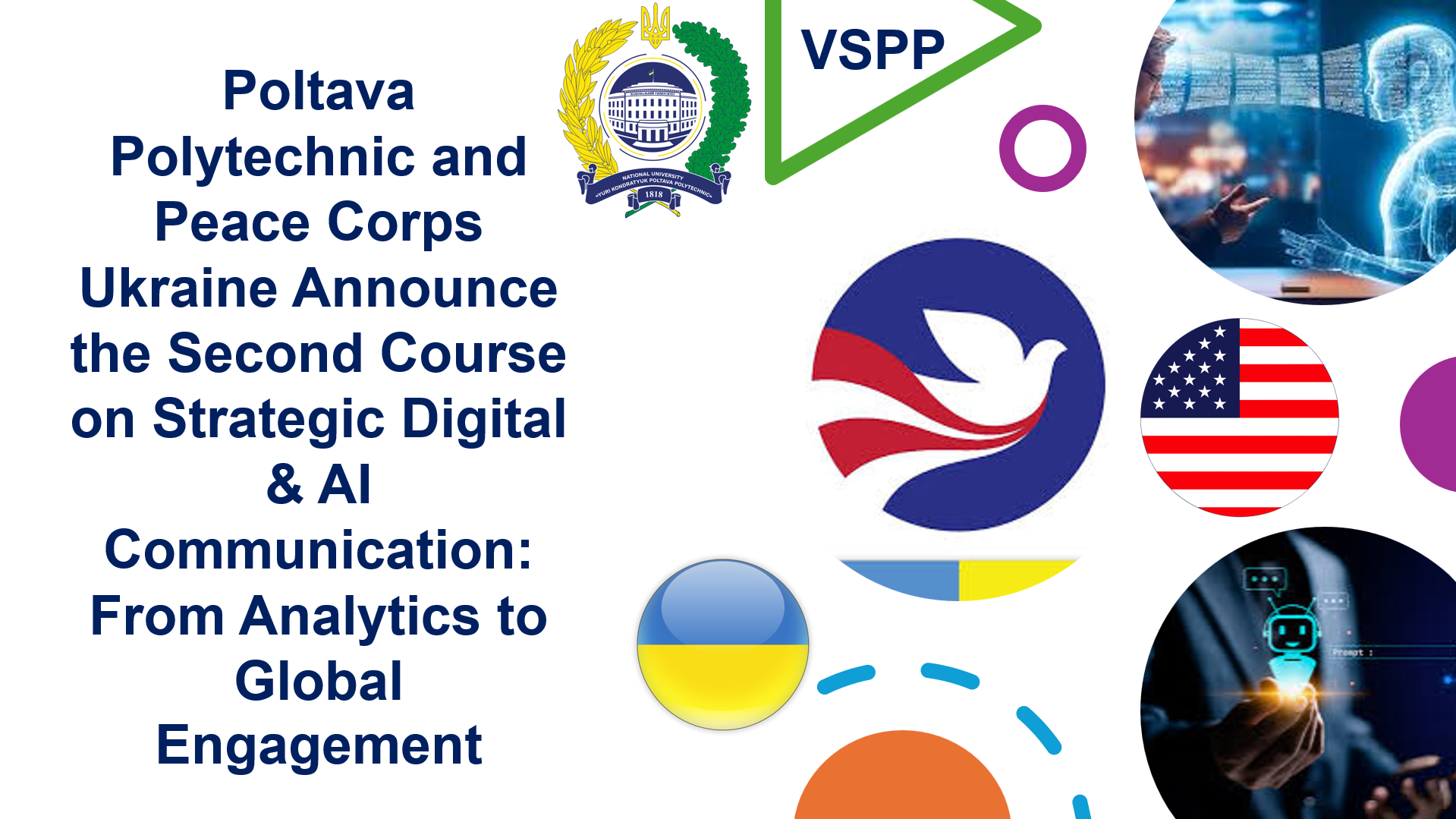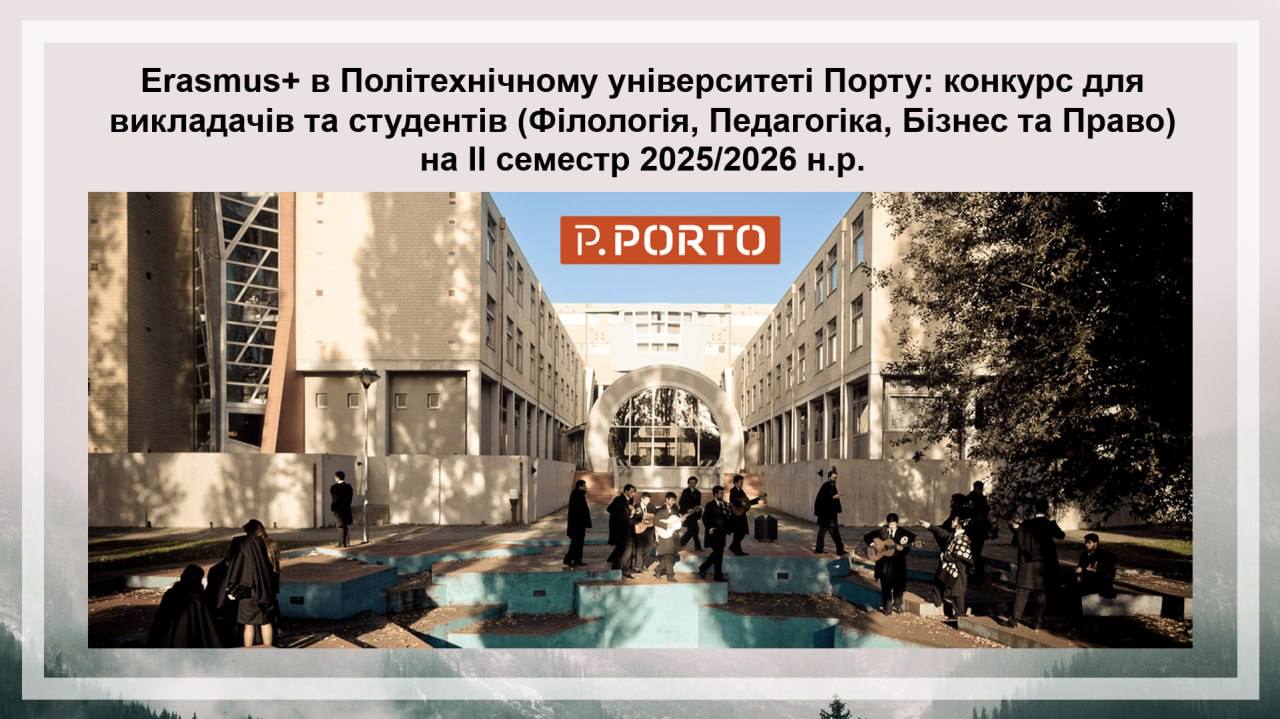Candidate of Philology, Associate Professor of the Department of Germanic Philology and Translation of the National University “Yuri Kondratyuk Poltava Polytechnic” Anna Pavelieva underwent a three-day online training “Discovering skills and competencies: Teamwork, Communication and Conflict management” under the Erasmus+ program, classes of which were held on December 14, 21 and 28, 2021 in online format, and received a certificate of its successful completion. Lecturers from Ukraine, Georgia, Greece and Algeria joined the large-scale scientific event organized by the DOREA Educational Institute in Limassol, Cyprus, to deliberate on practical cases of employment skills, teamwork, communication skills and interpersonal conflict management.
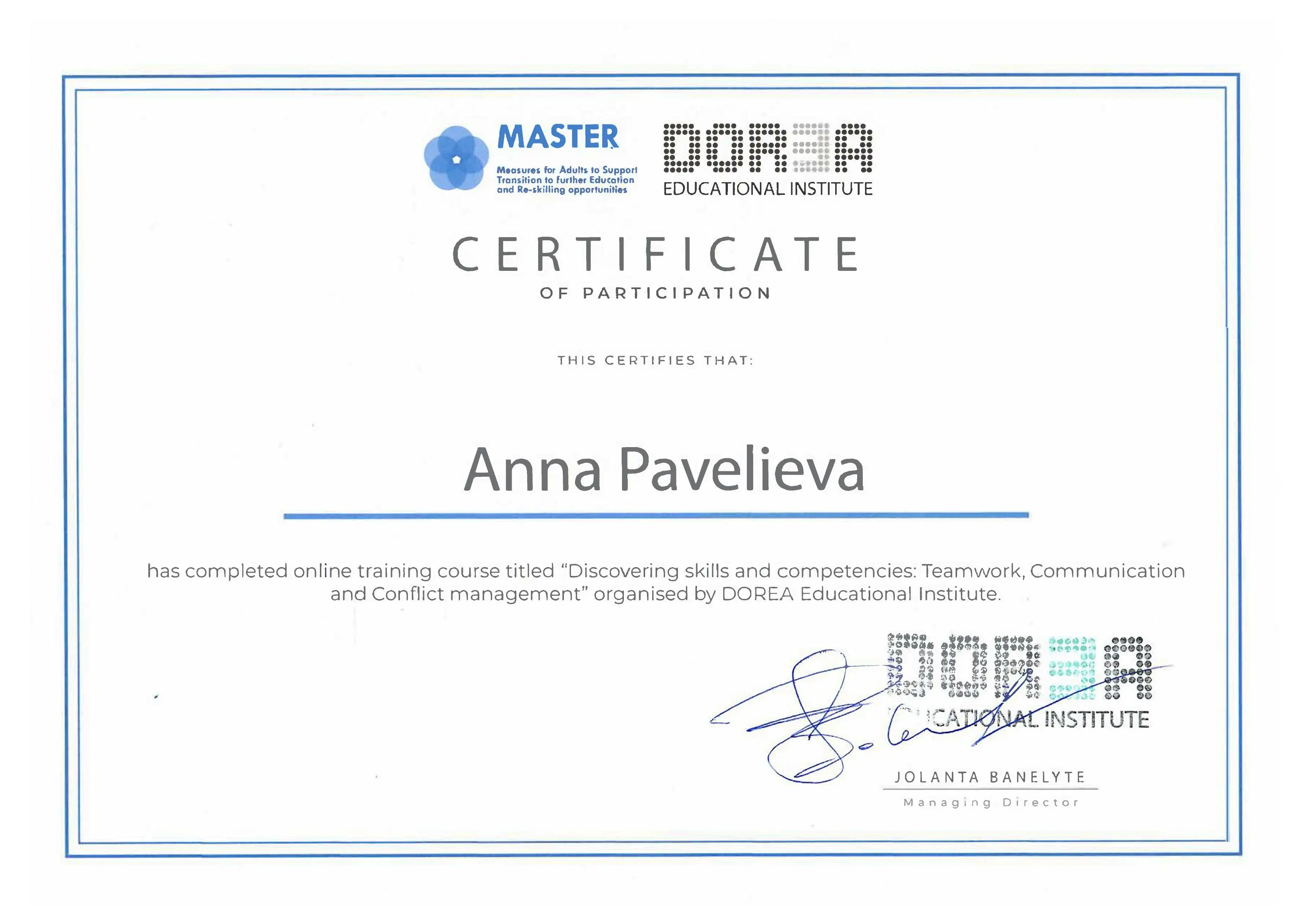
During the three-day intensive program, partakers discussed 9 main components of personal, social and learning competence (PSL competence) – attitudes to personal development, organization of training, critical thinking, collaboration, communication, empathy, psychological state and well-being, flexibility and ability to manage behavior. In particular, participants and coaches analyzed practical cases of good and bad teamwork examples, based on the following scheme: TEAM: T – Trusting relationships; E – established purpose, values and goals; A – active participation; M – mutual accountability).
Coach Chrisie Doluay presented the basic stages of teamwork: forming-storming-norming-performing-adjourning (creation of an idea – its discussion – workflow – normalization – implementation – completion) and told the audience about the criteria for evaluating teamwork (analysis team reactions to changes as well as analysis of strengths and weaknesses of teamwork). After the discussion, the participants were introduced to a 5-step model for solving problems that arise during teamwork: 1) identification of the problem (its main components and determining whether this problem is similar to those you have solved before); 2) determining the problem (sorting and analysis of available information); 3) search for solutions (determining the advantages and disadvantages of each of the probable solutions to this problem); 4) development of strategies (search for the best solution); 5) evaluation of the work effectiveness (analysis of the work done, identifying points that could have been done better).
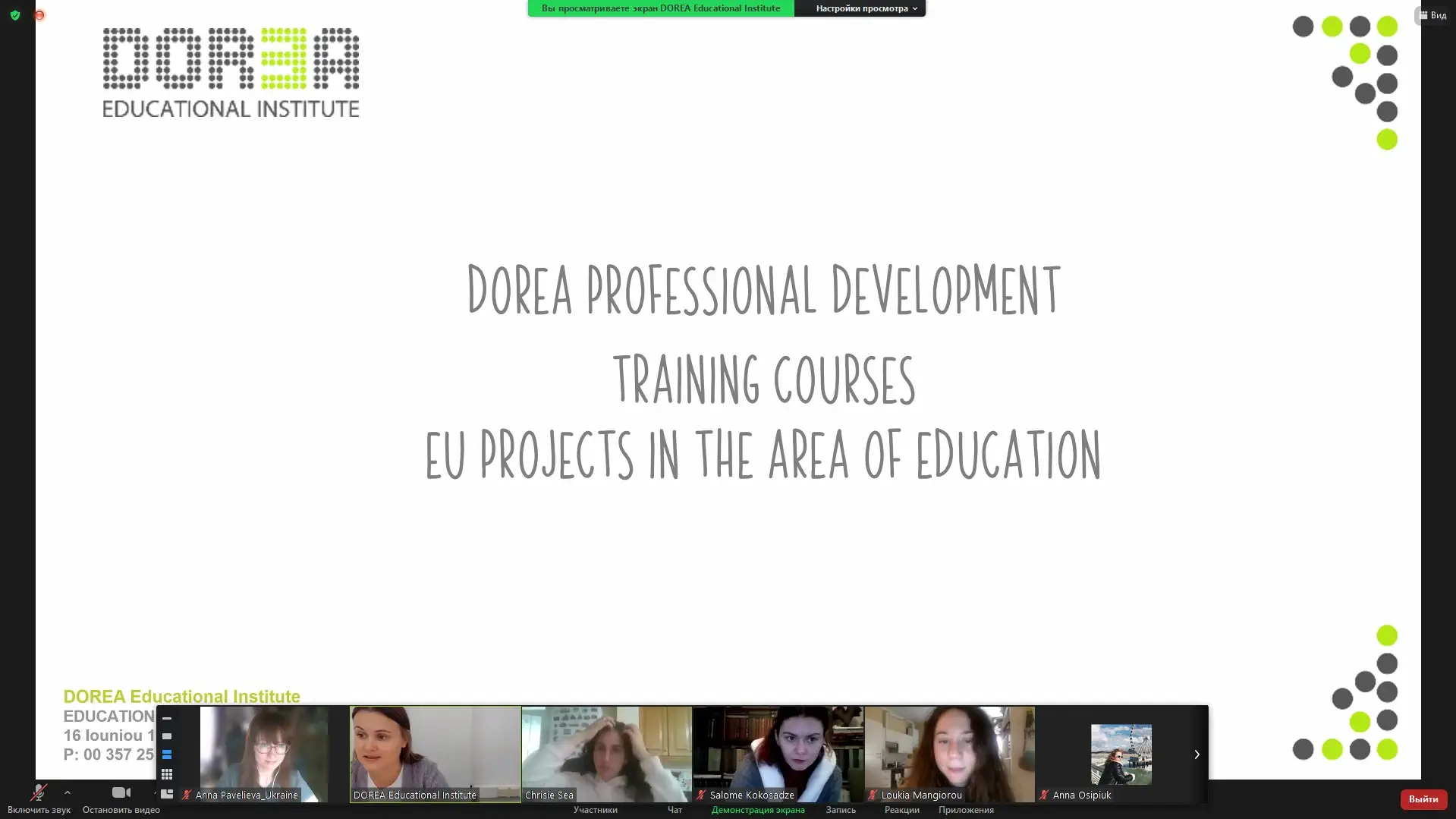
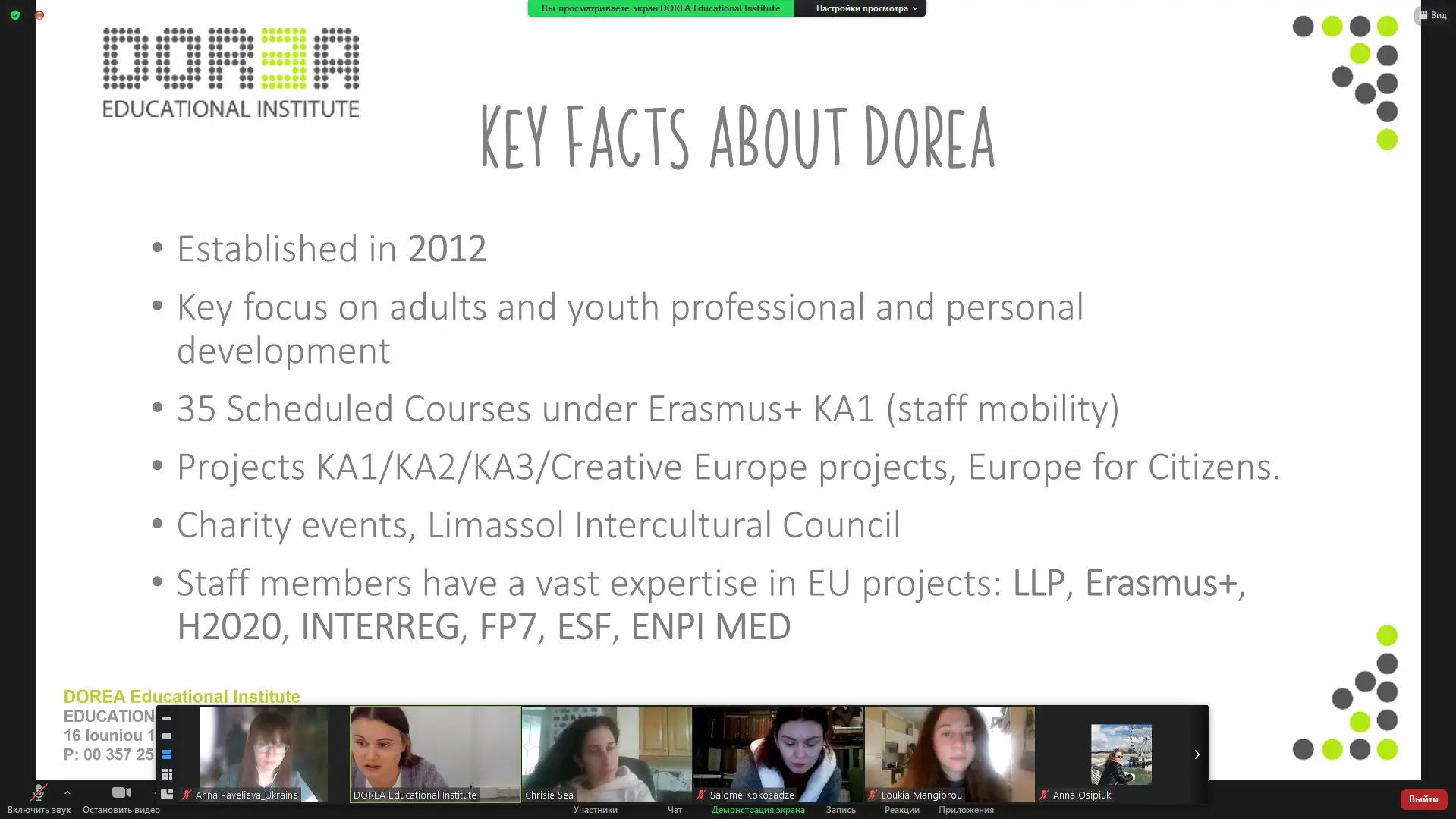

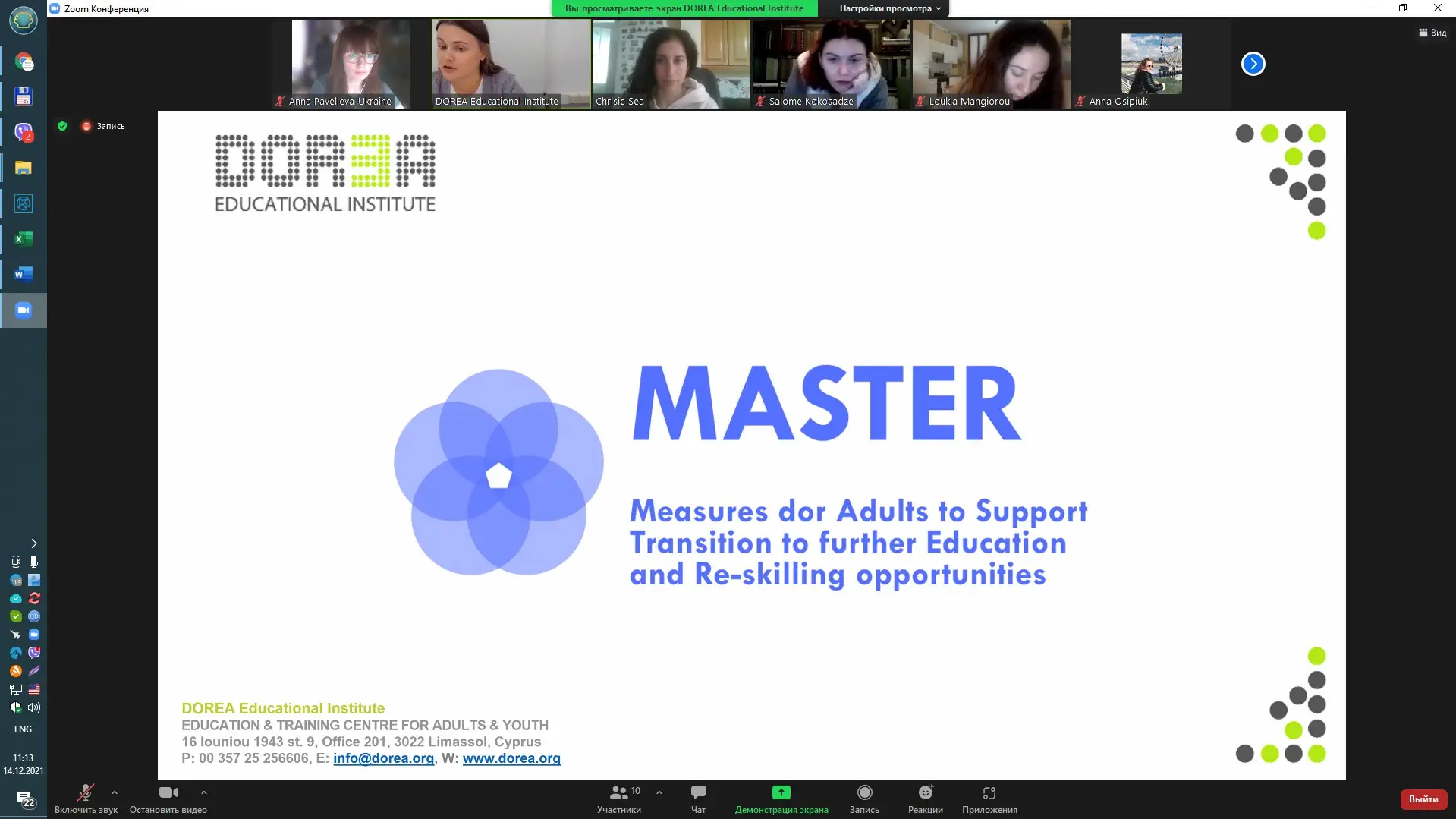
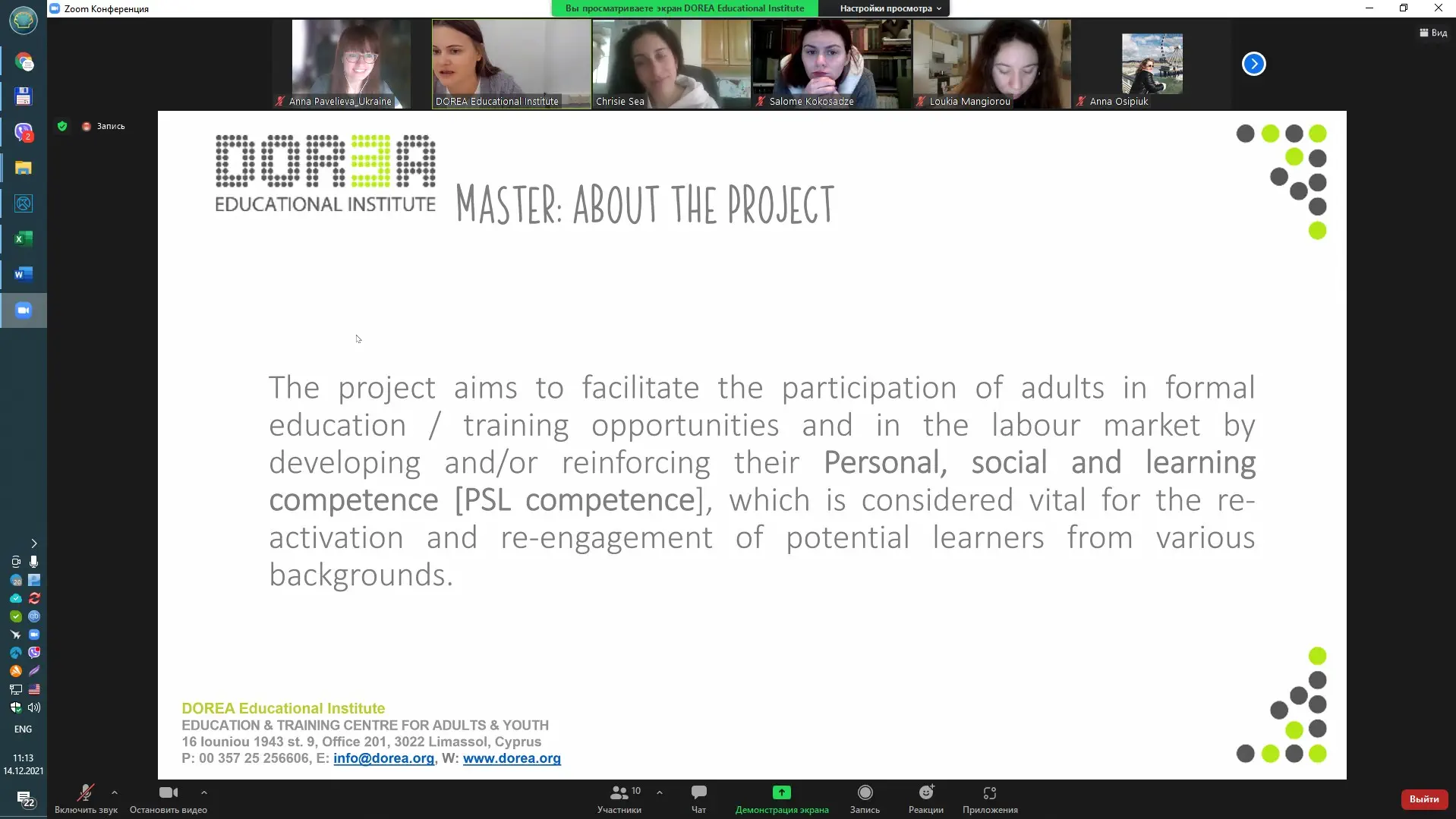
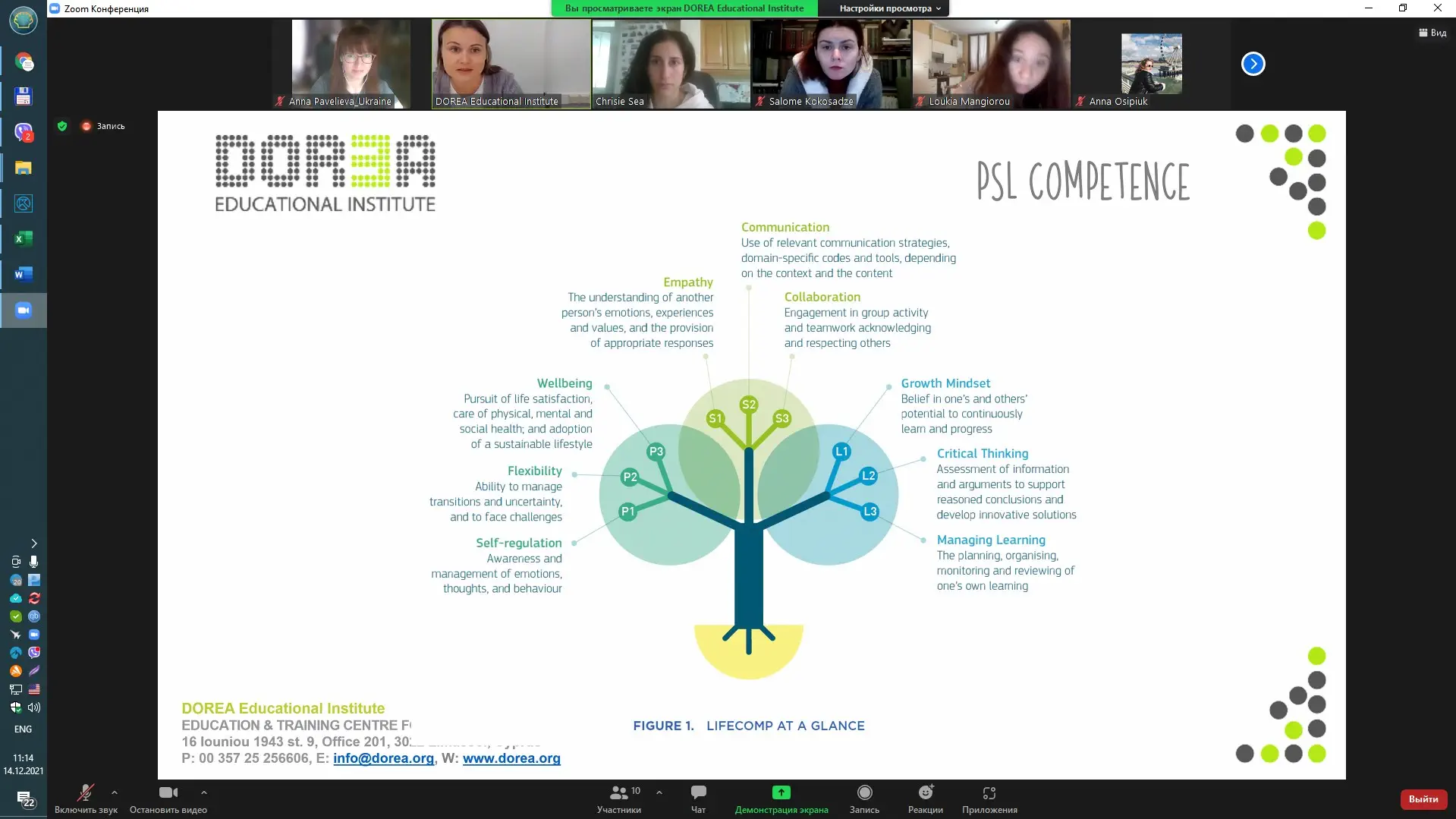
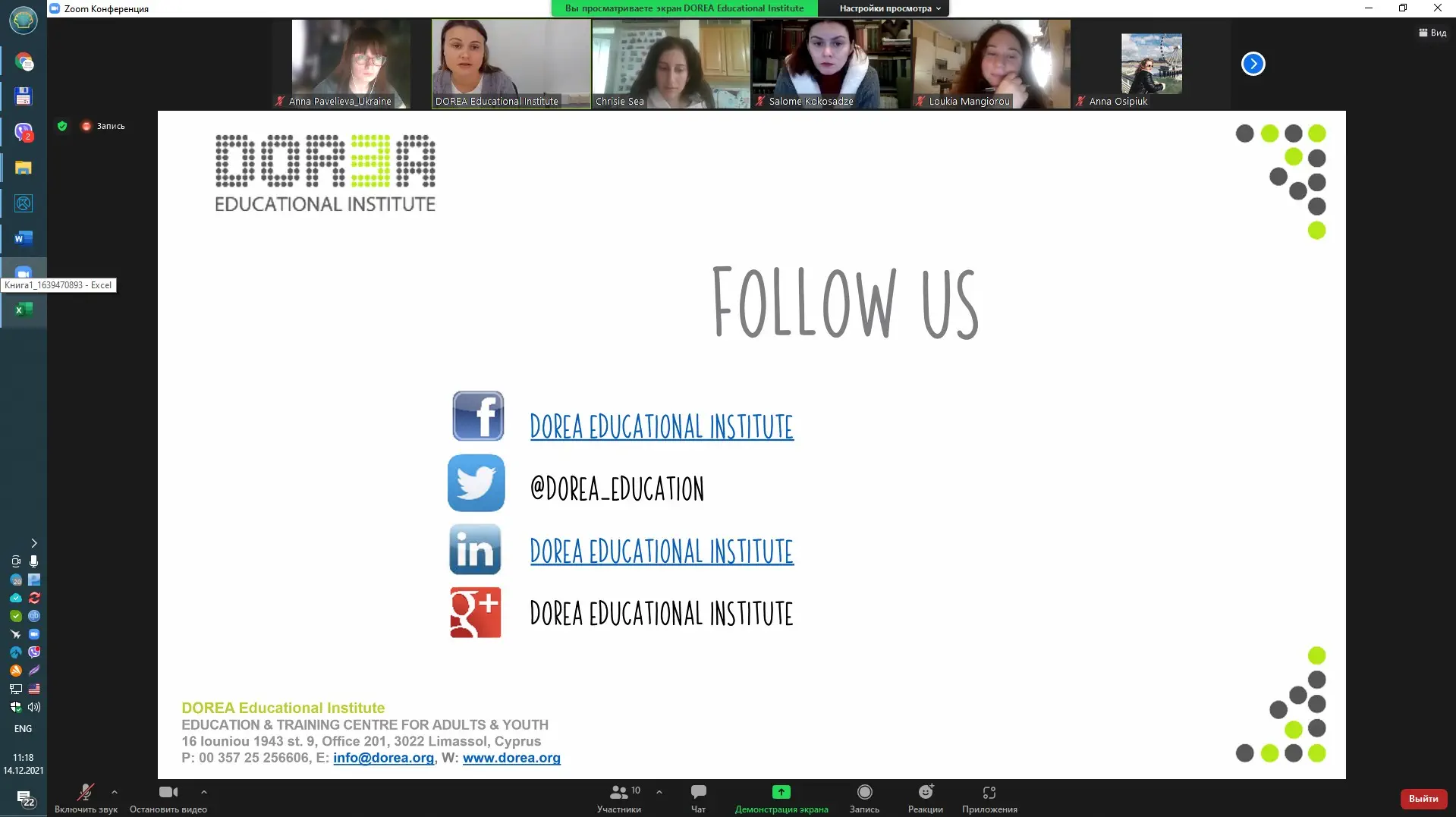
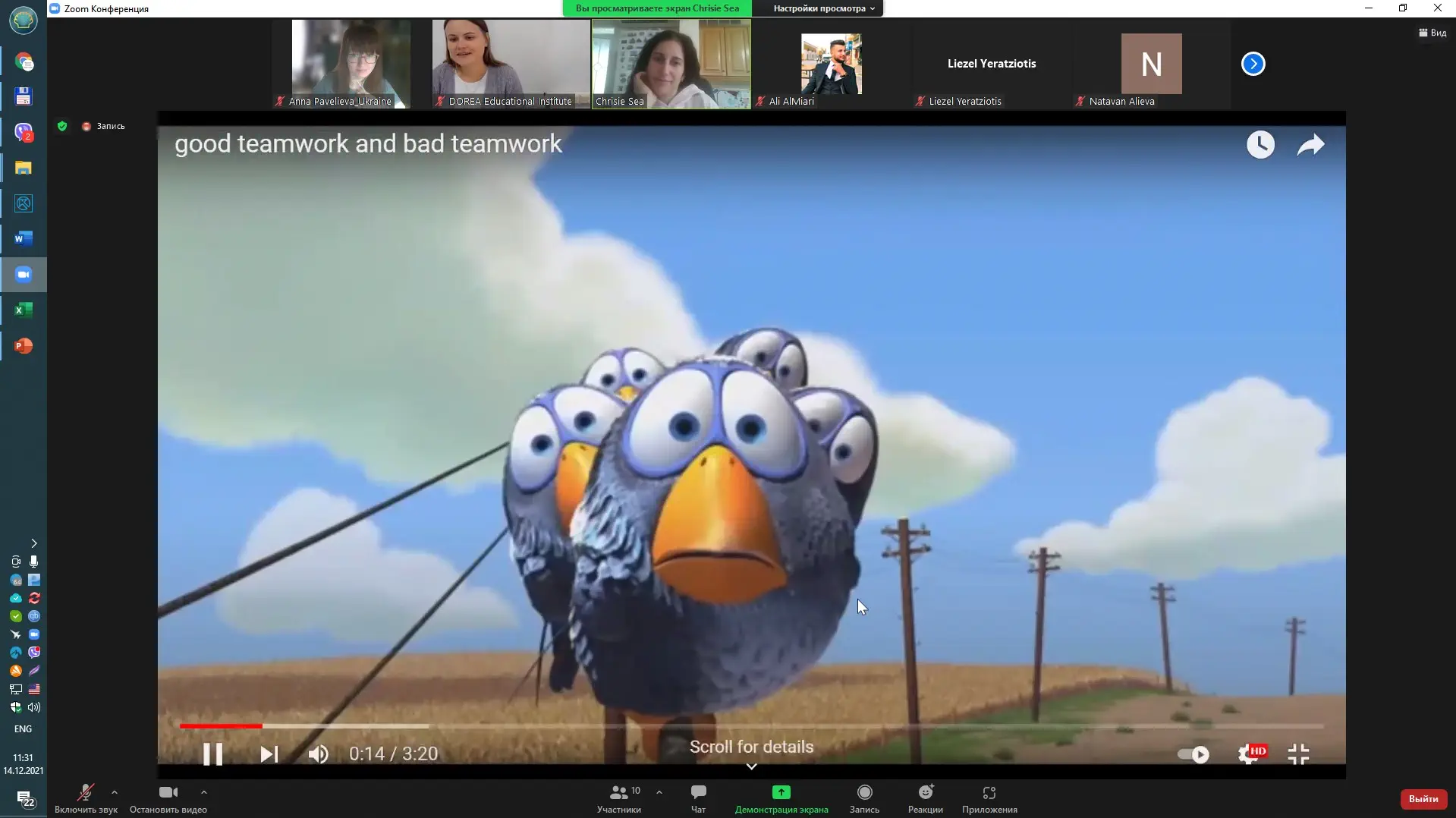
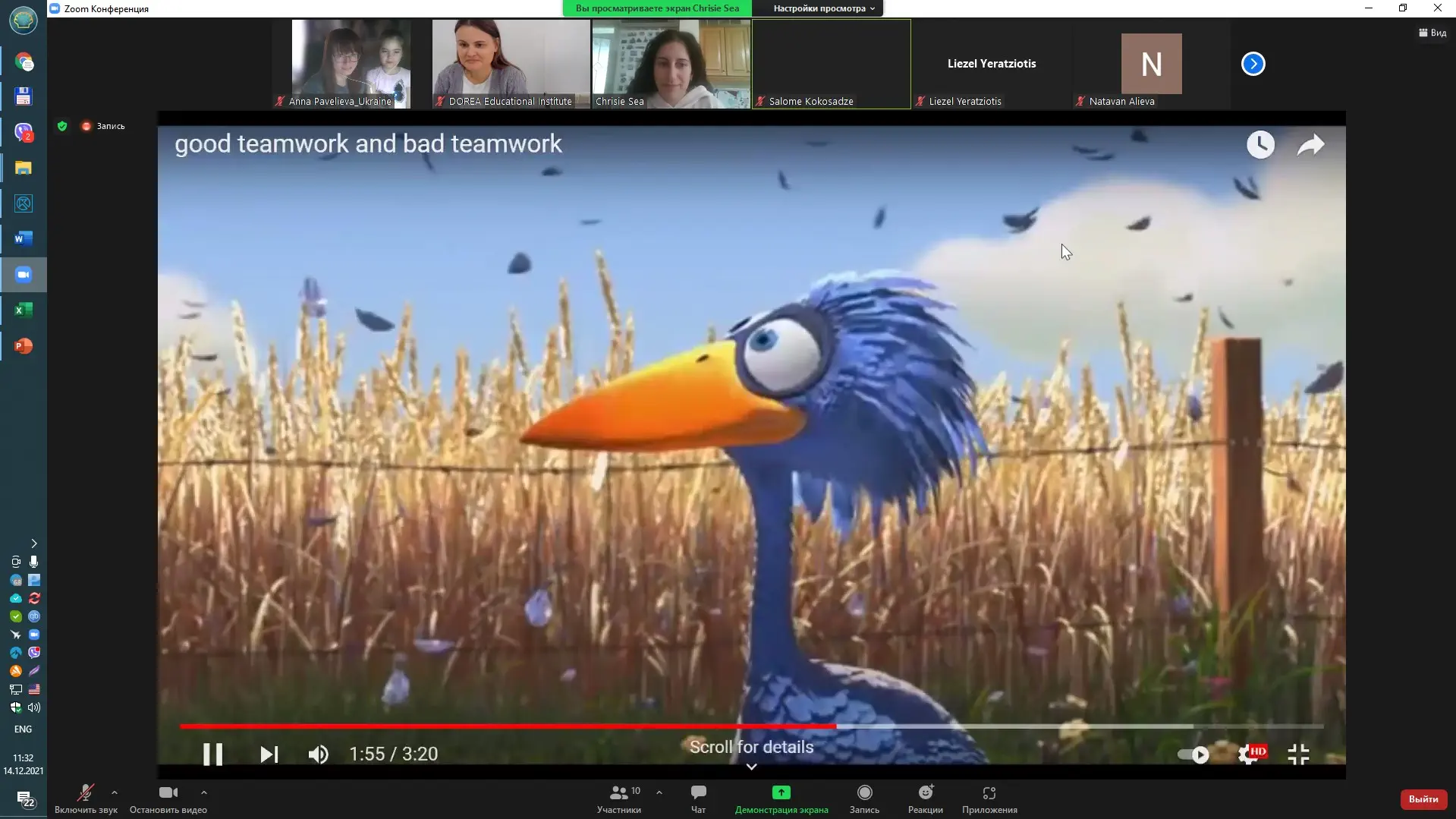
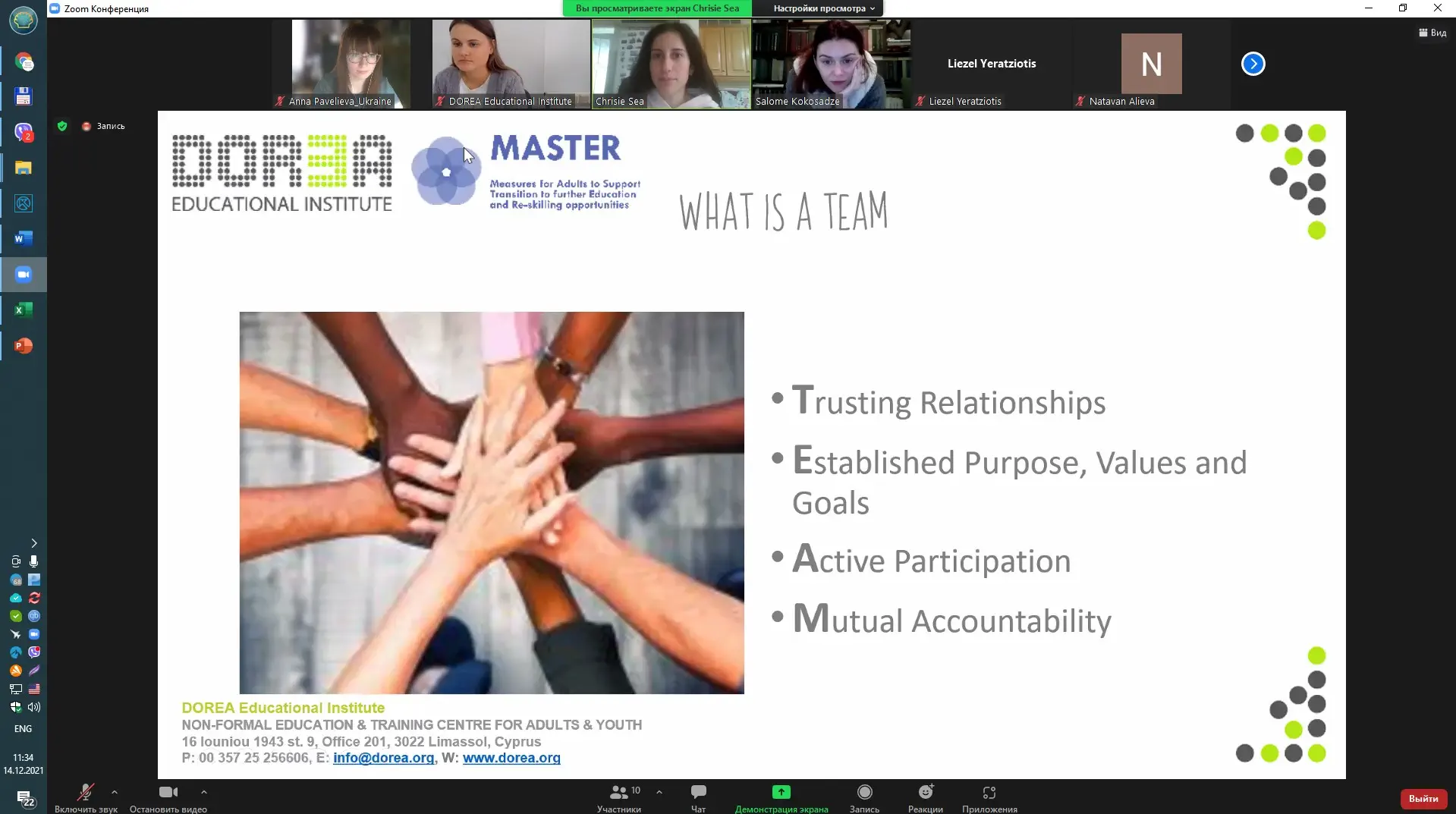
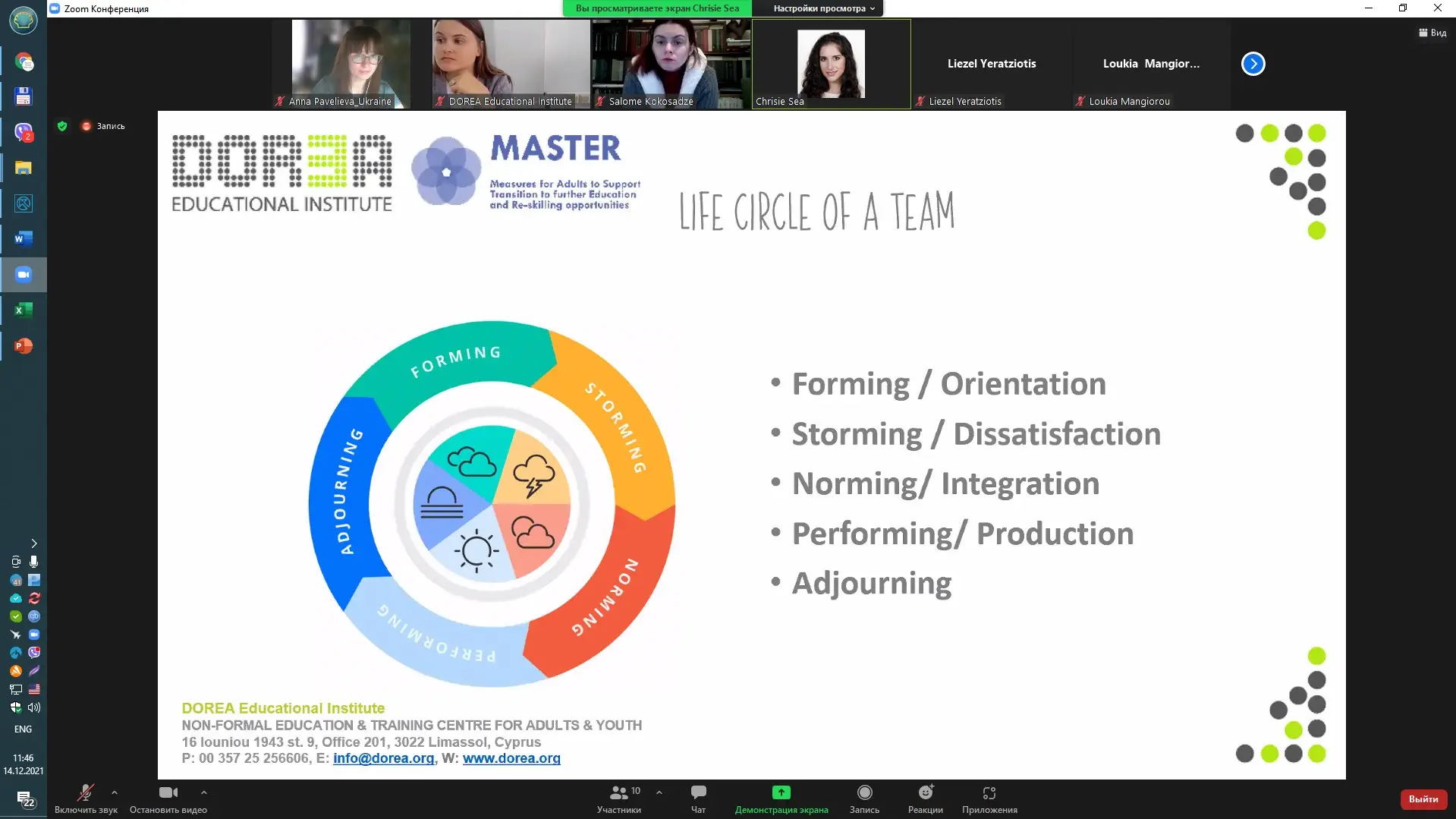
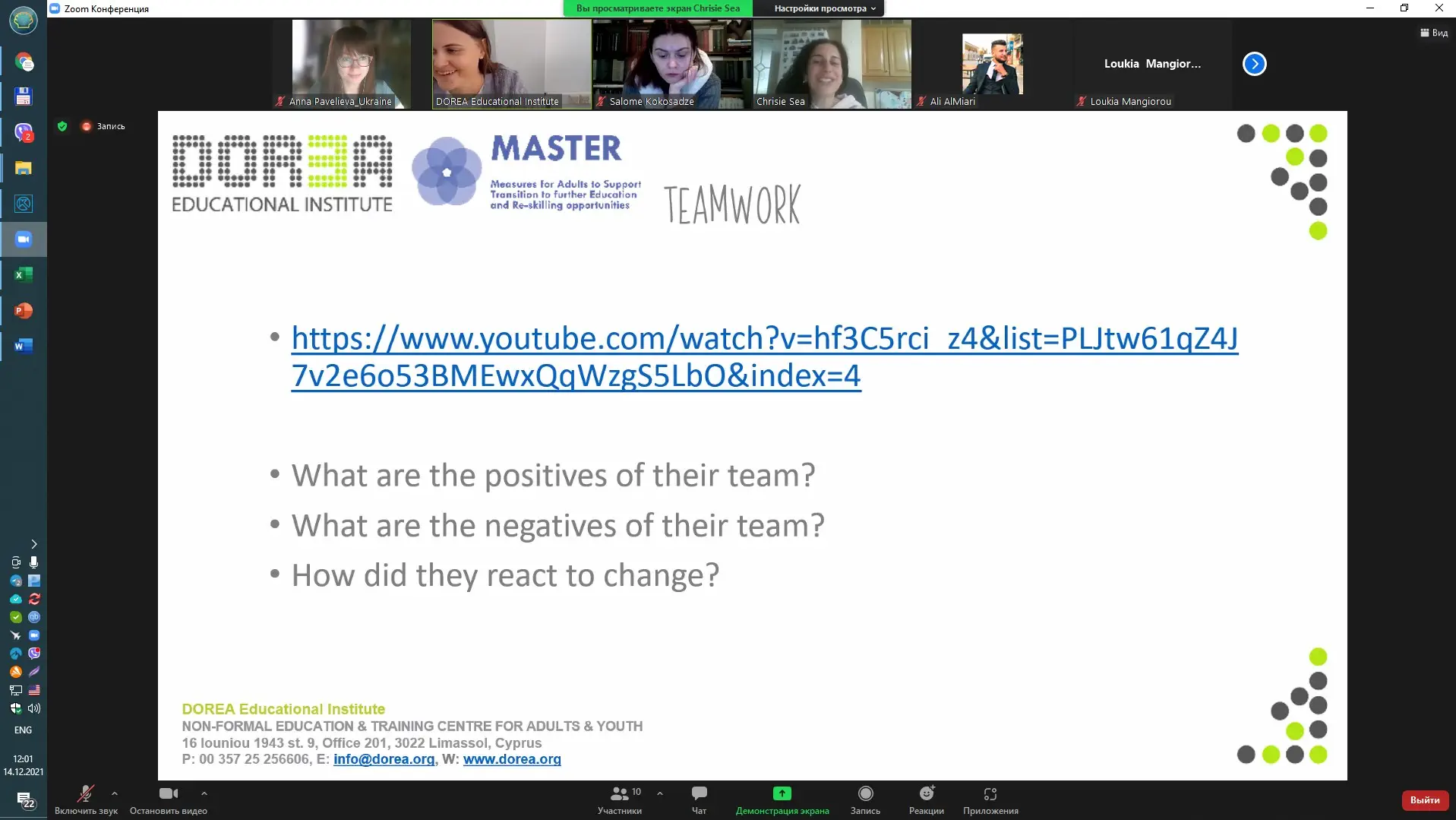
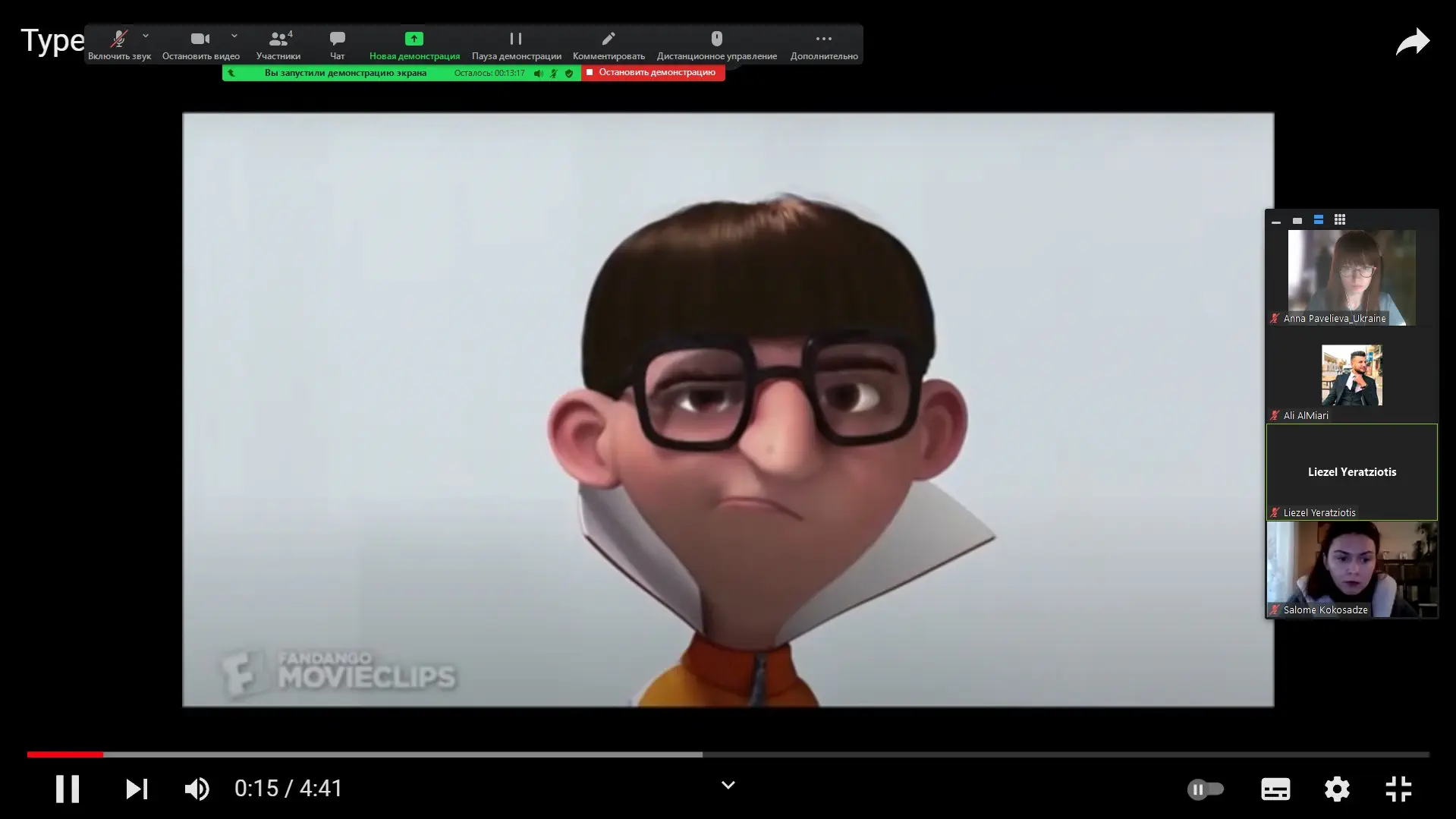
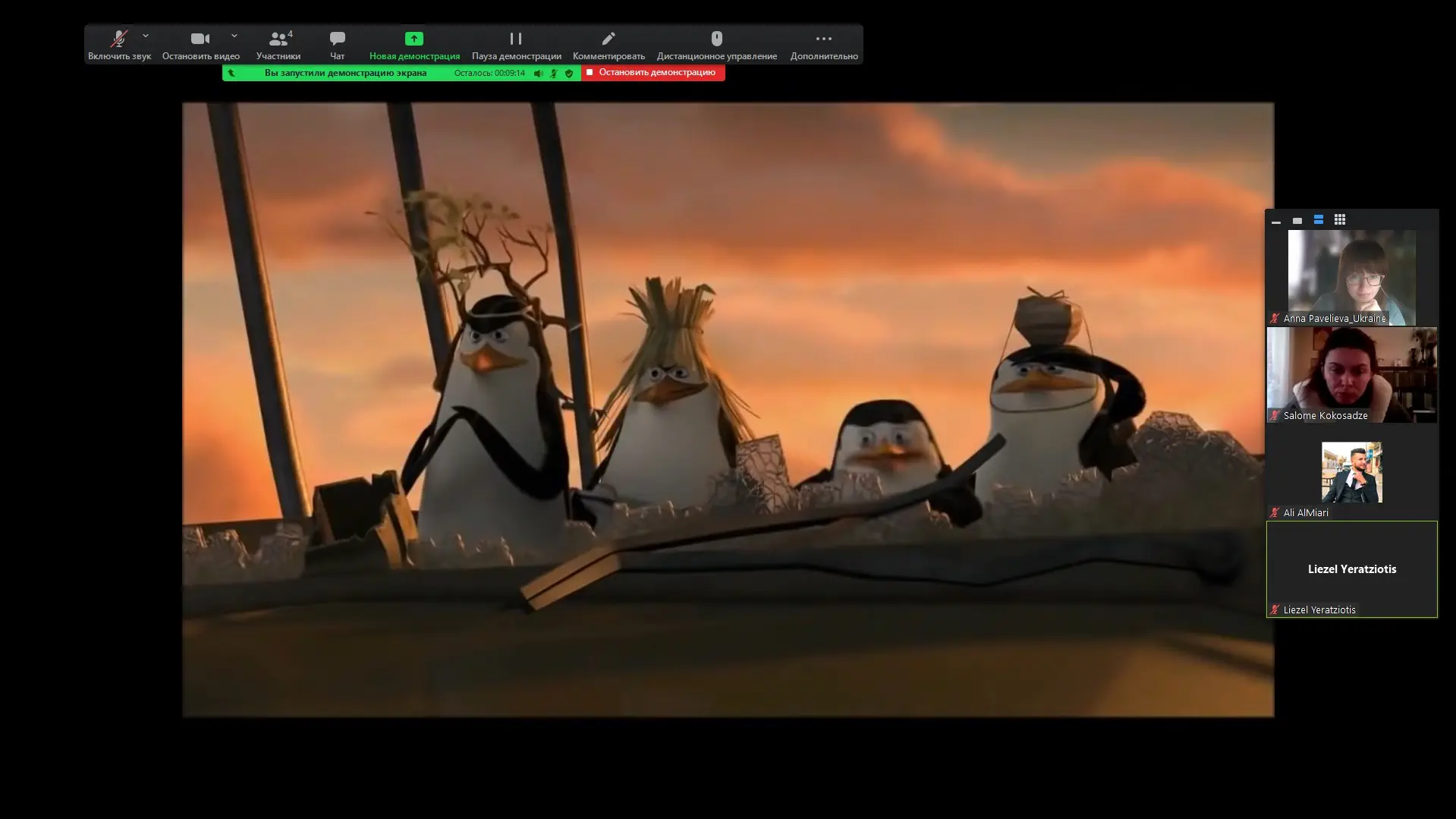
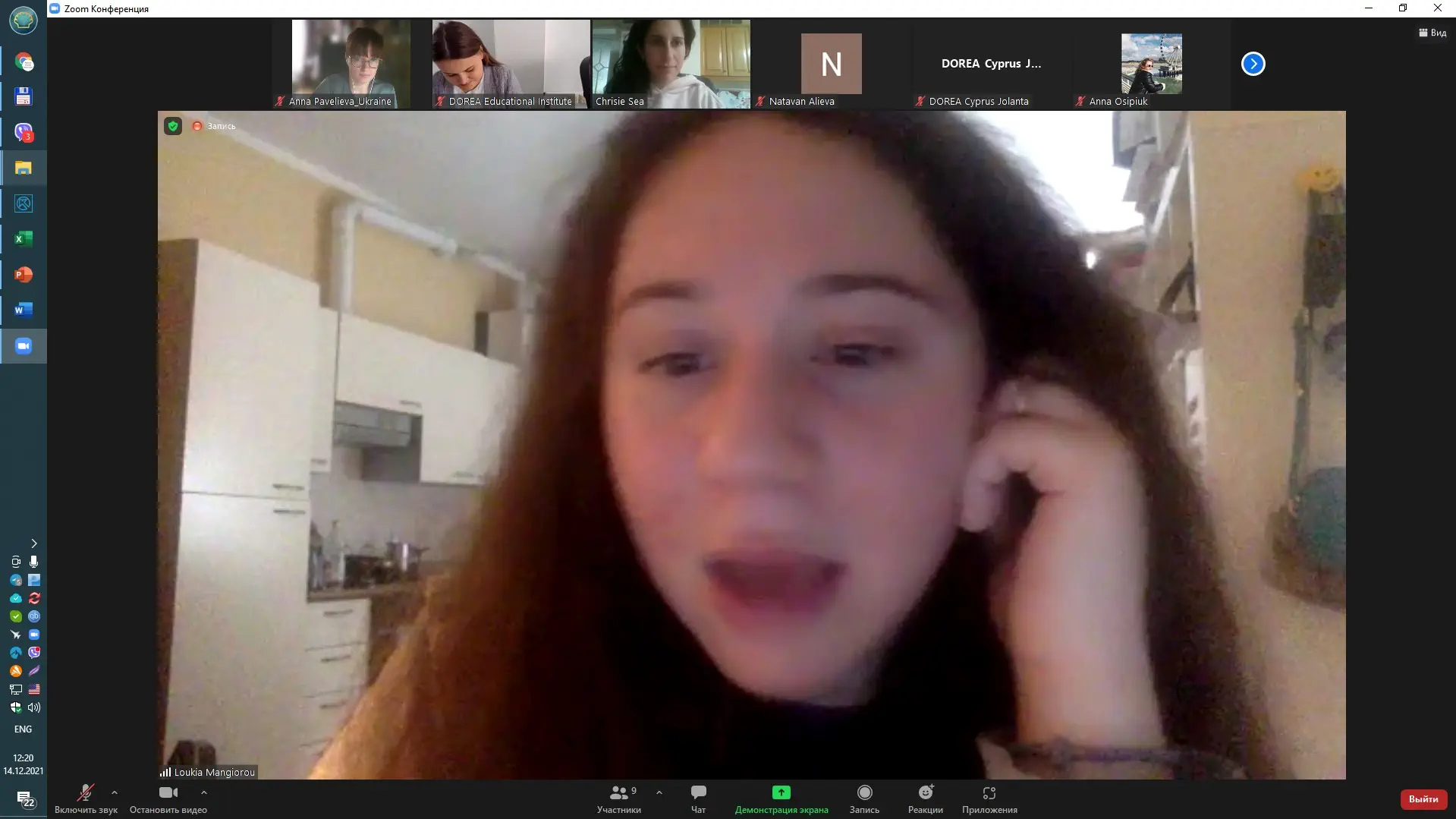
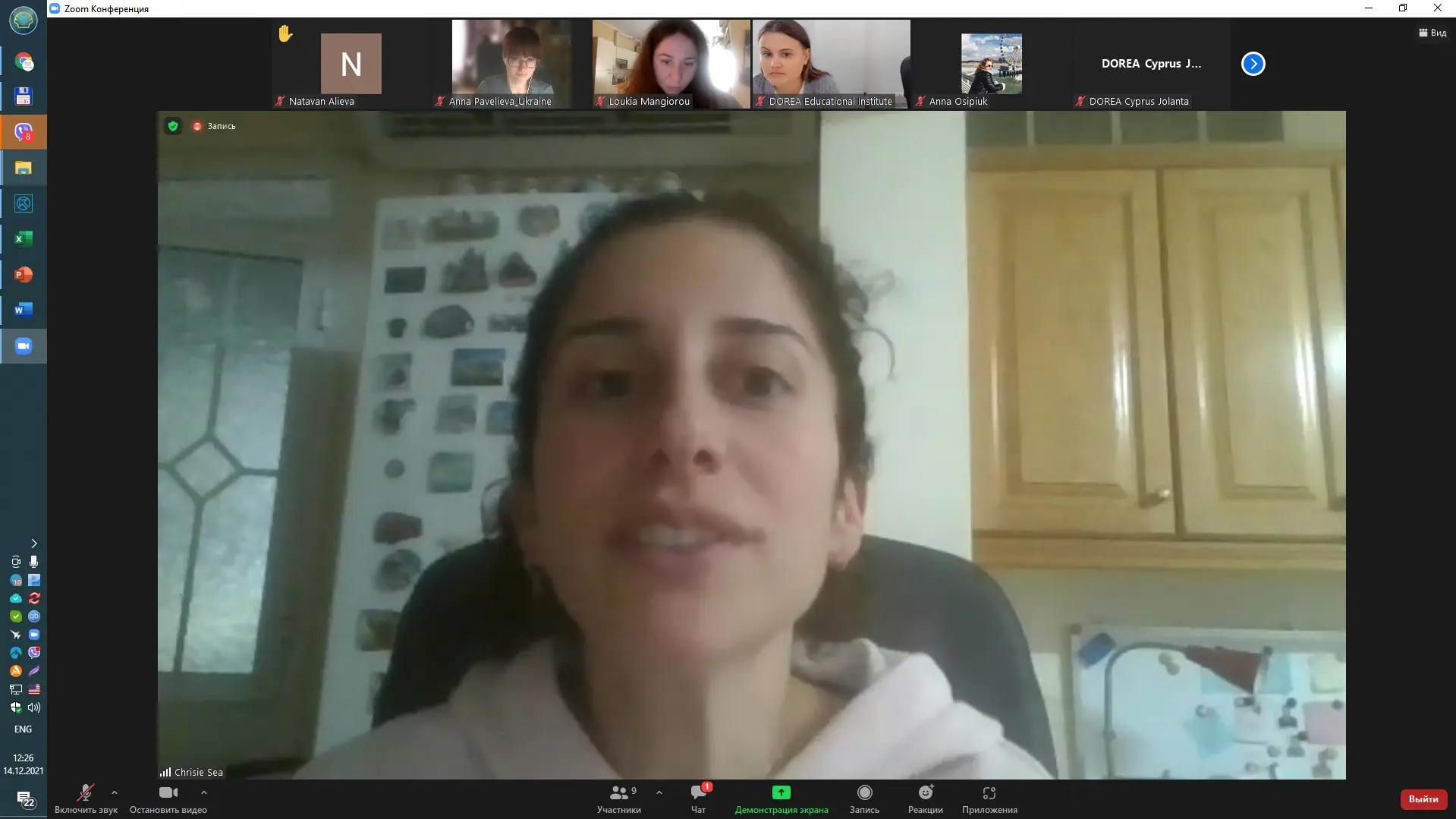
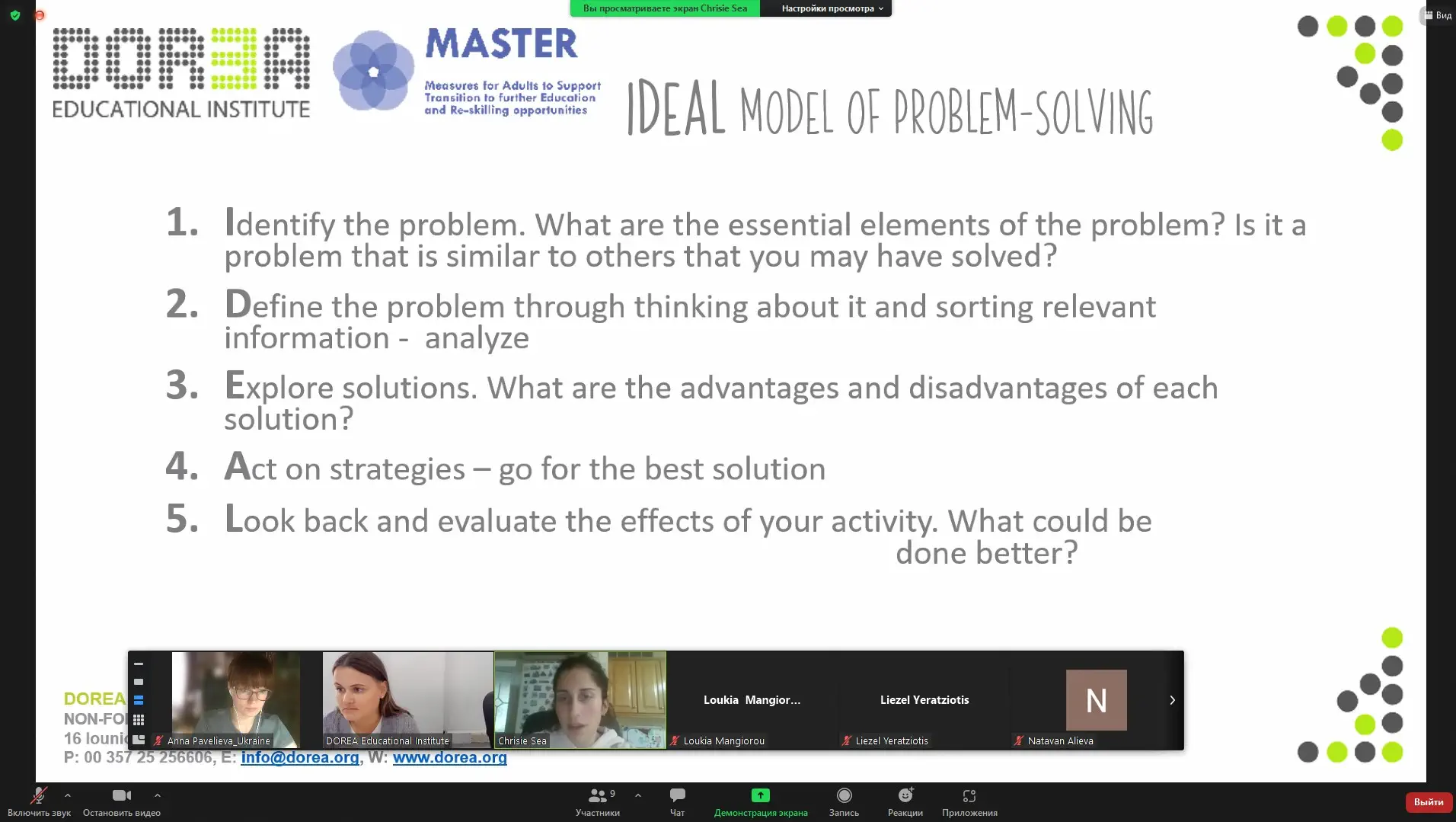
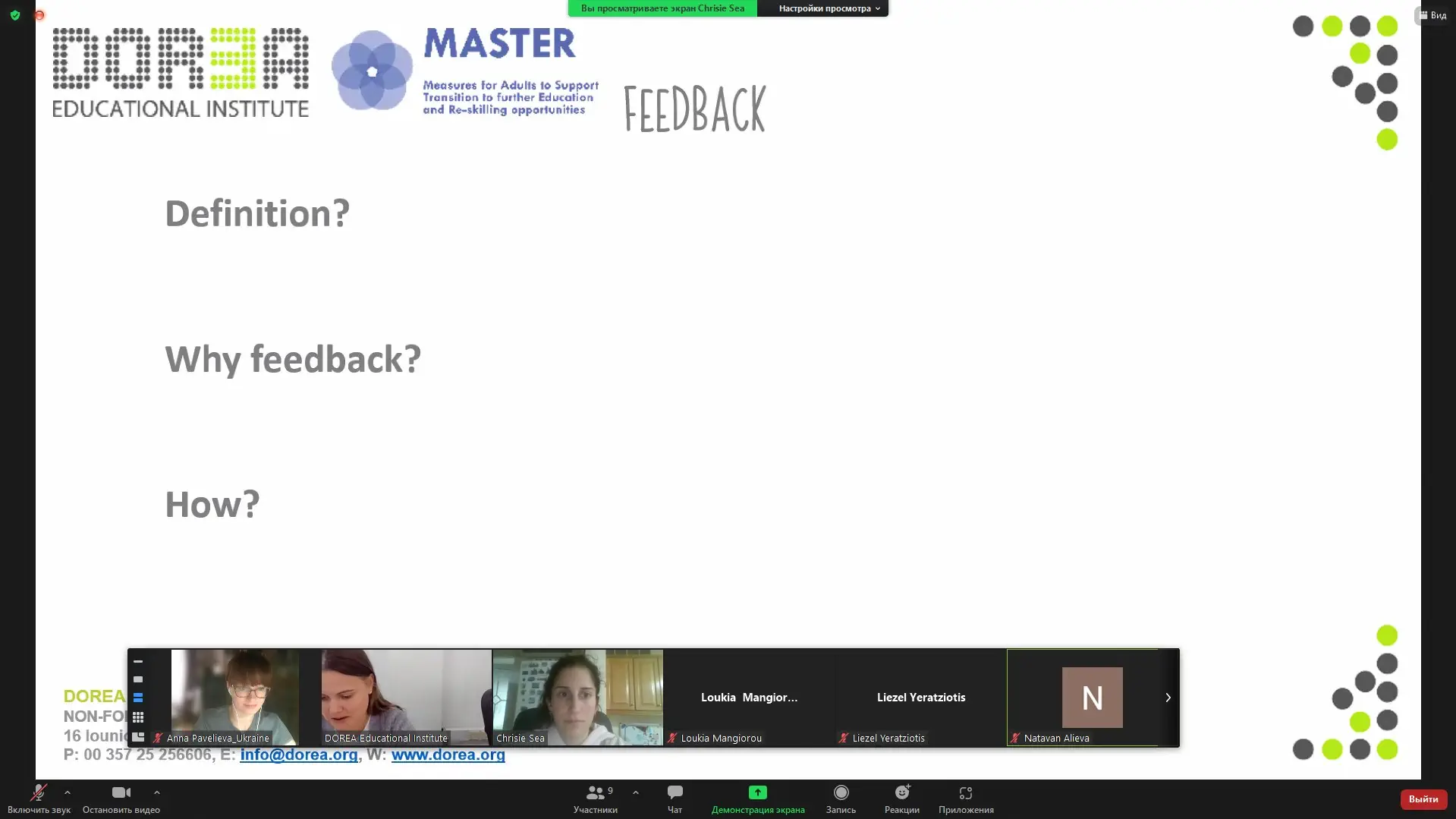
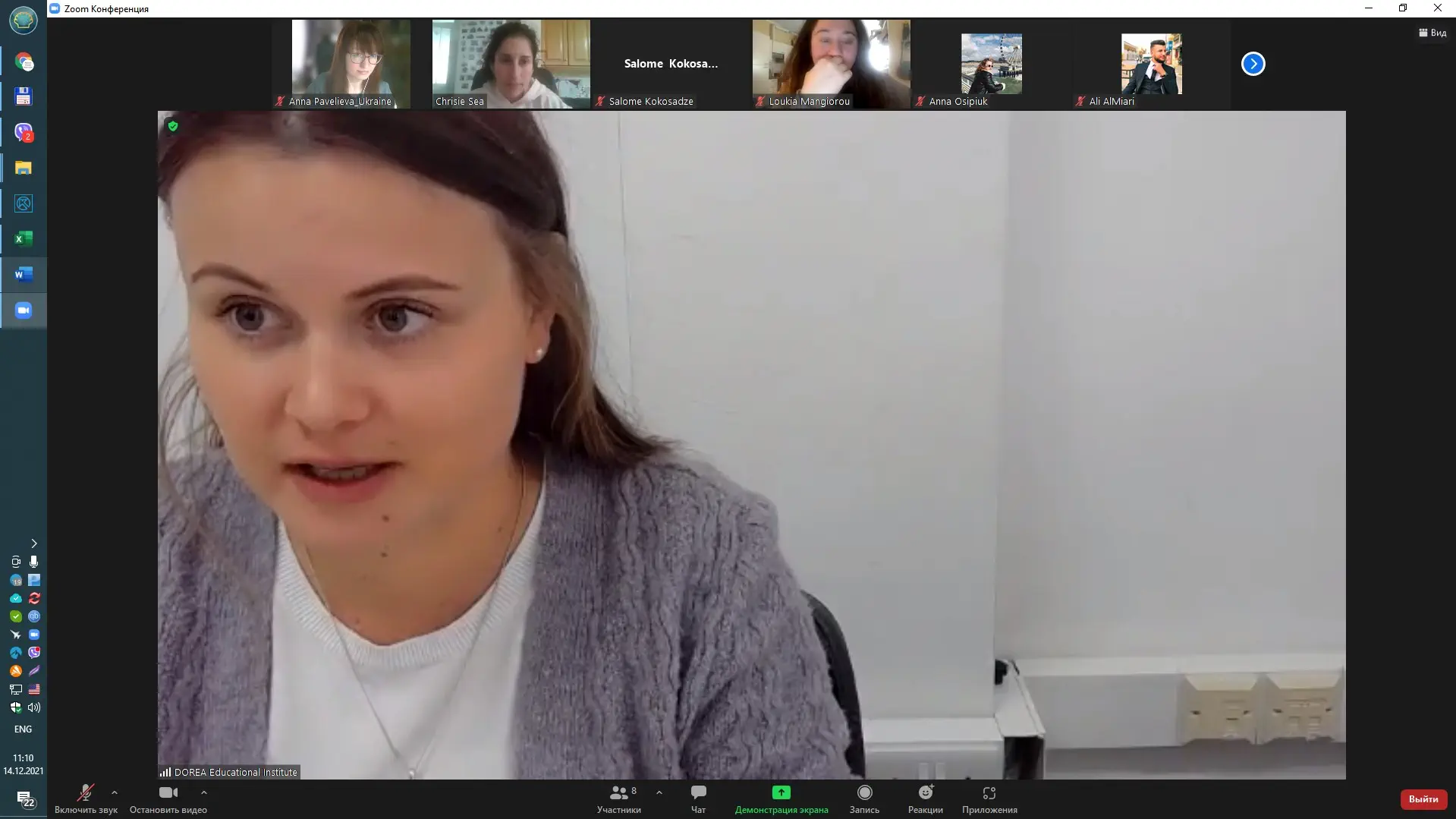
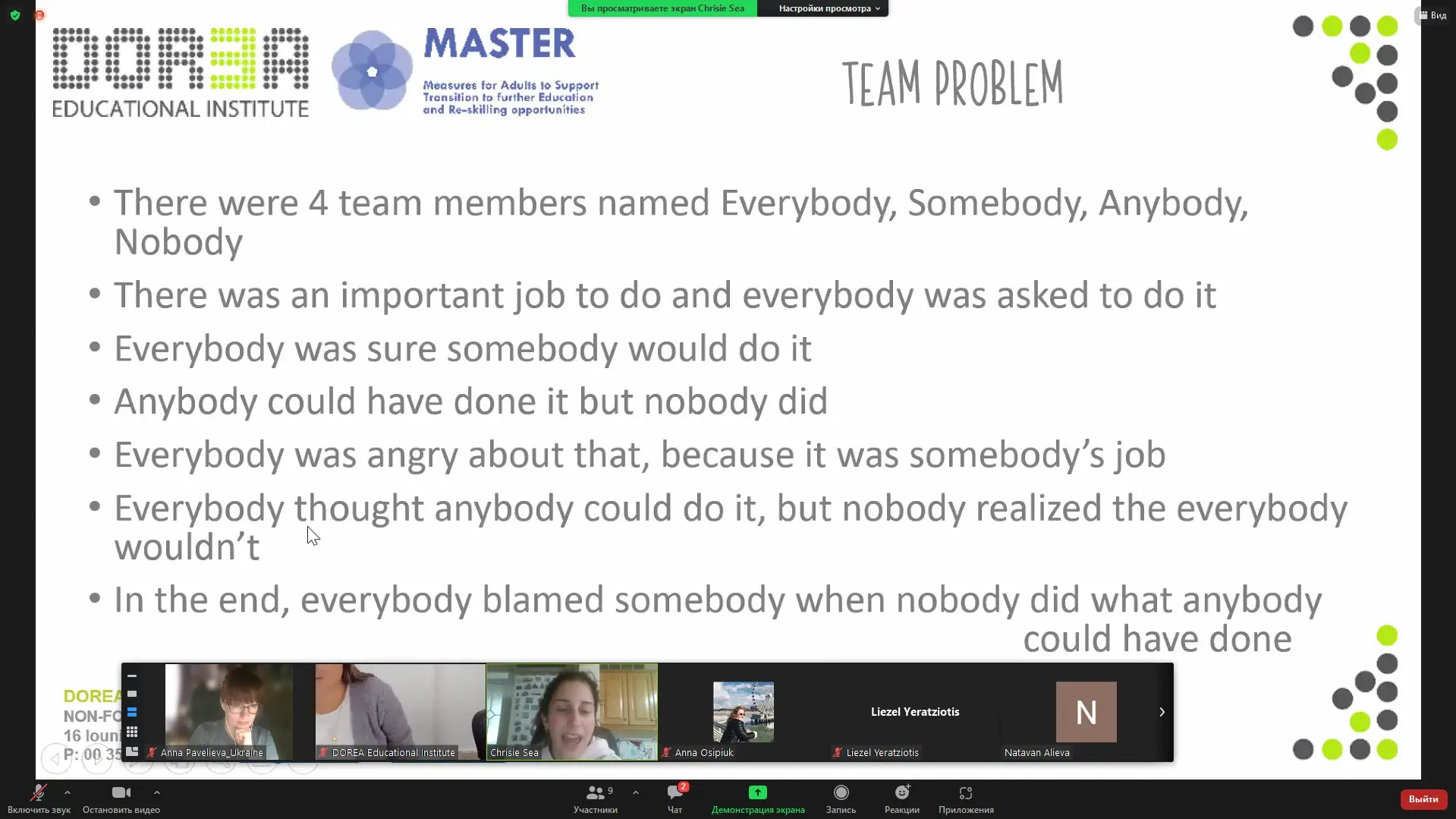
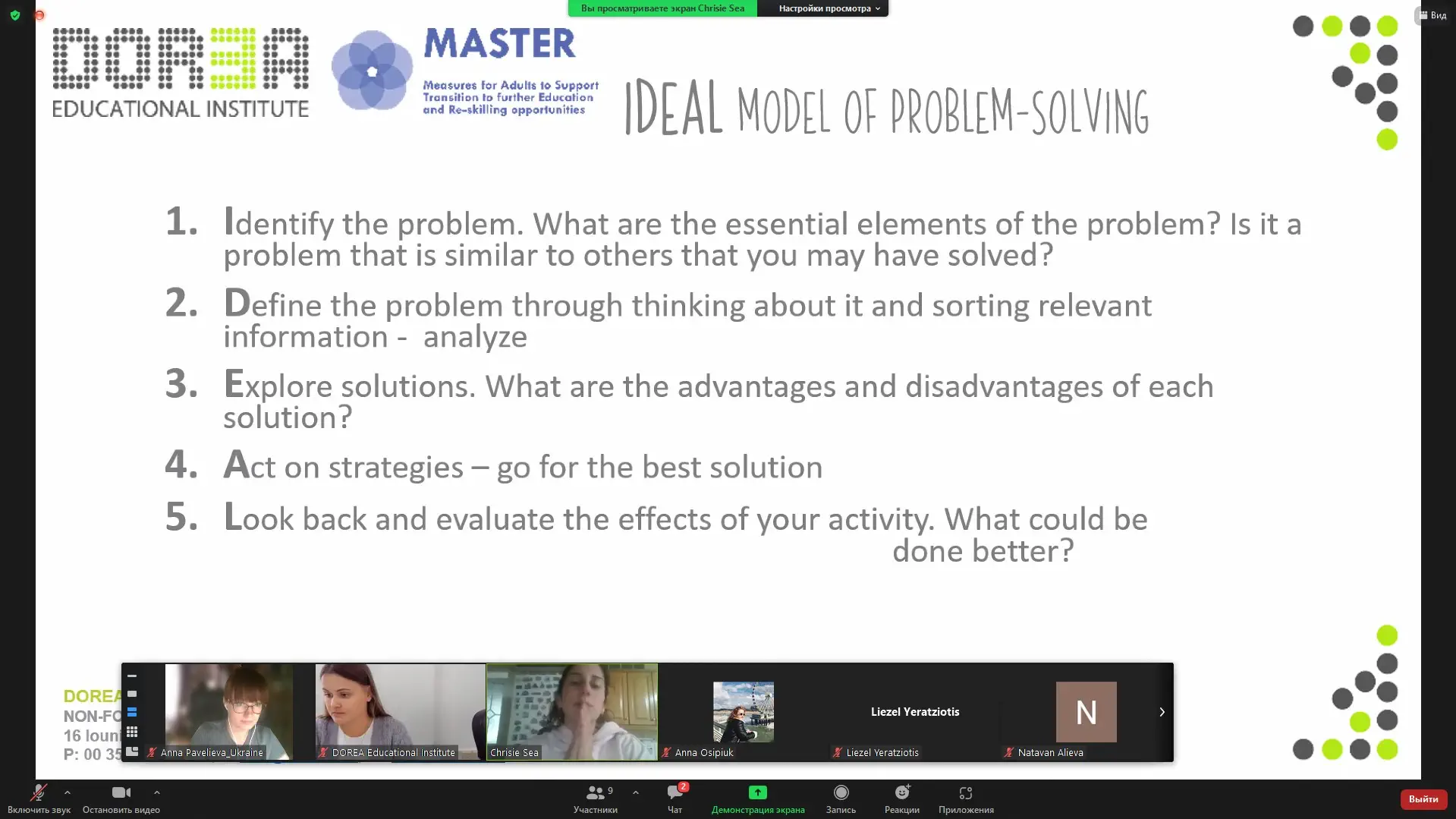
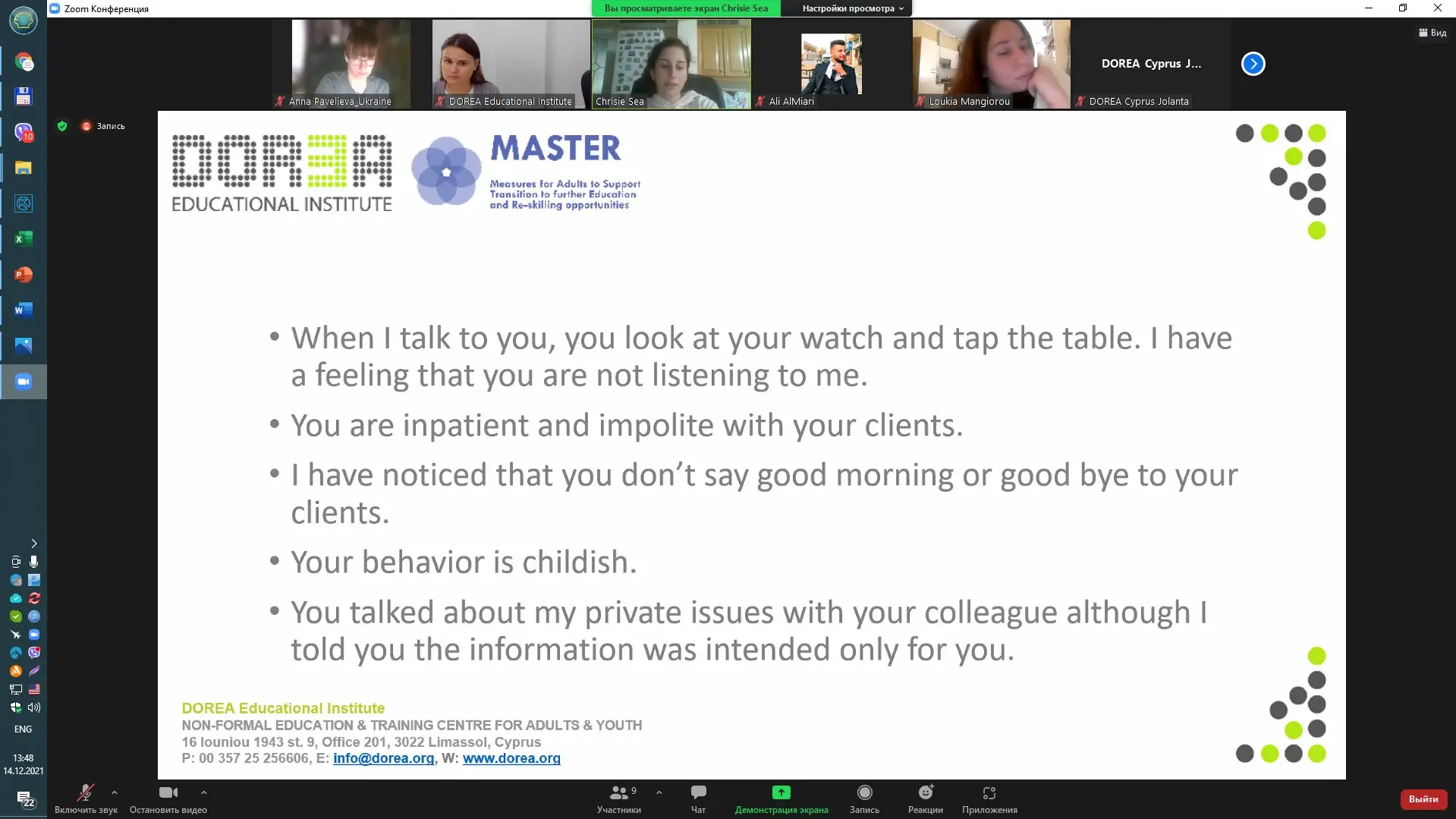
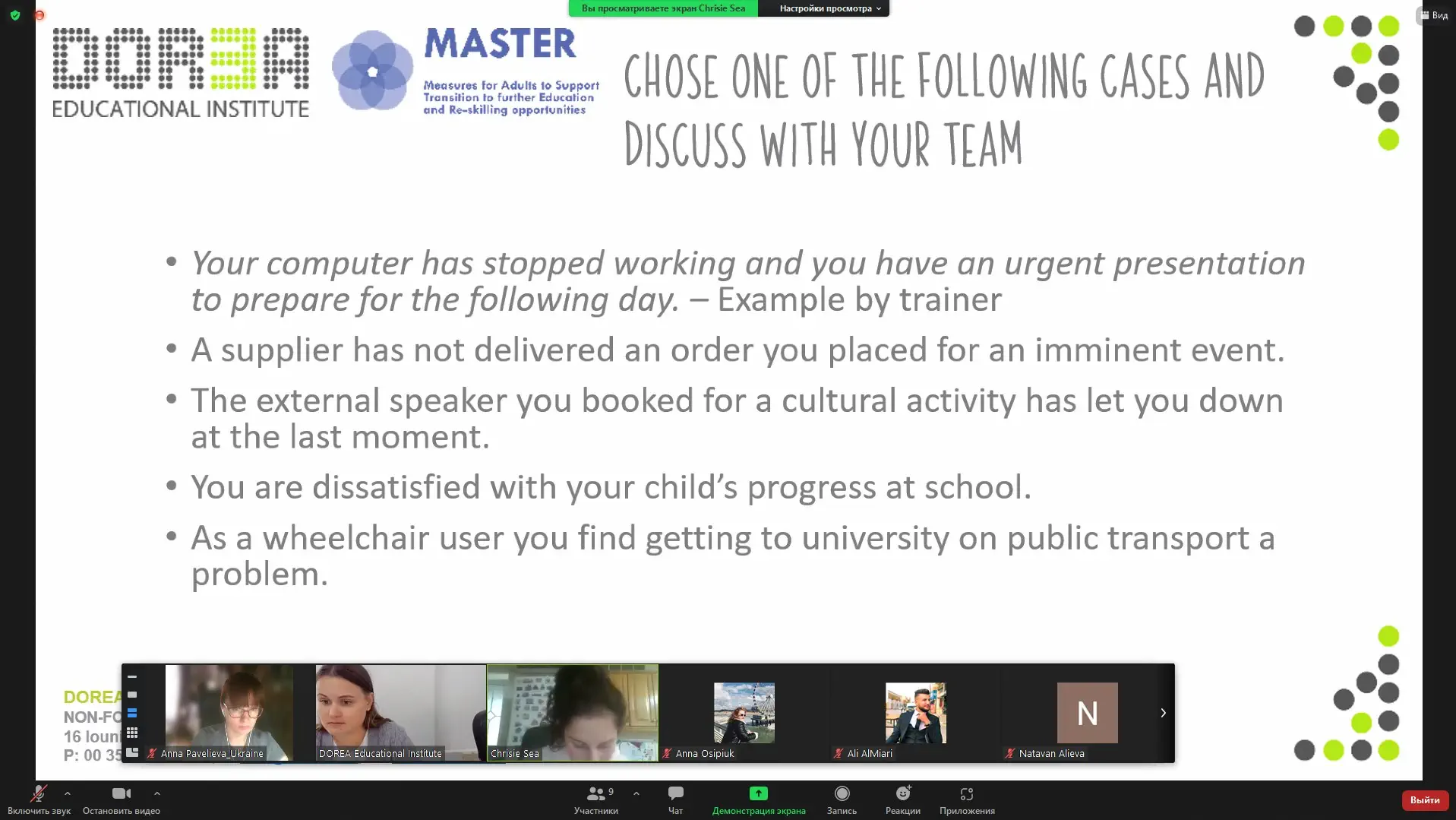
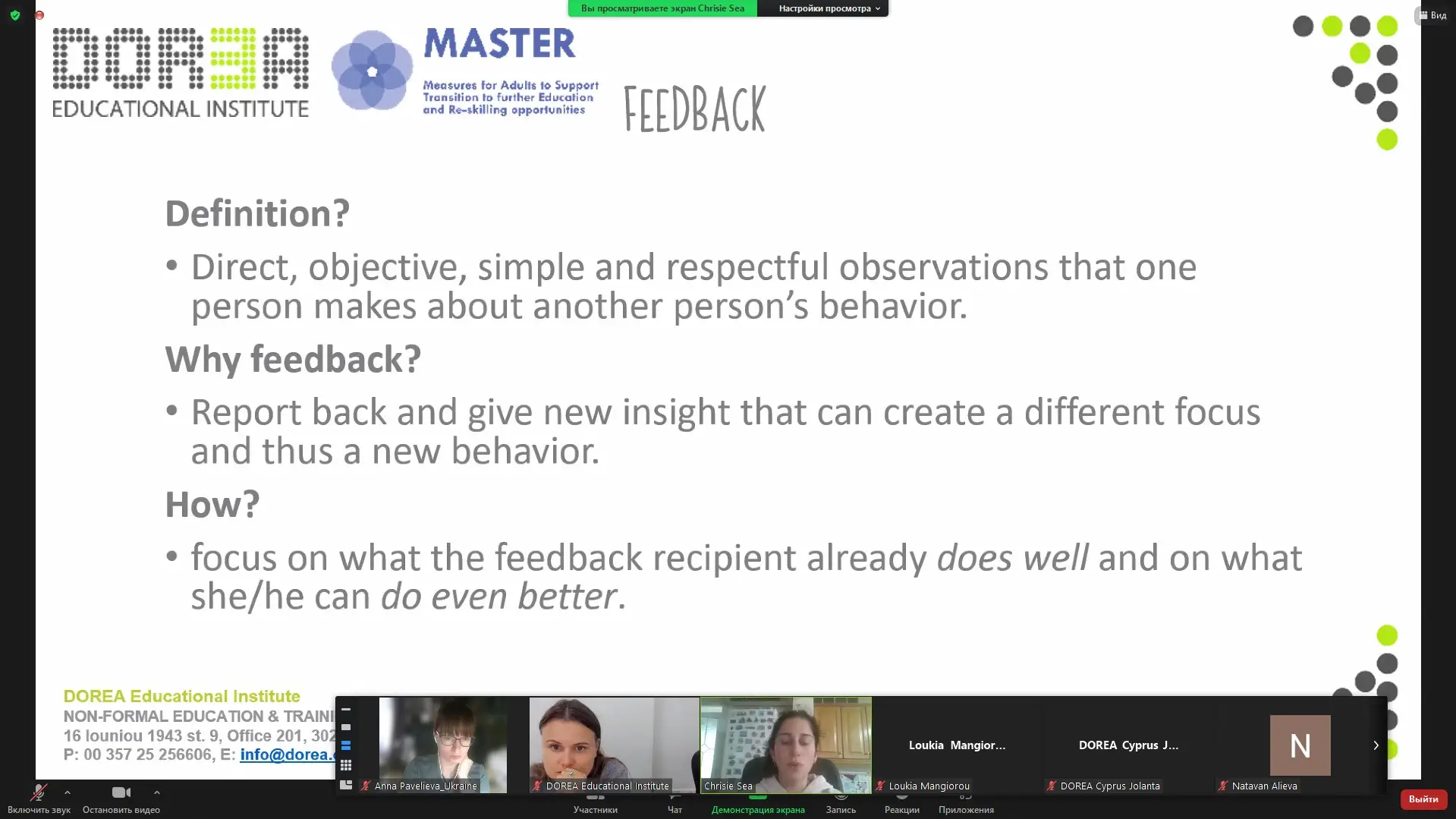
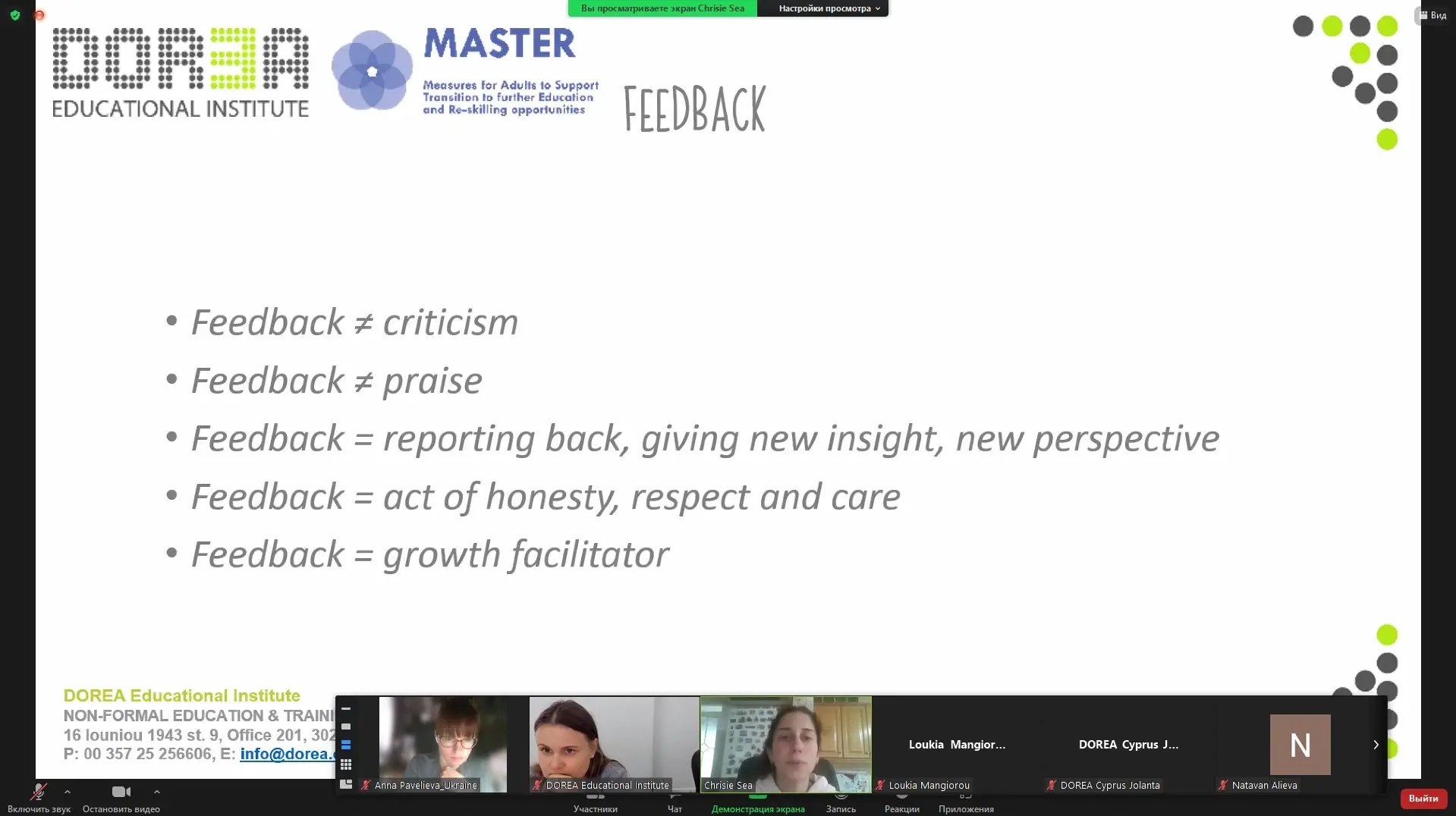
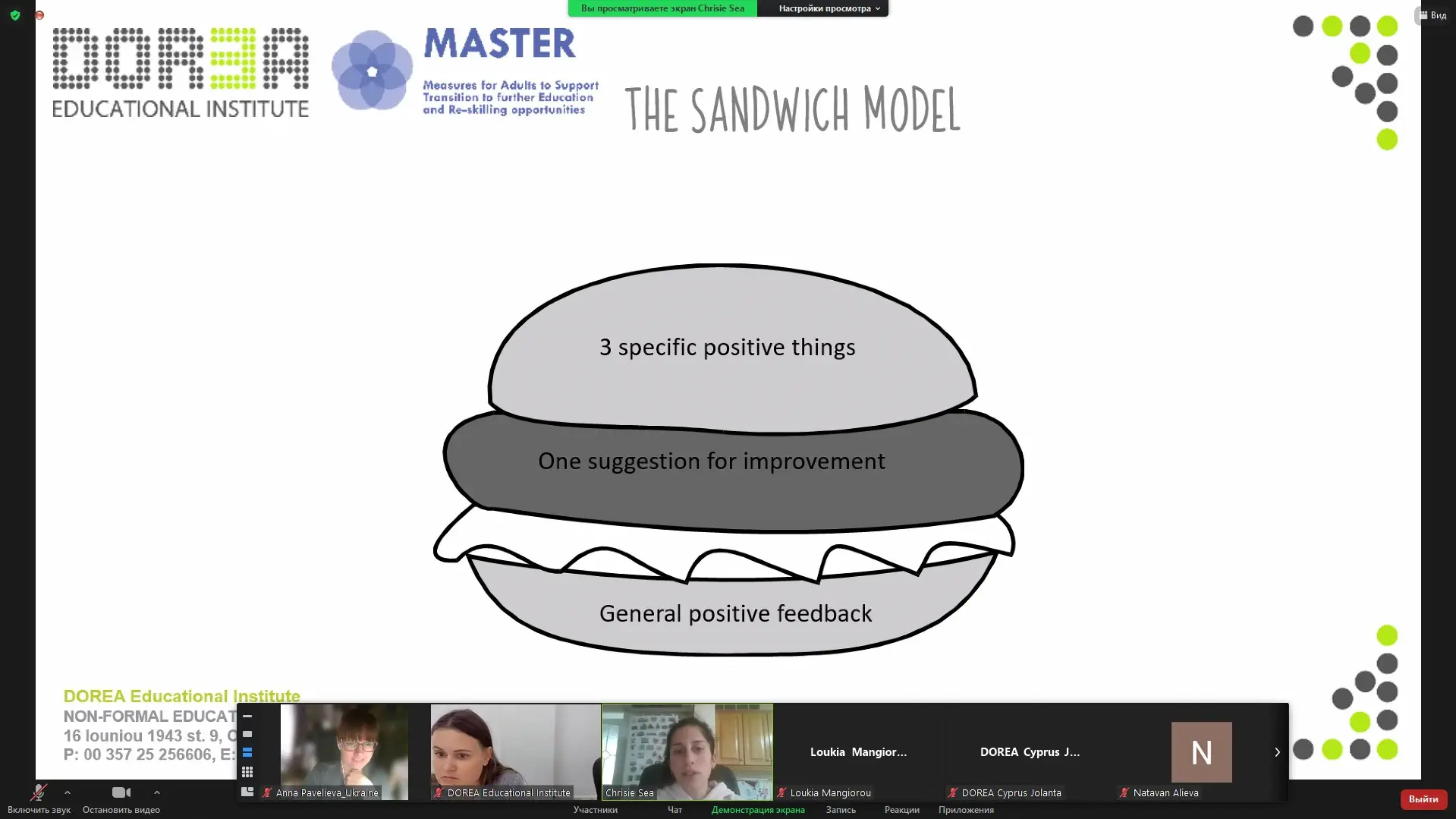
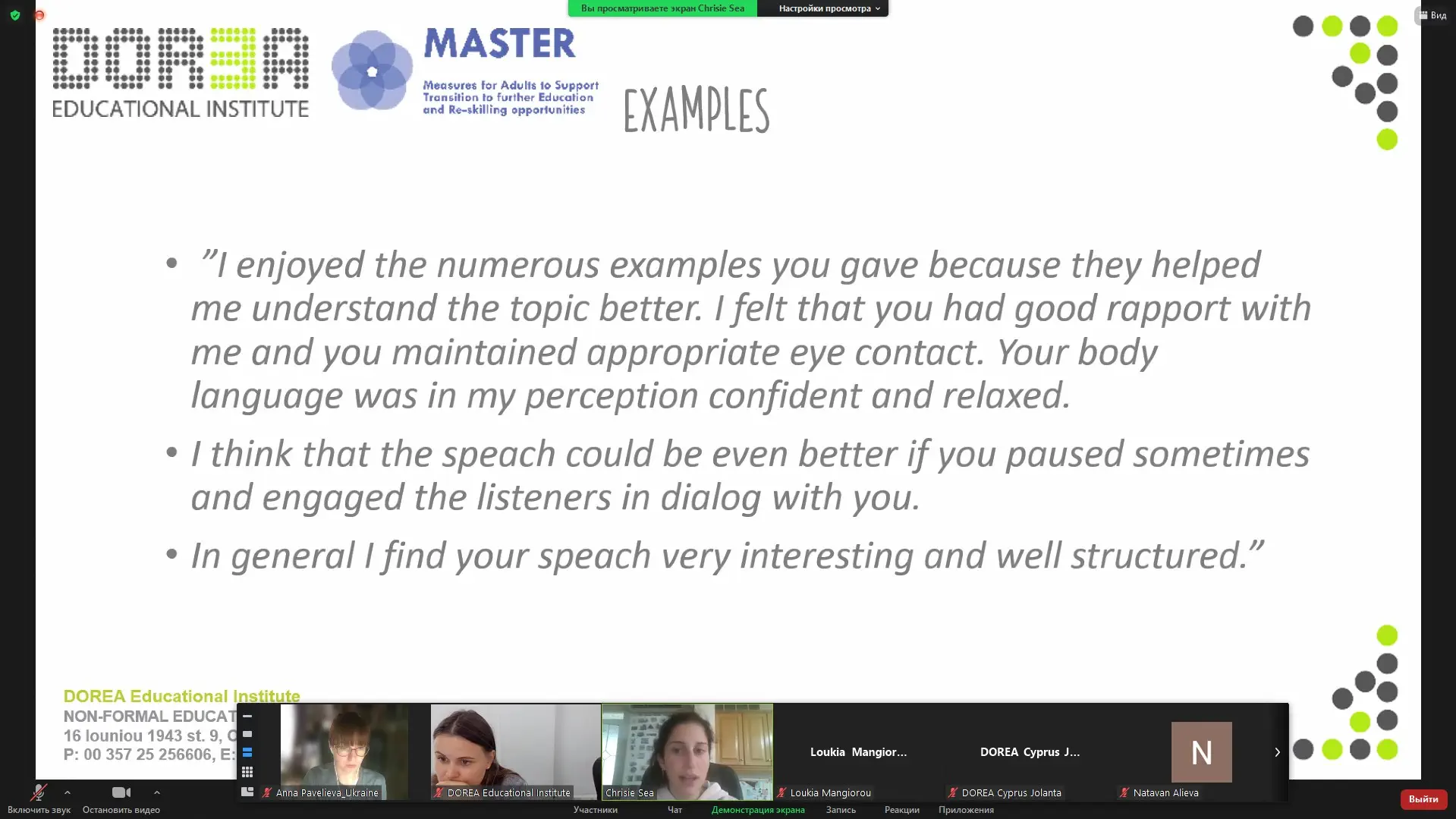
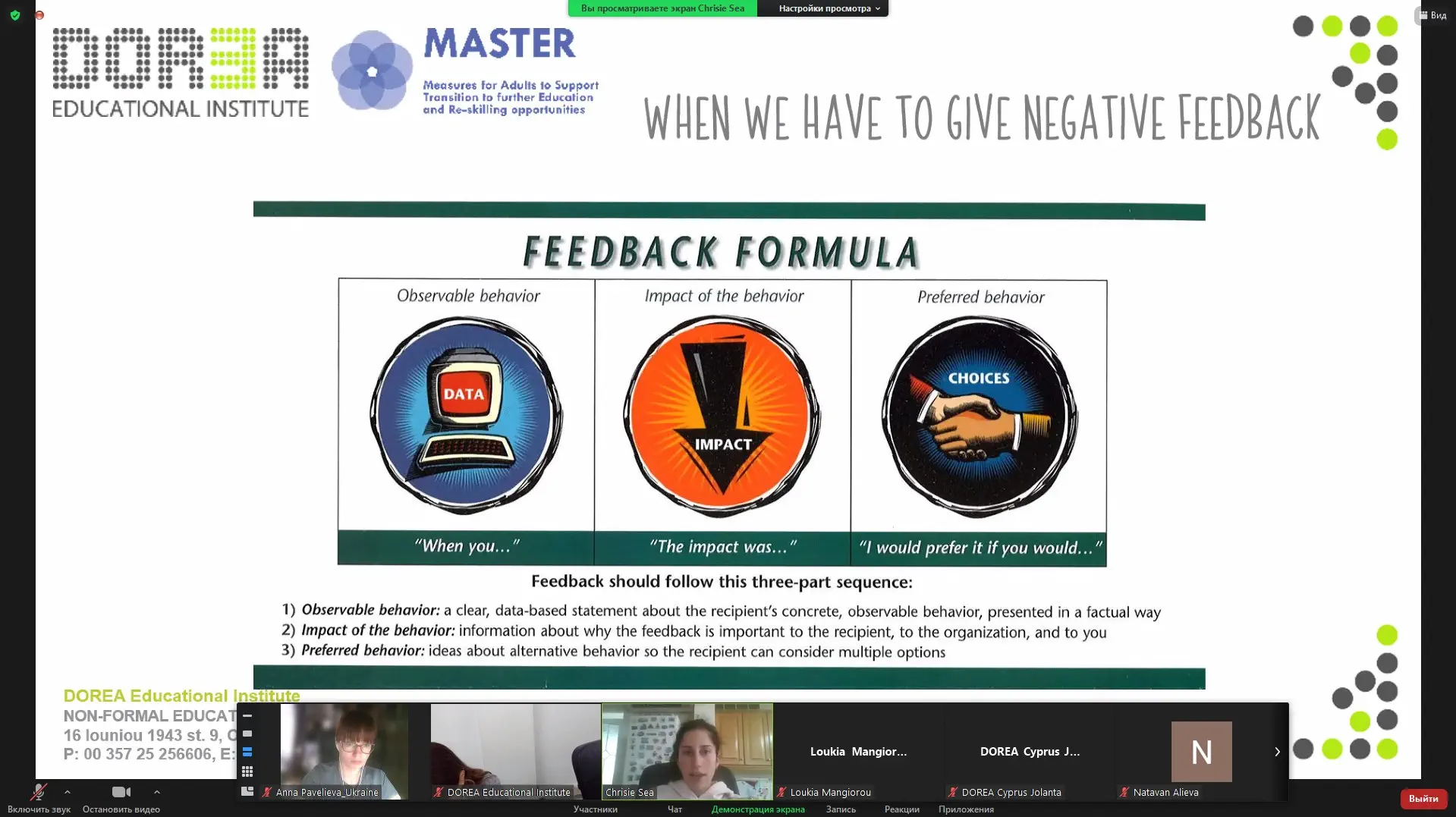
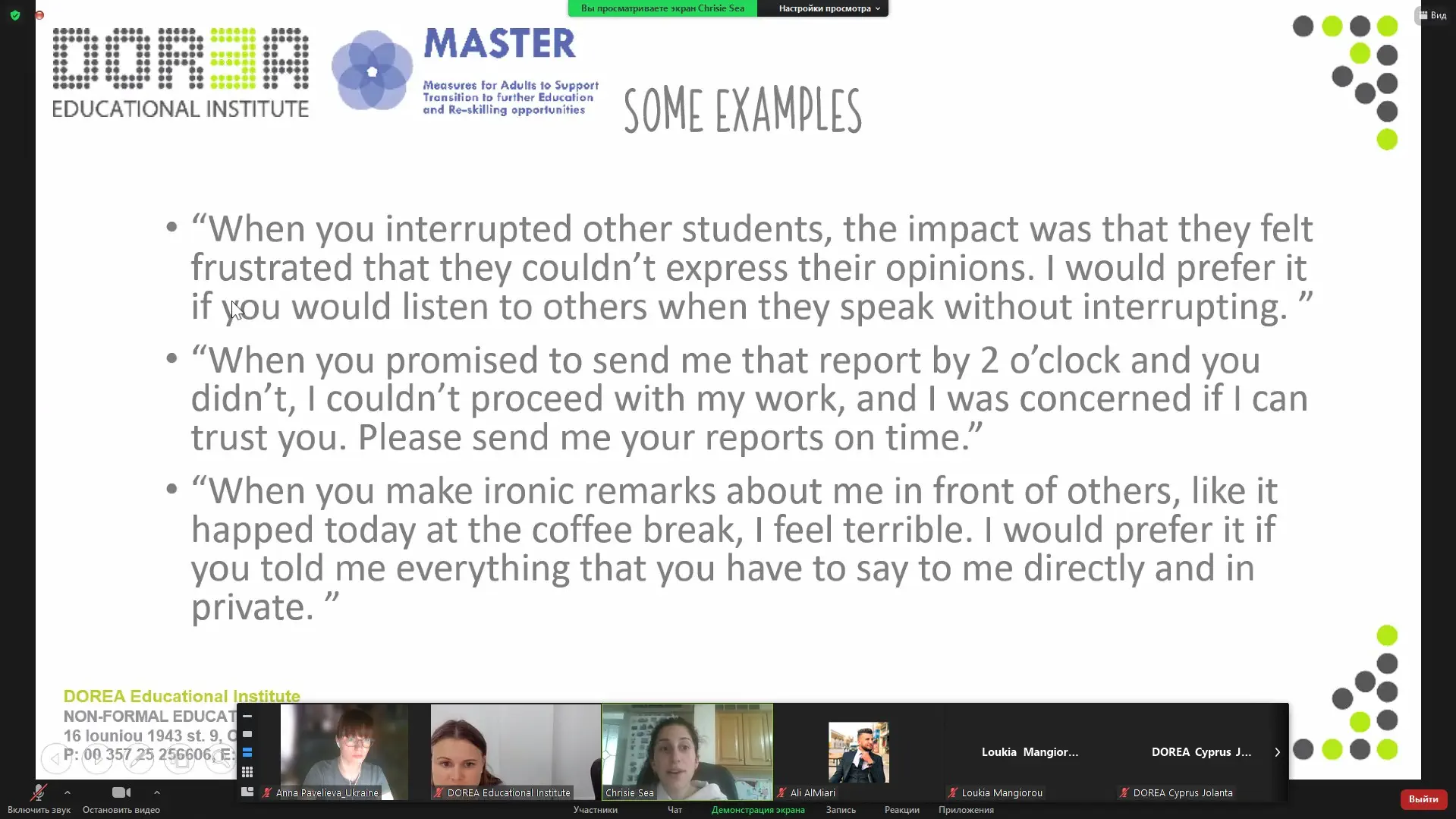
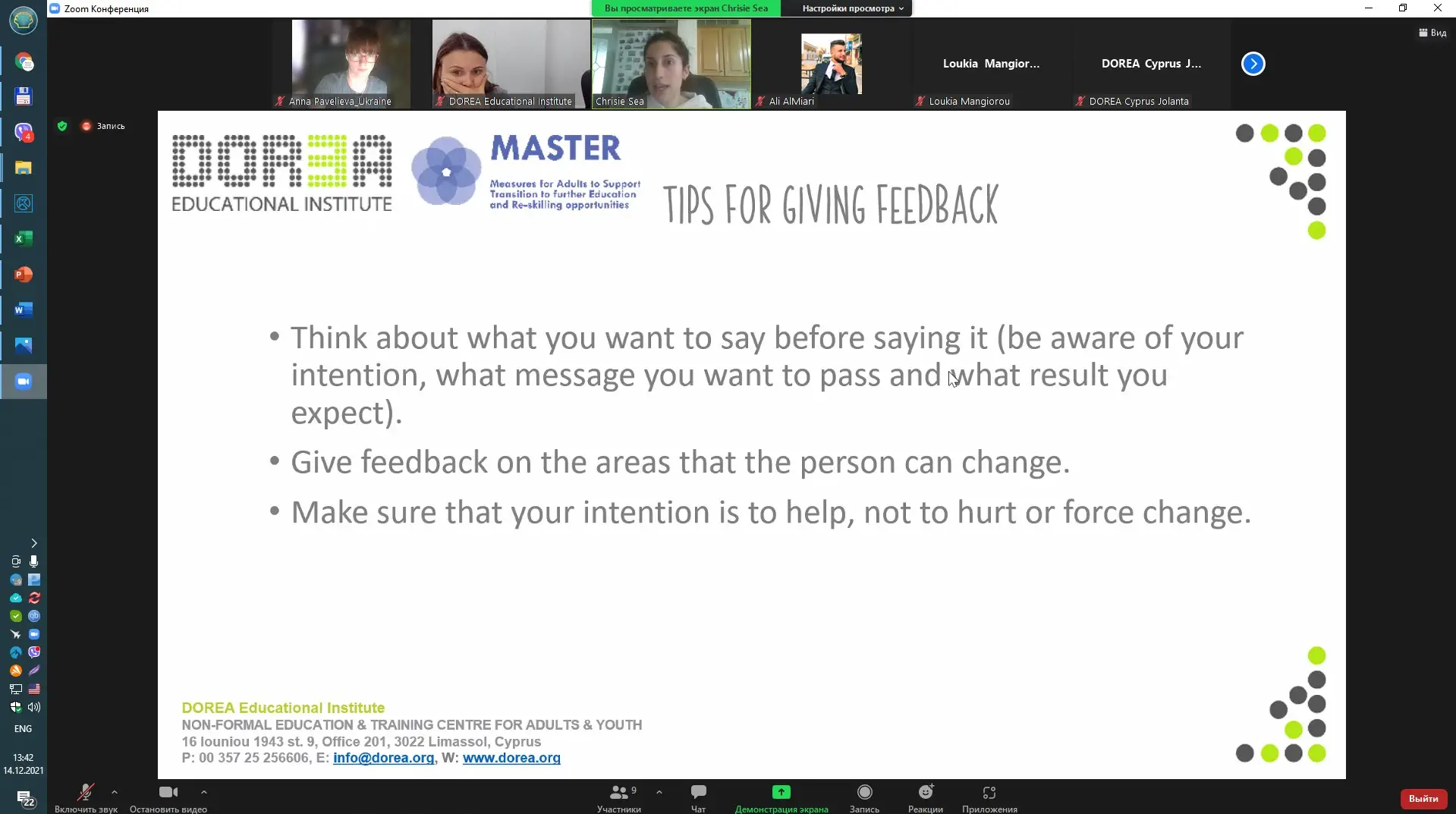
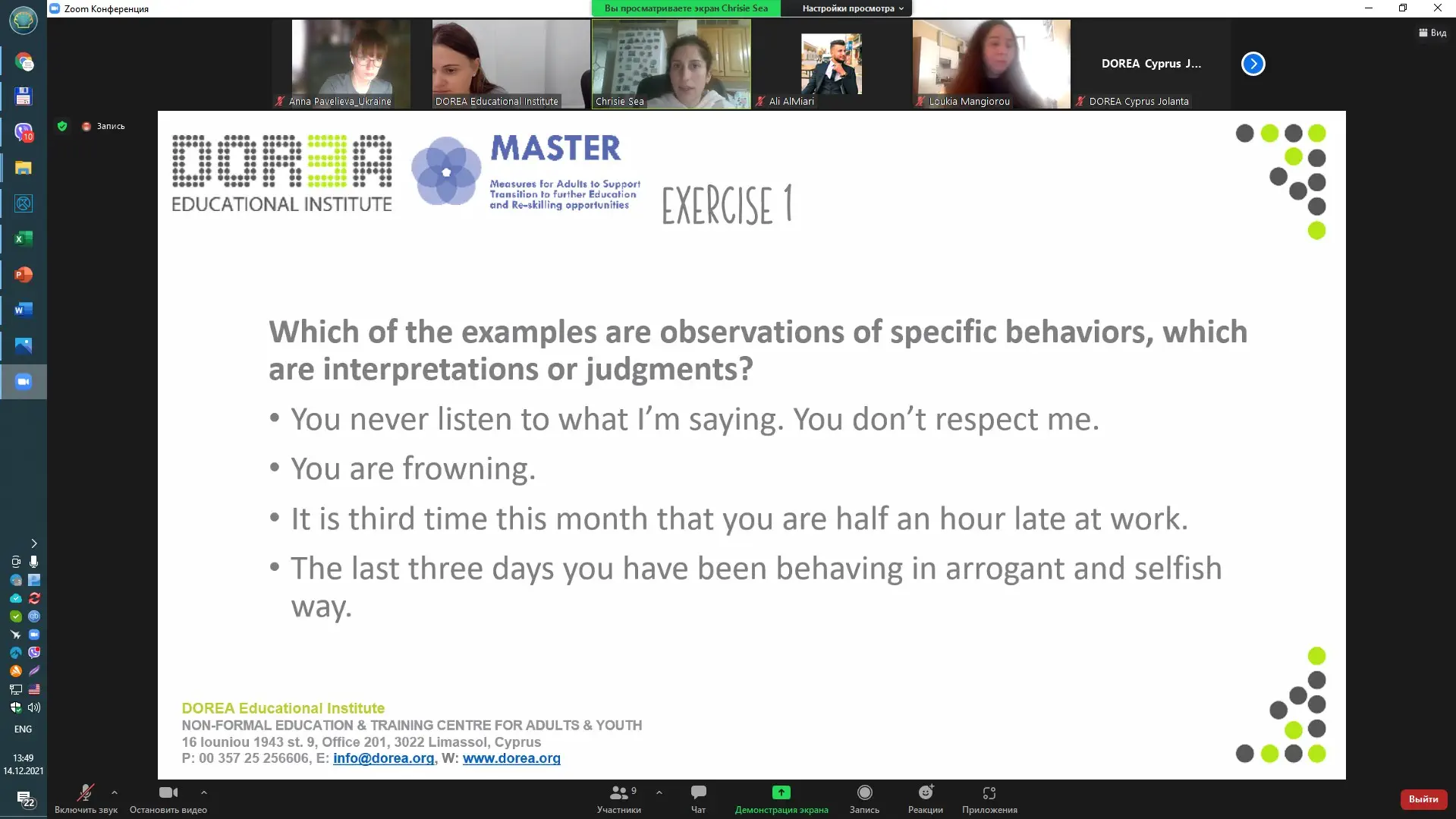
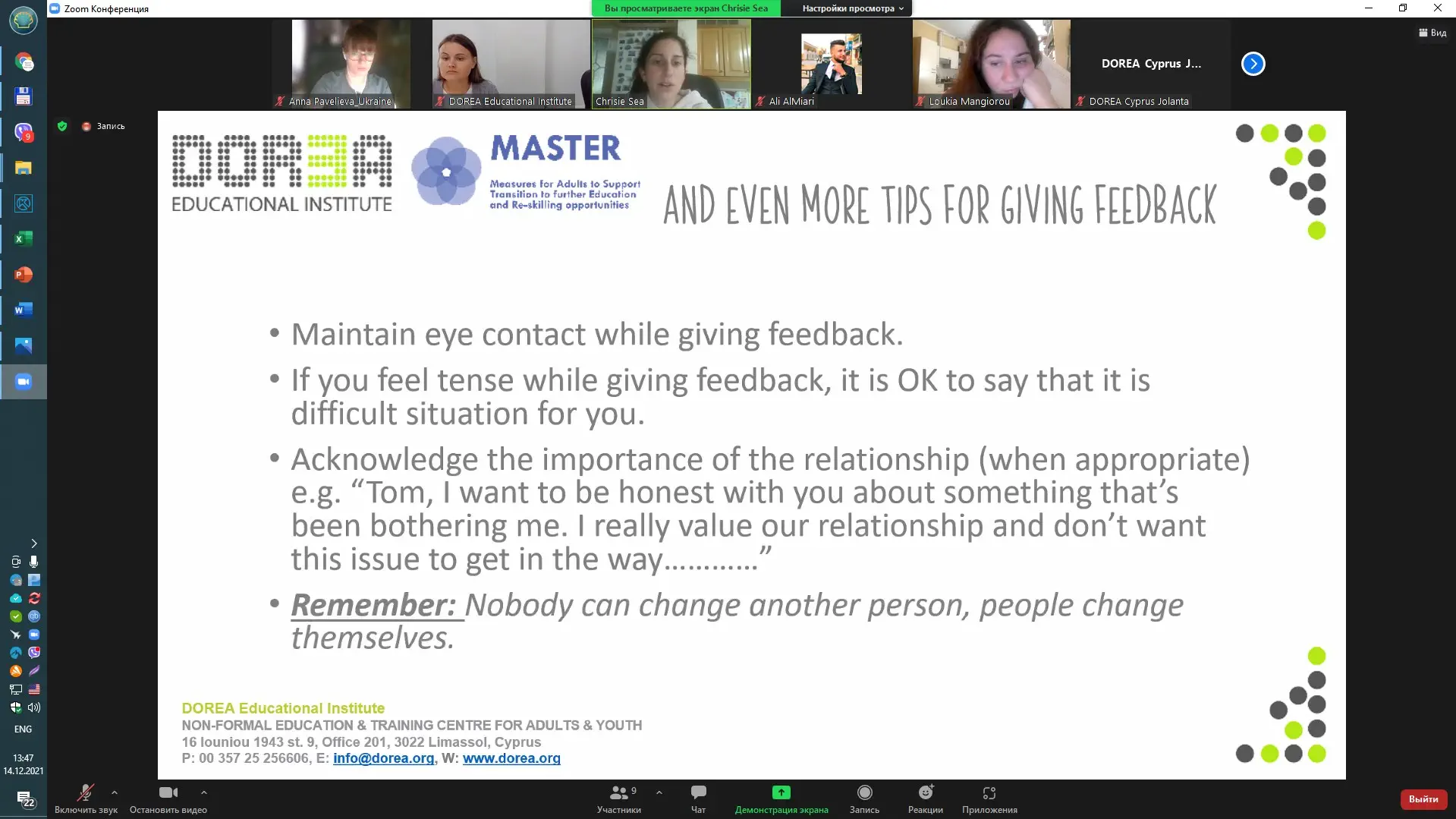
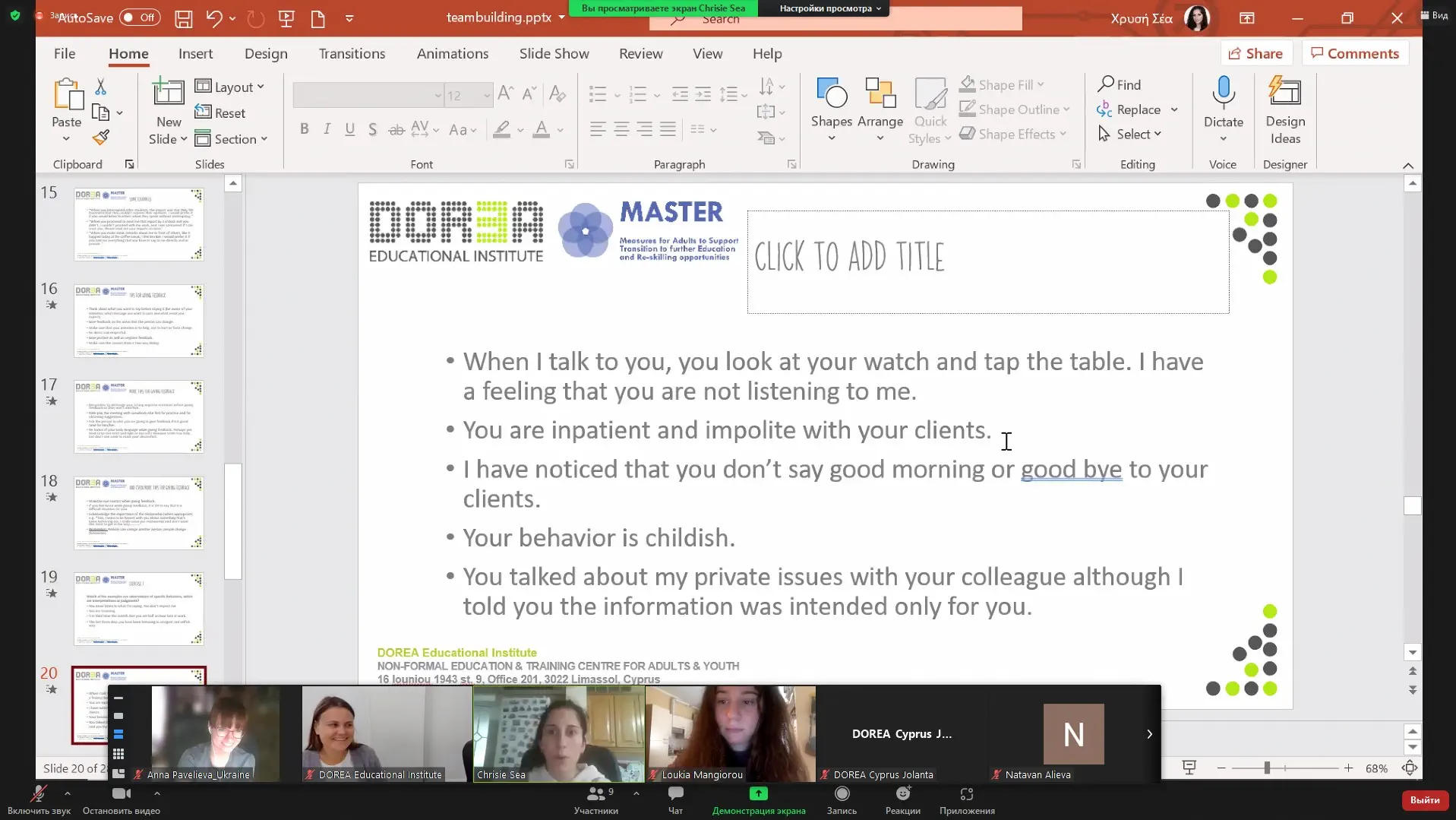
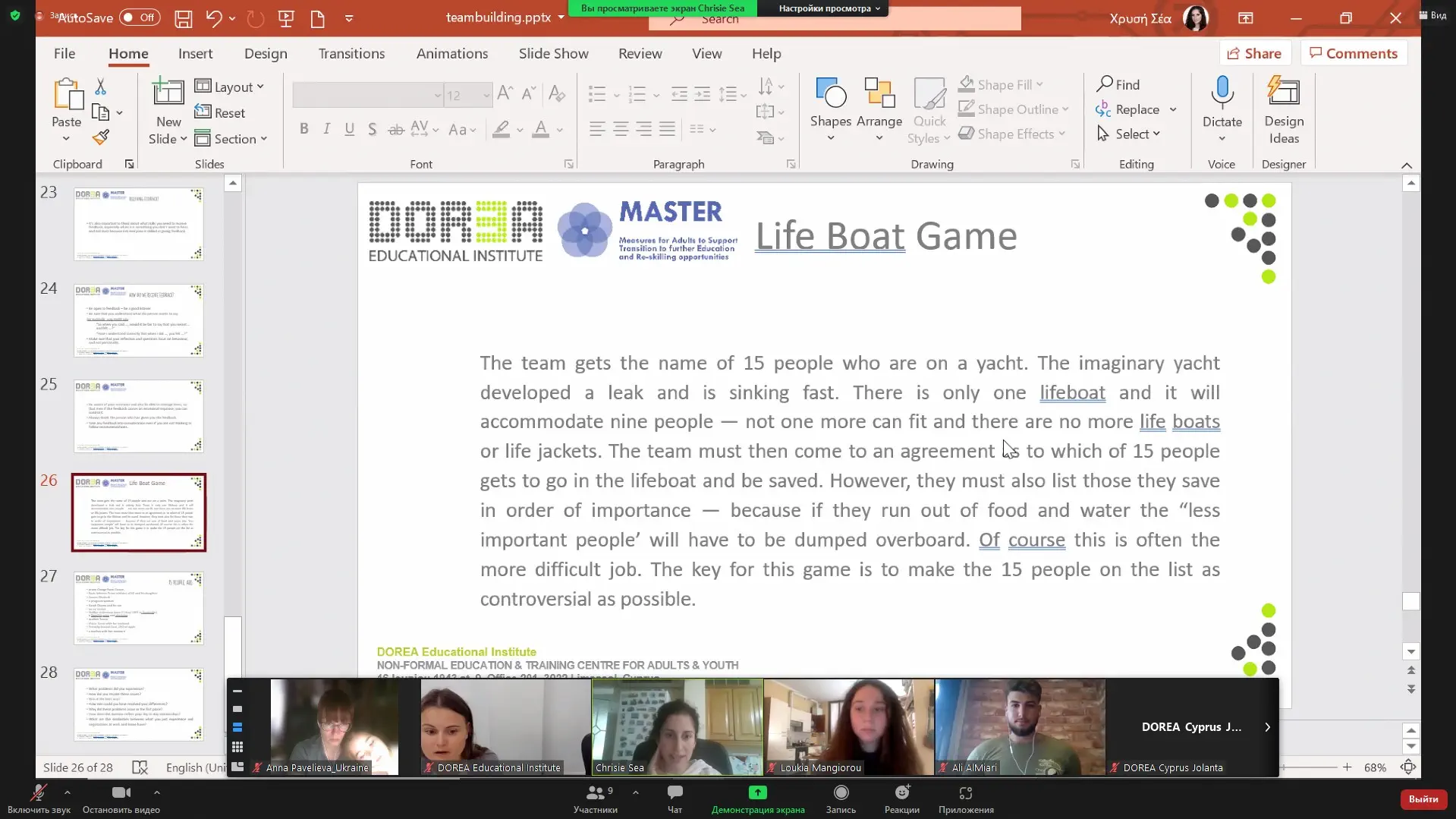
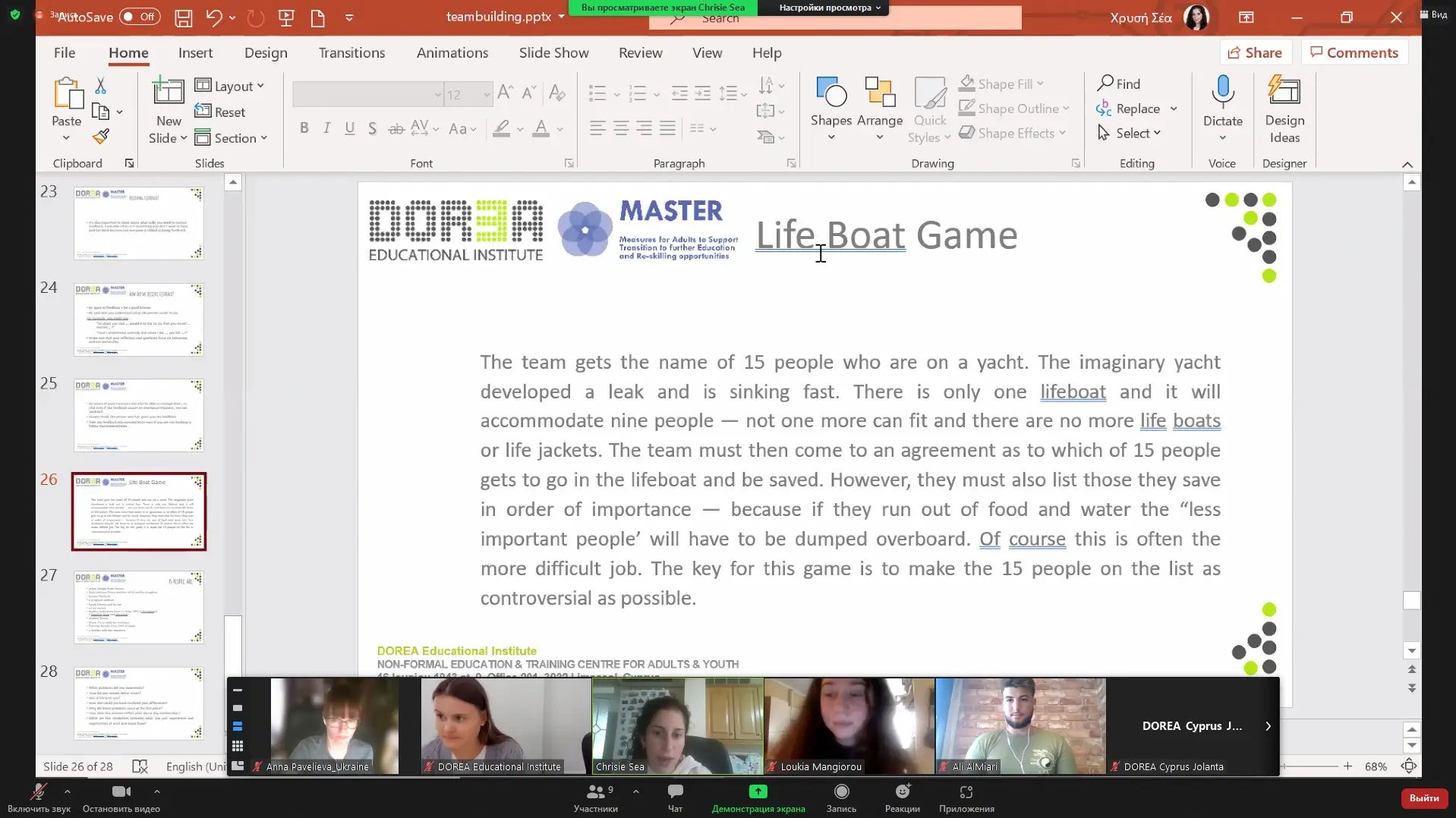
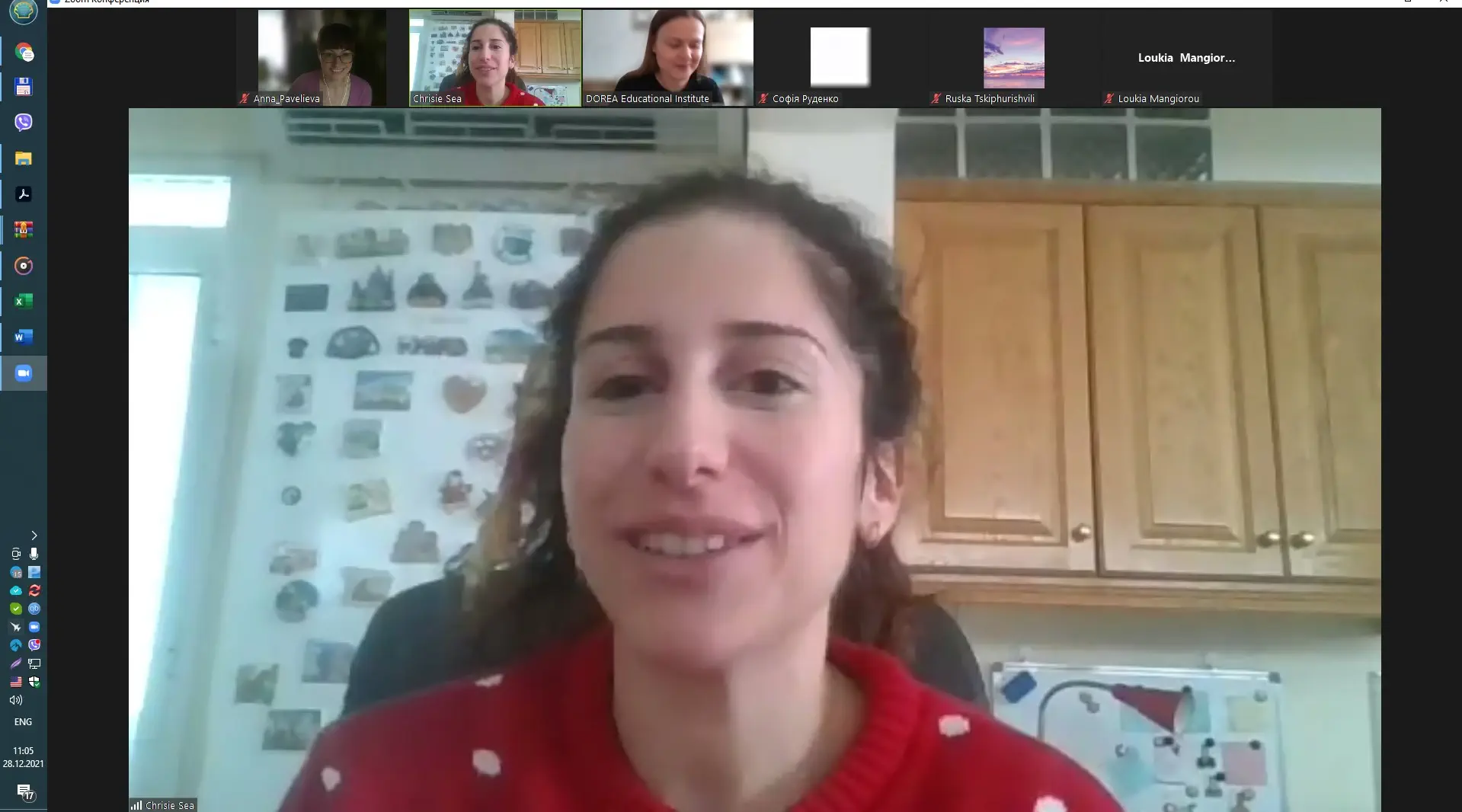
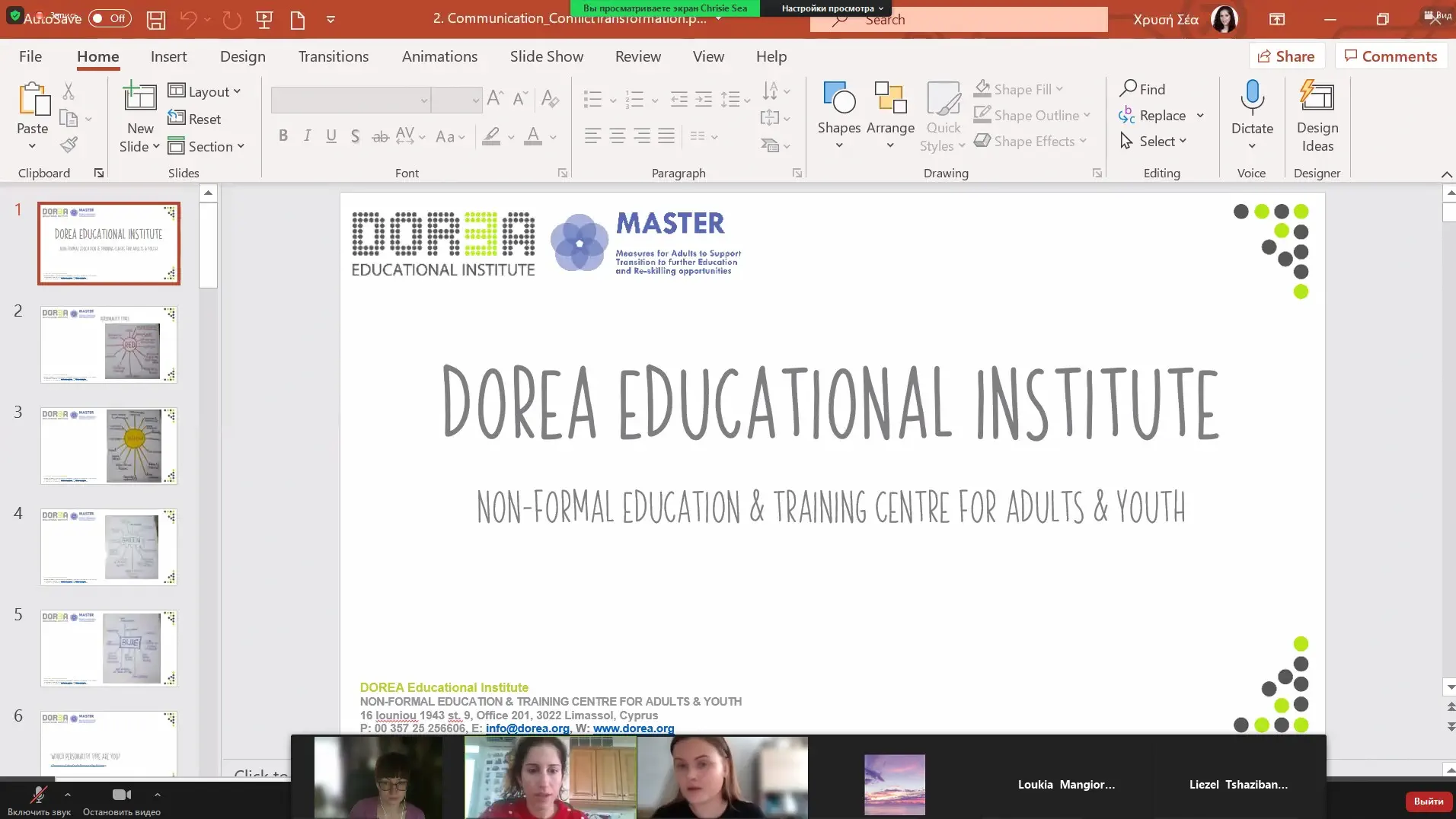
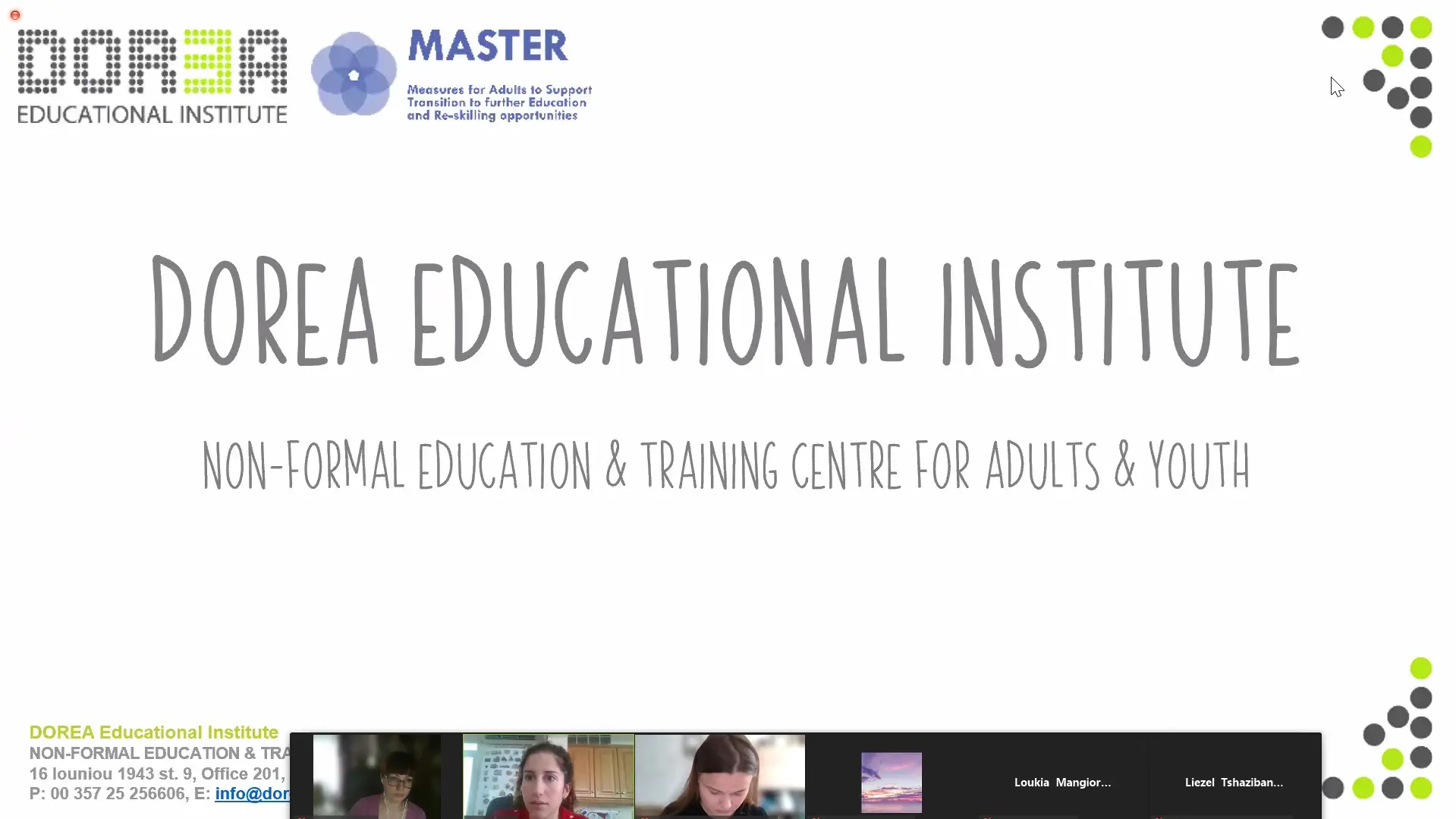
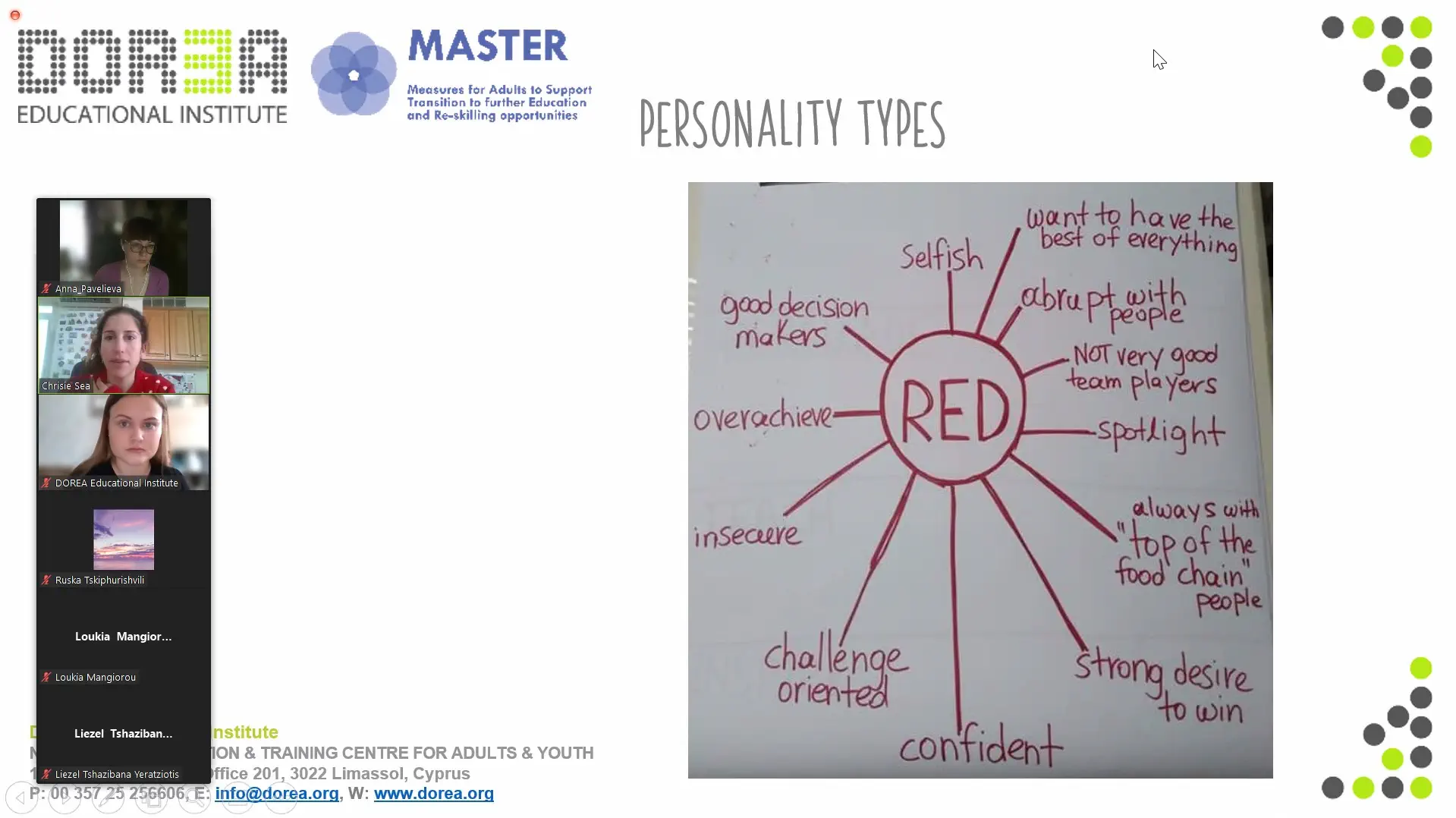
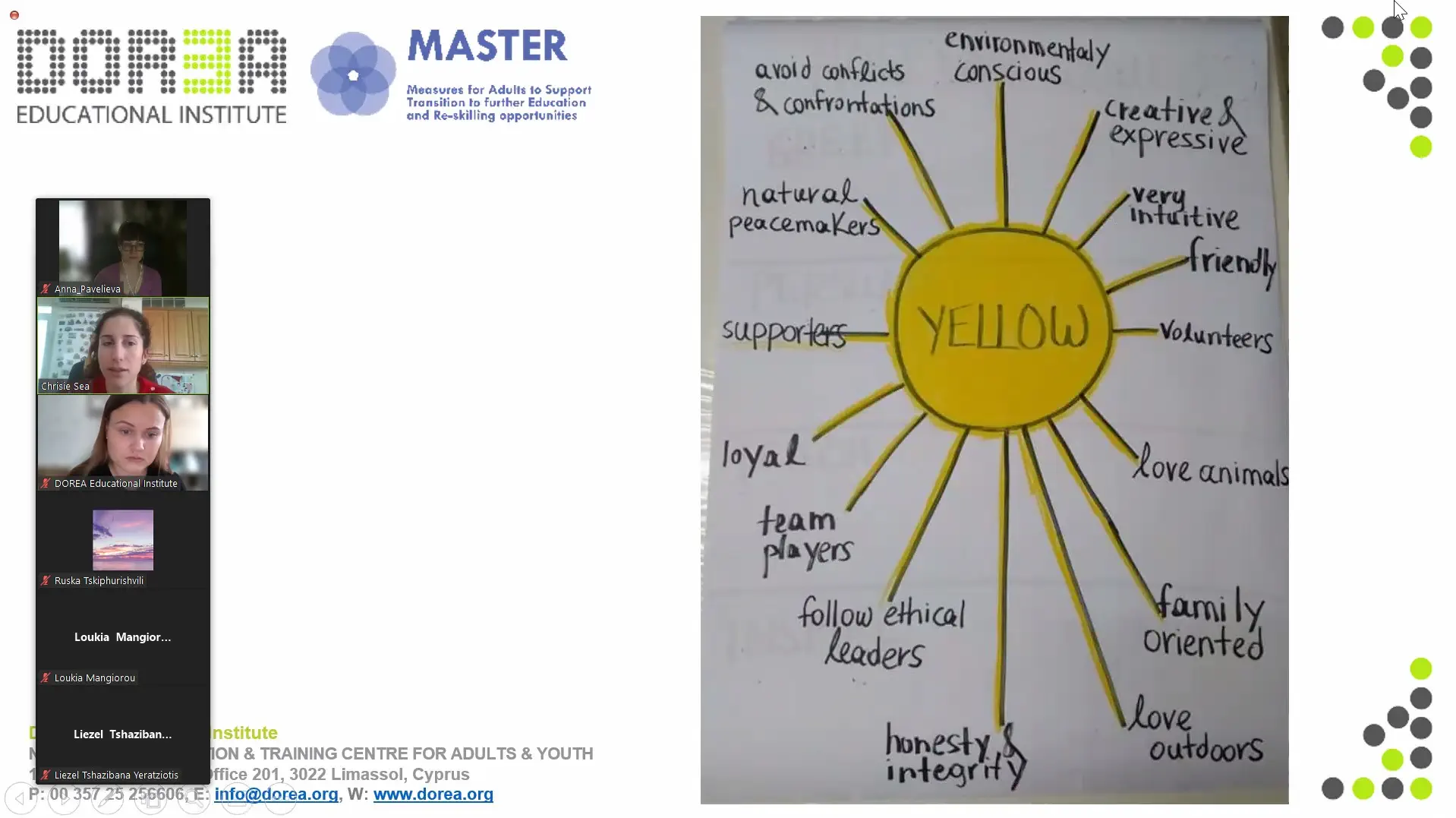
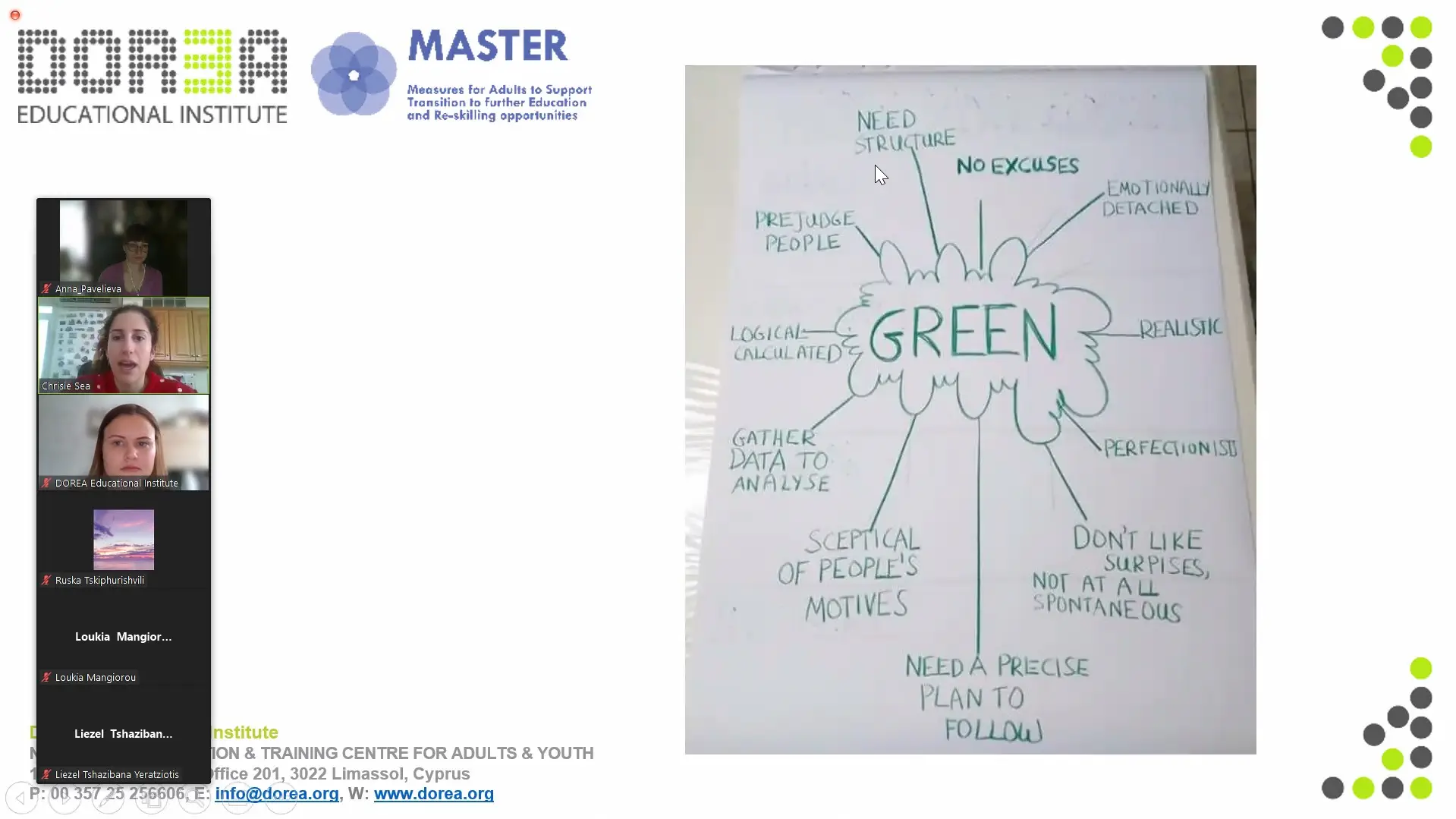
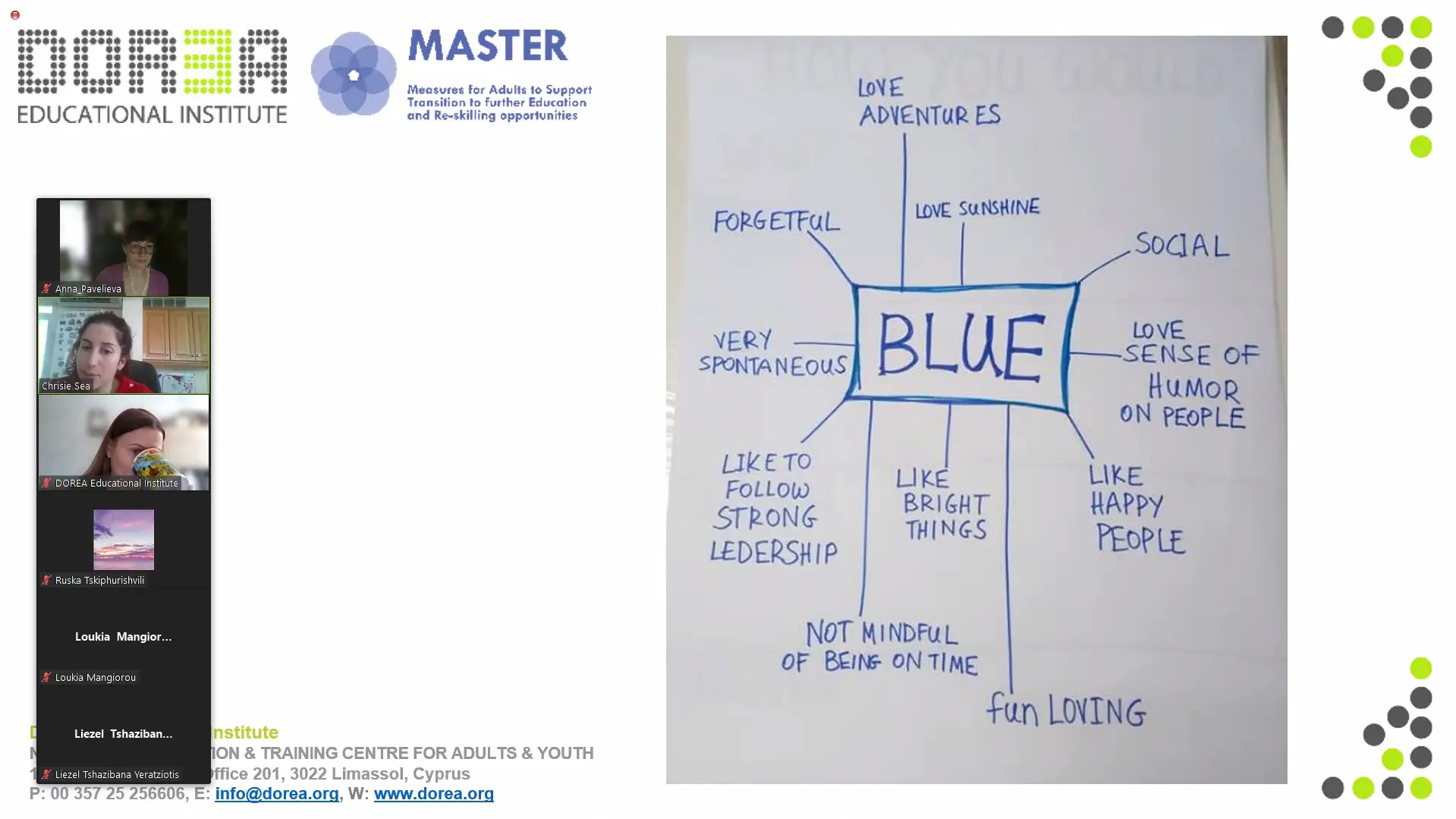
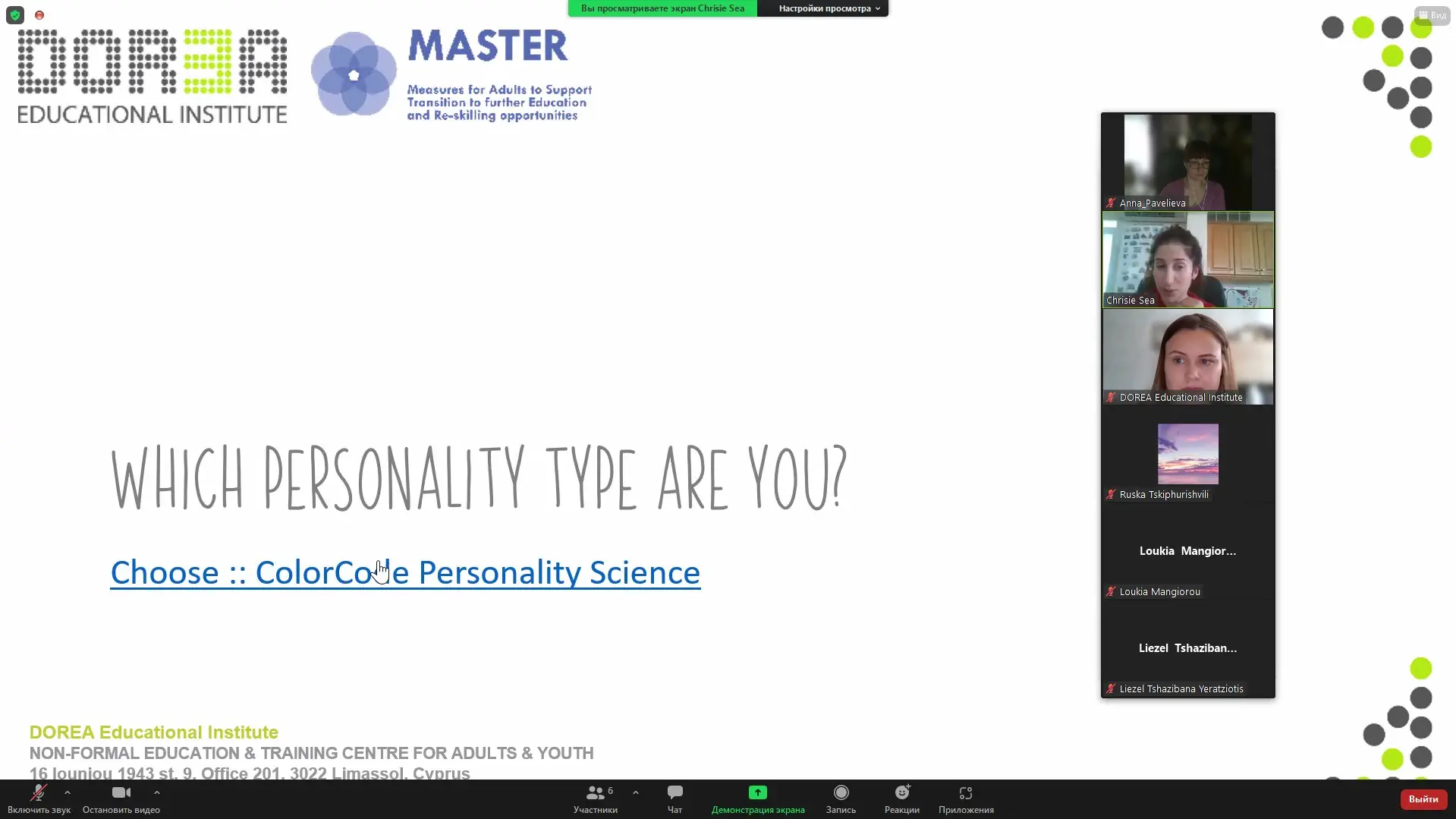
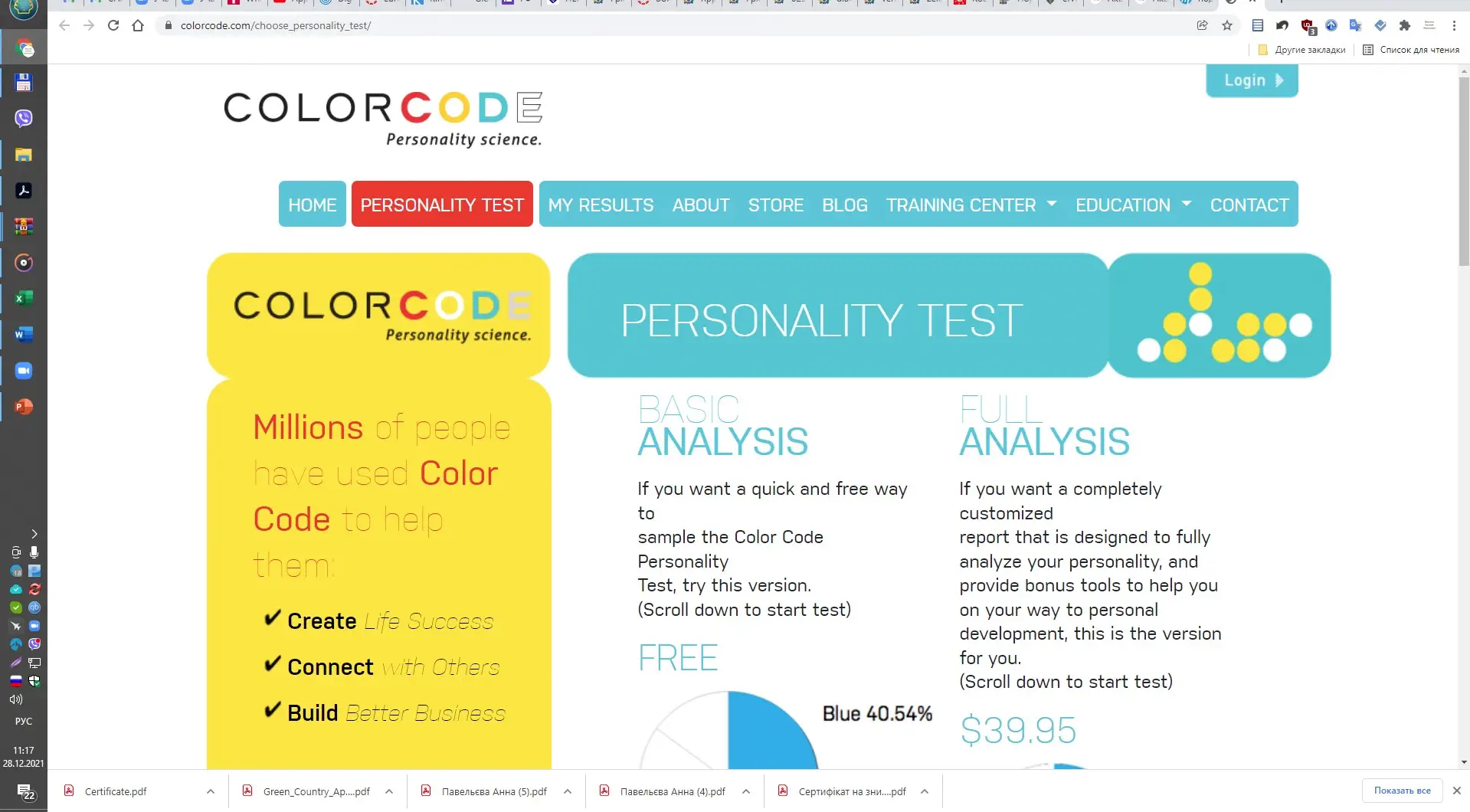
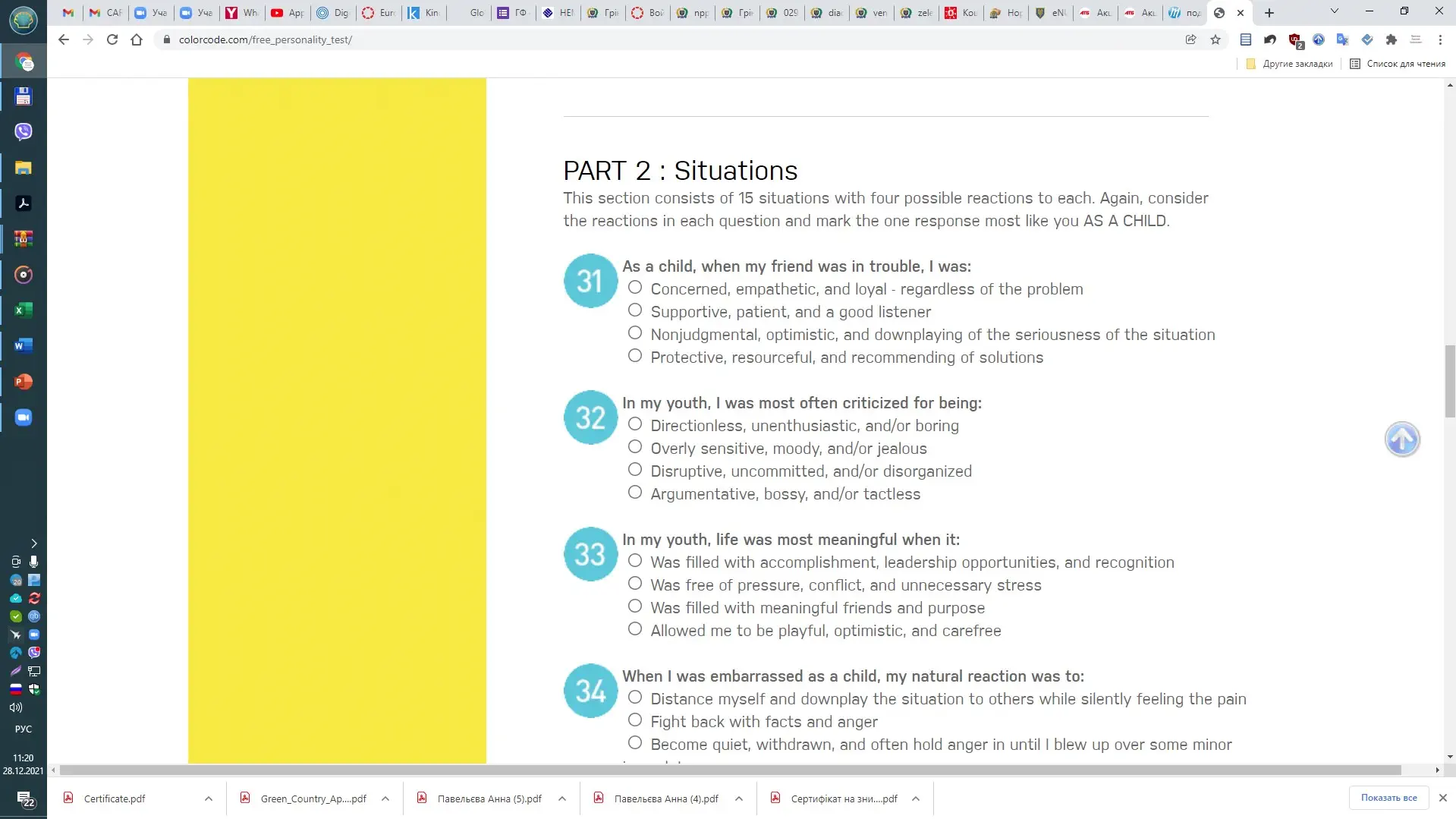
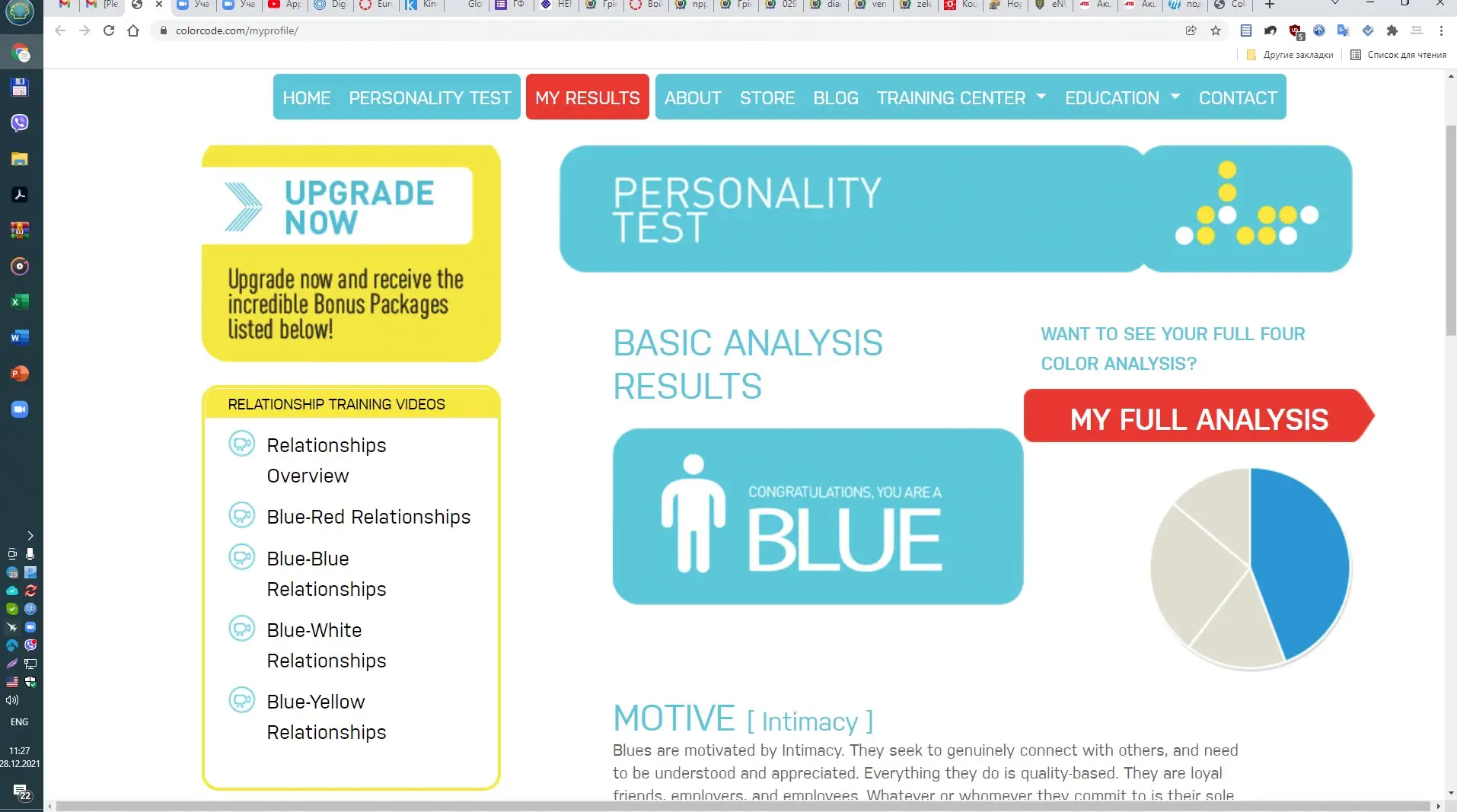
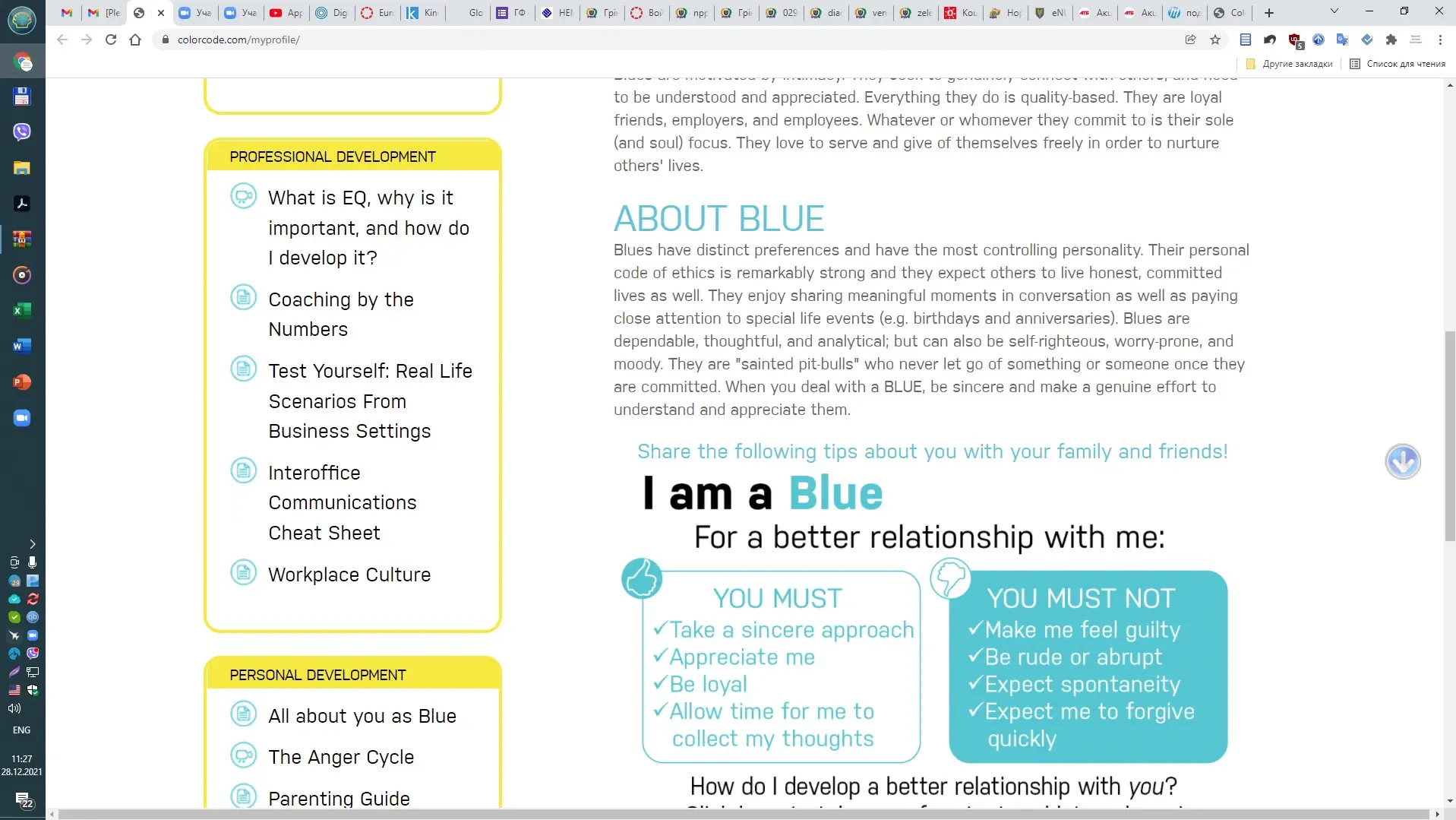
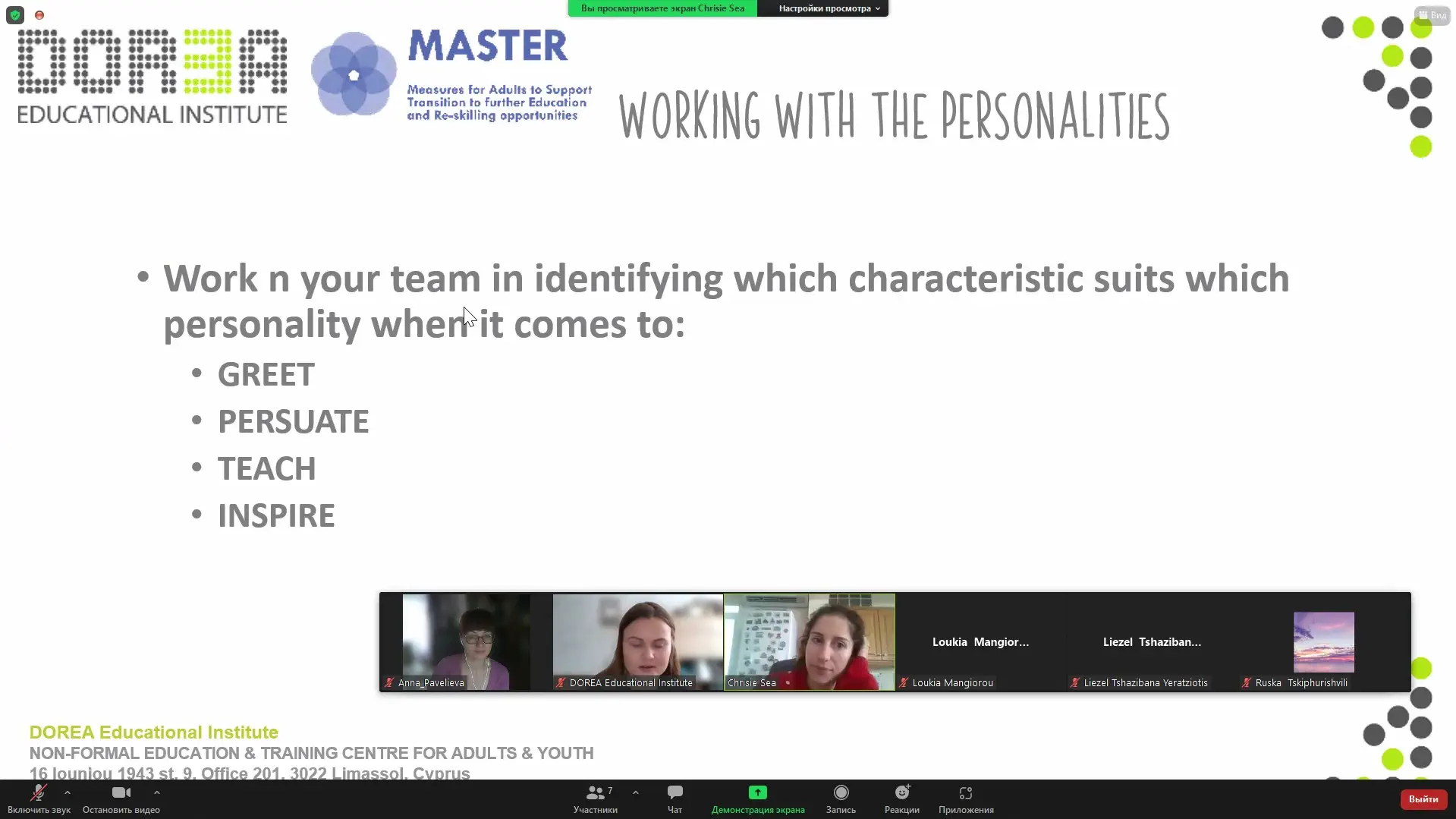
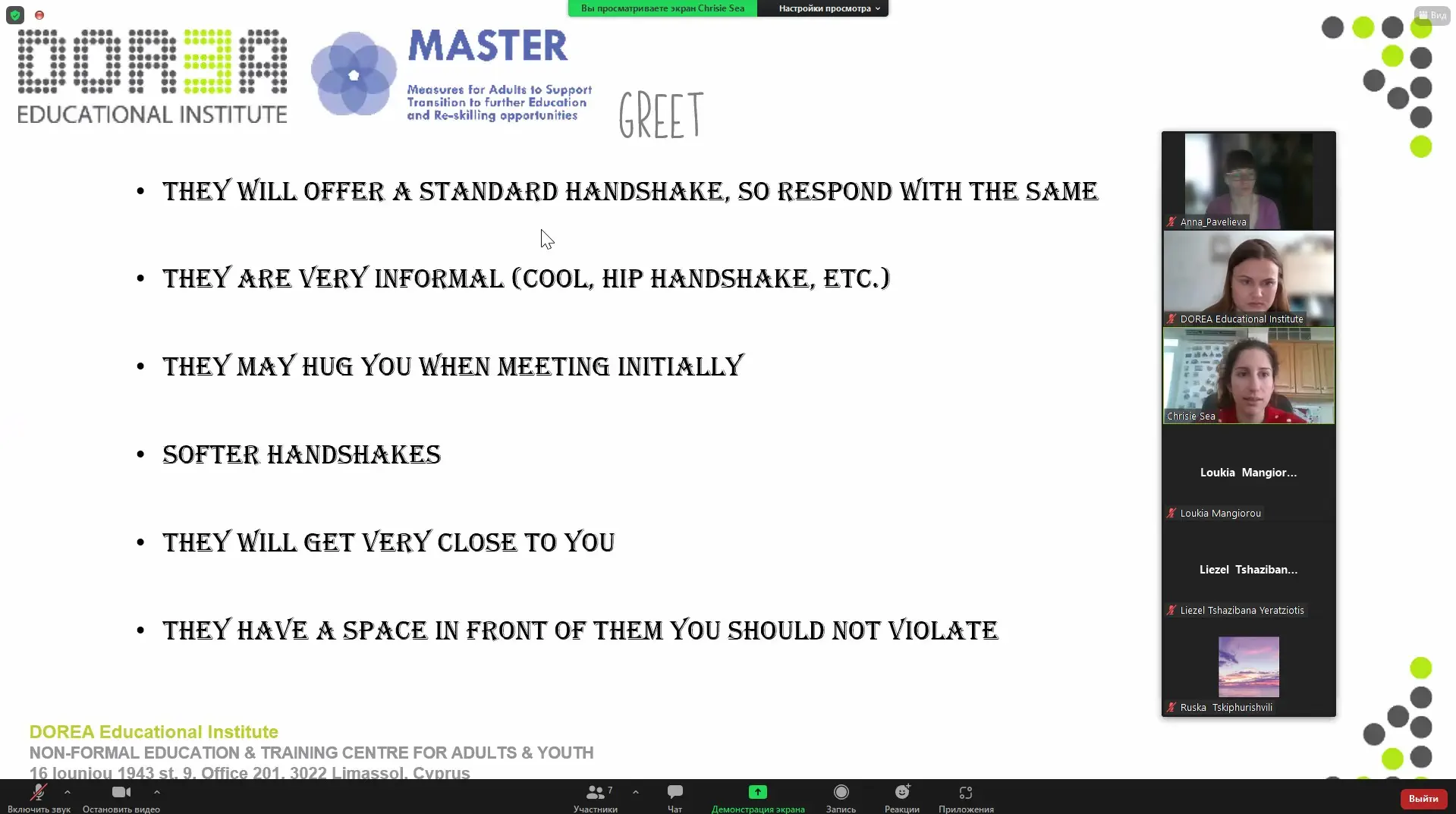
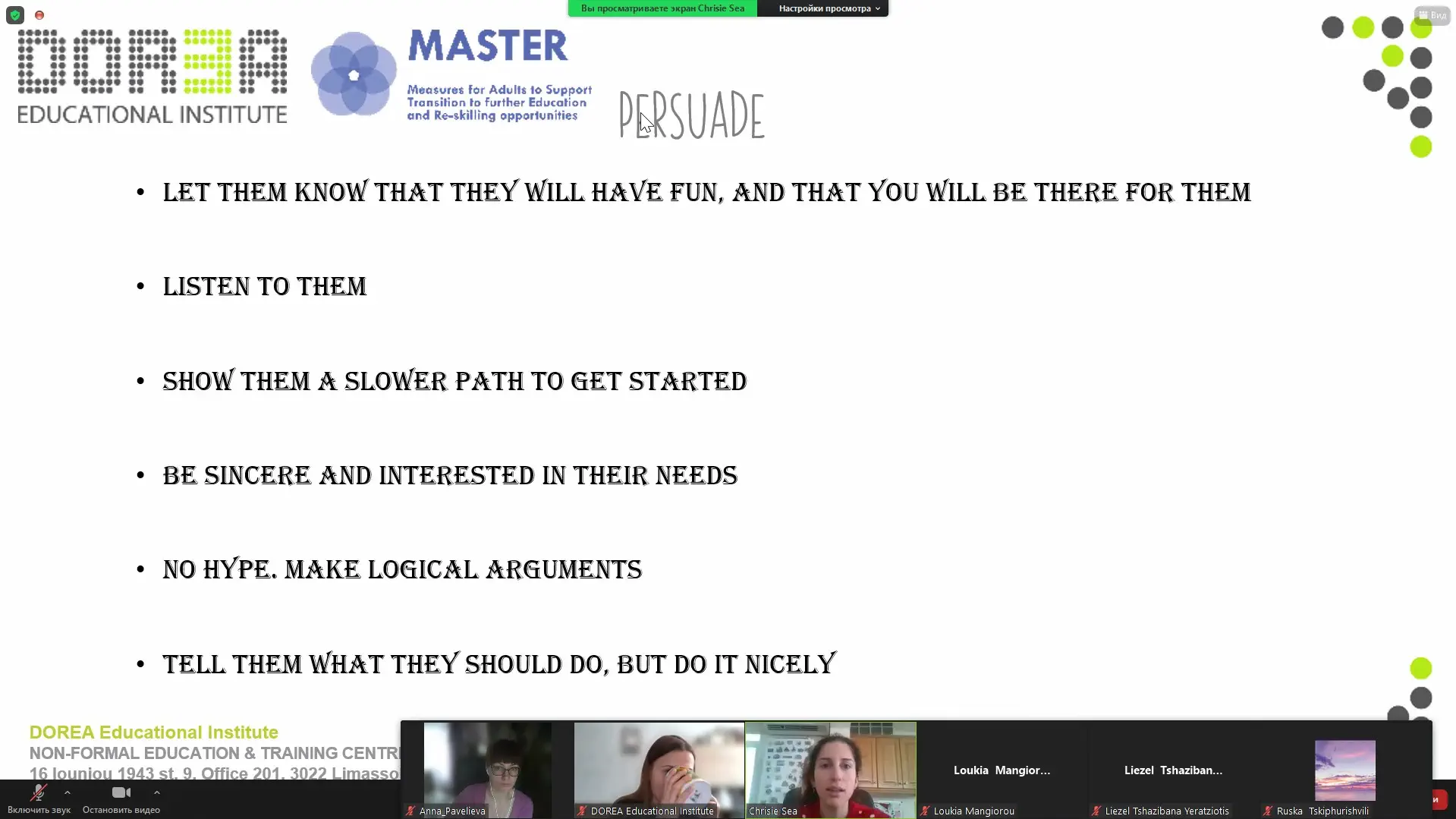
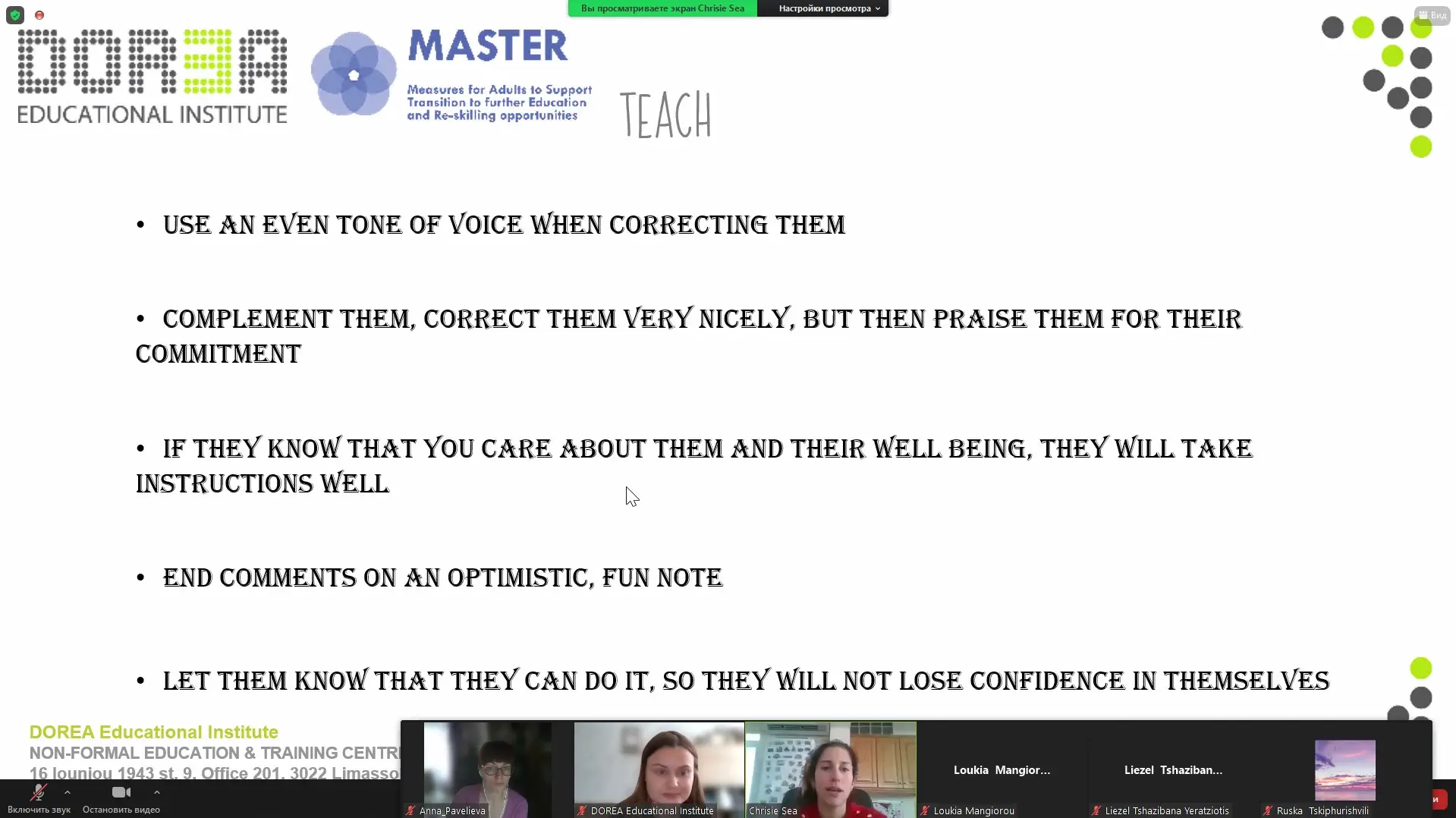
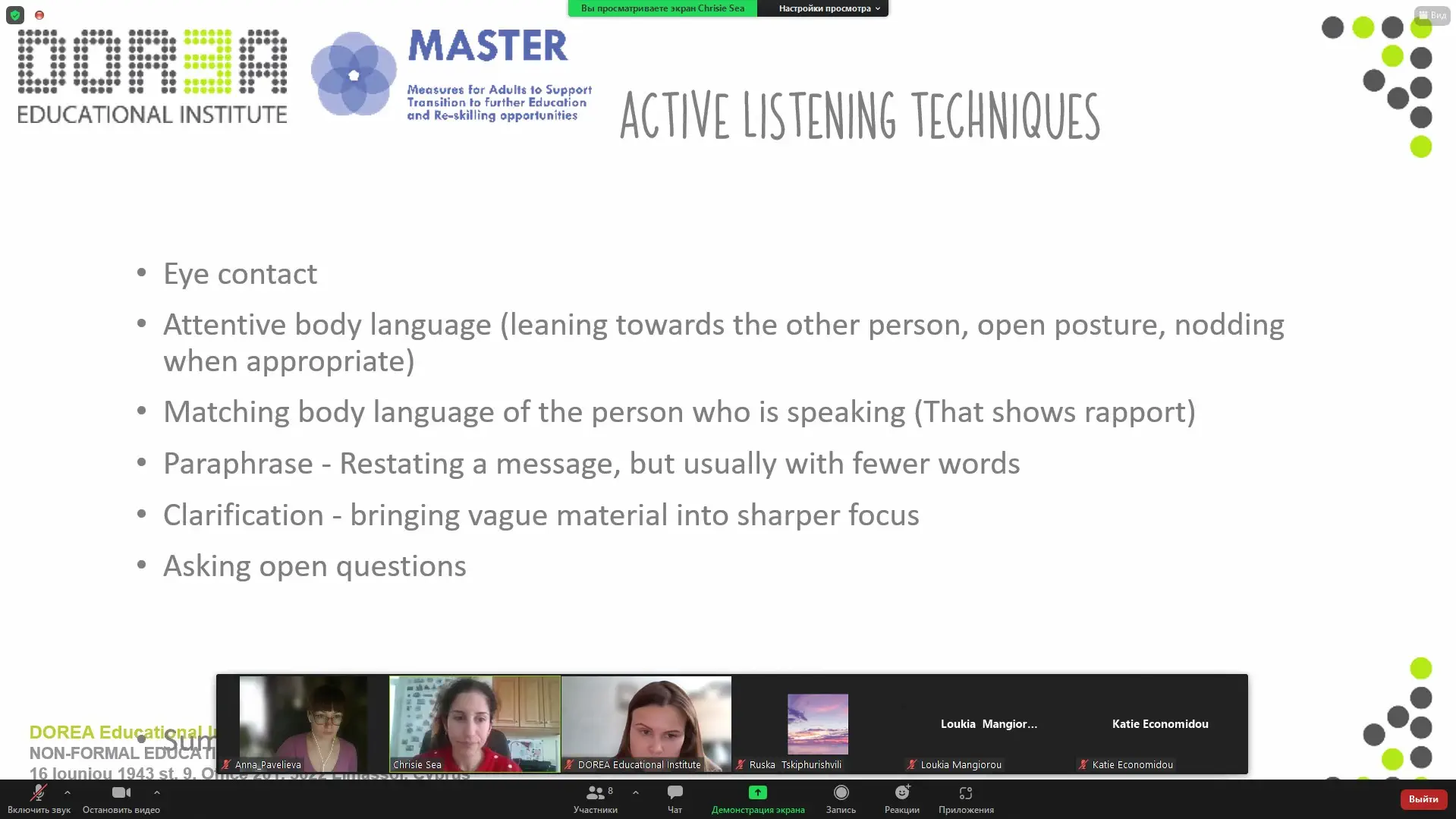
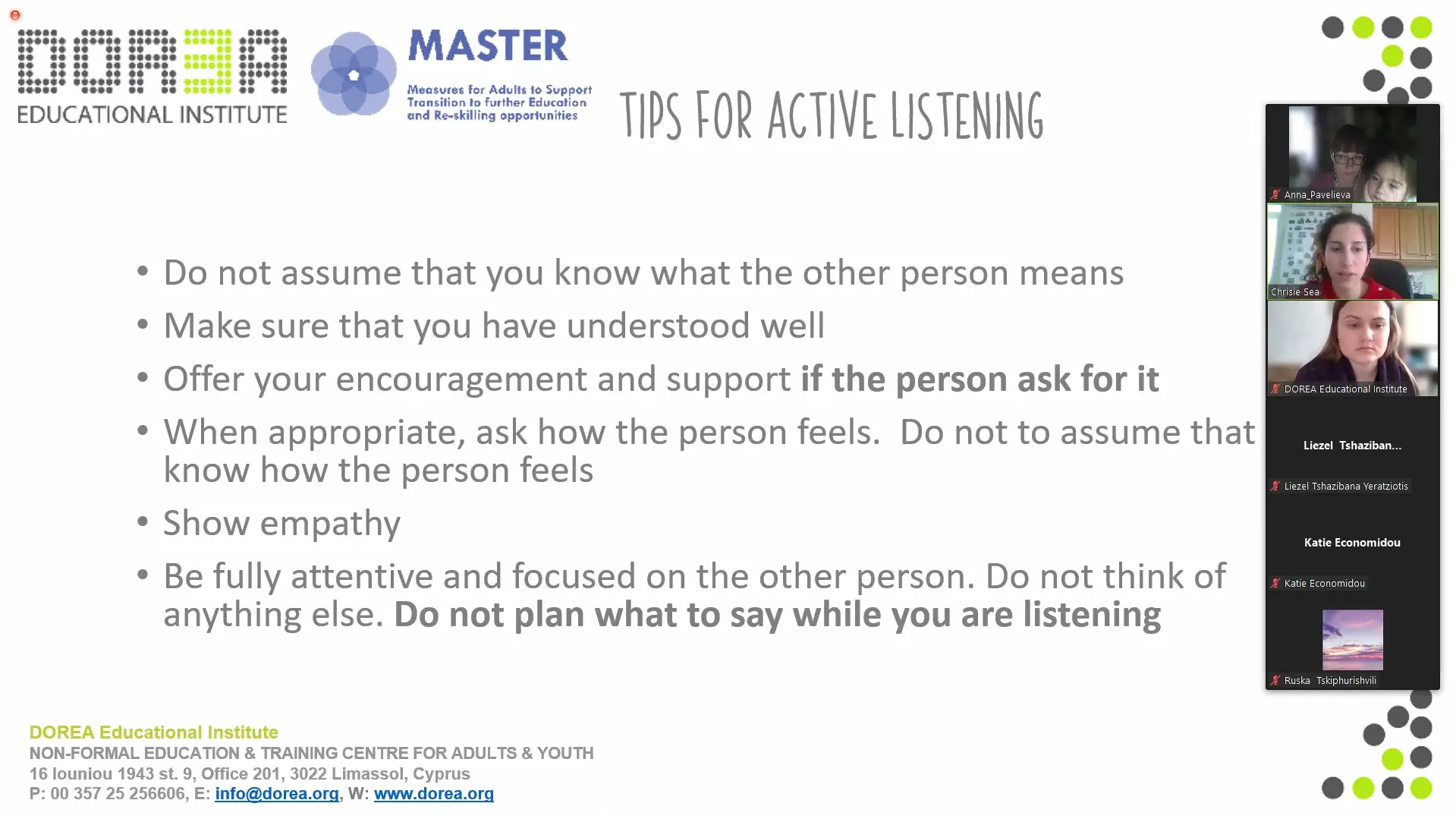
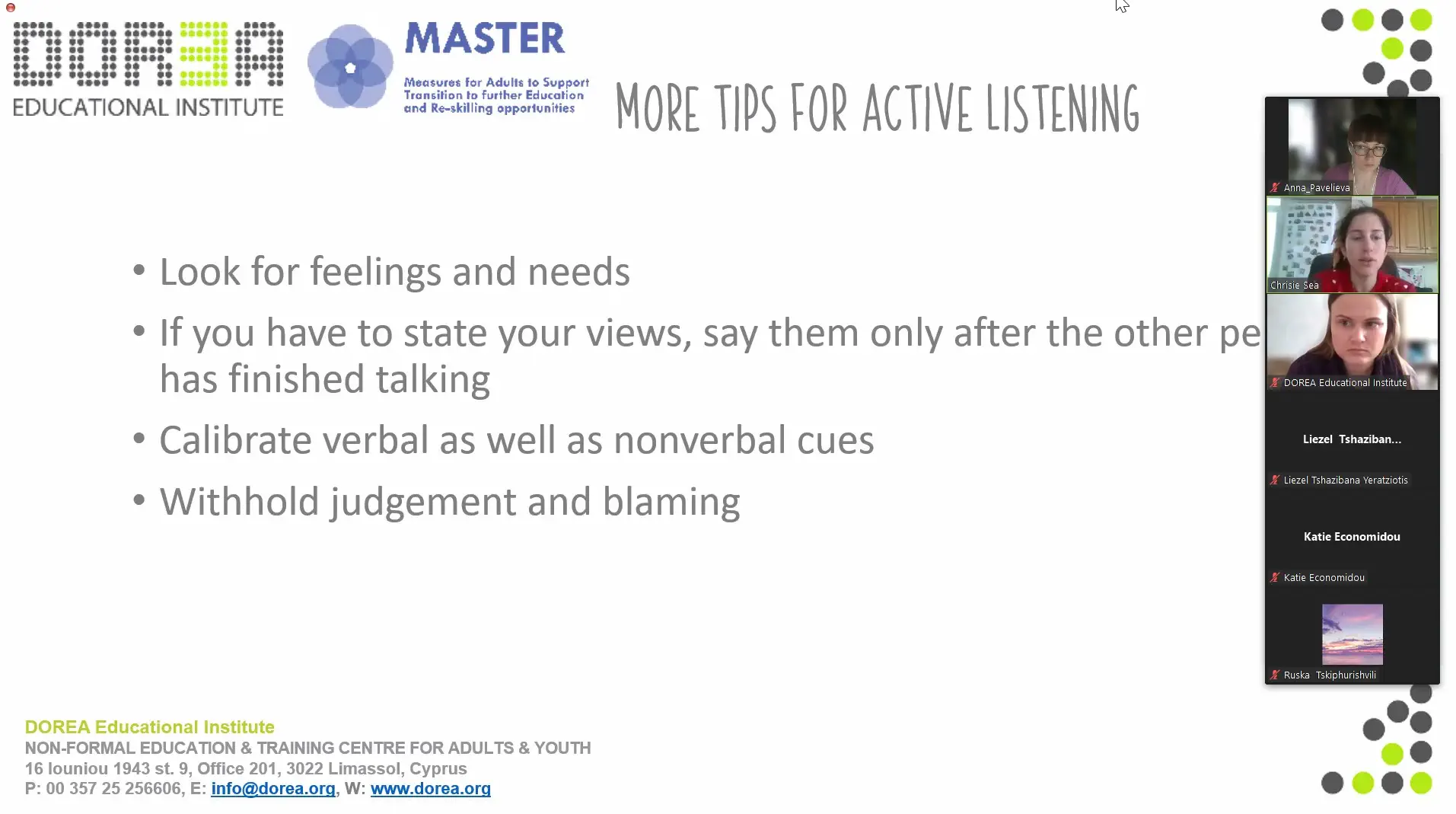
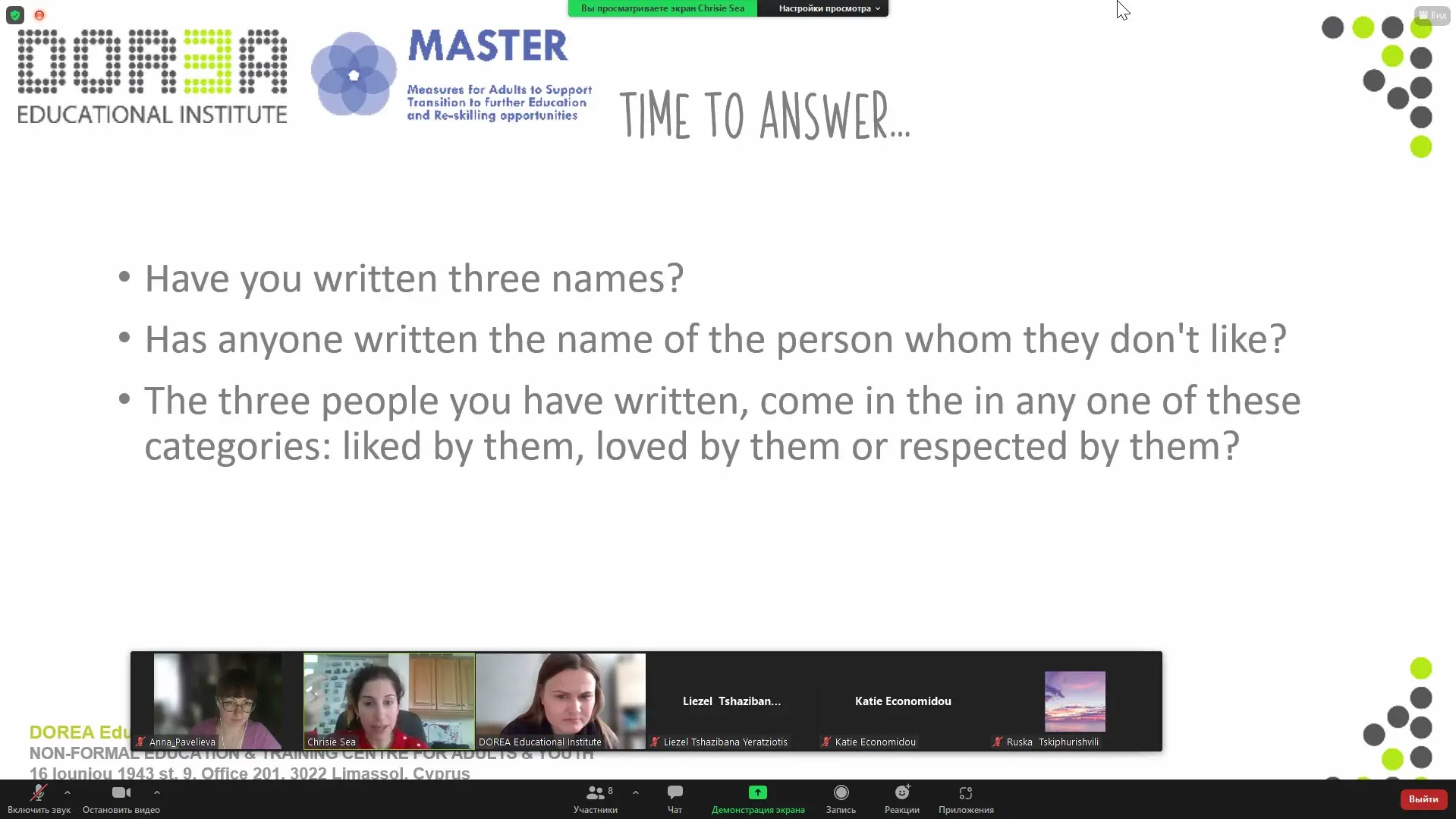
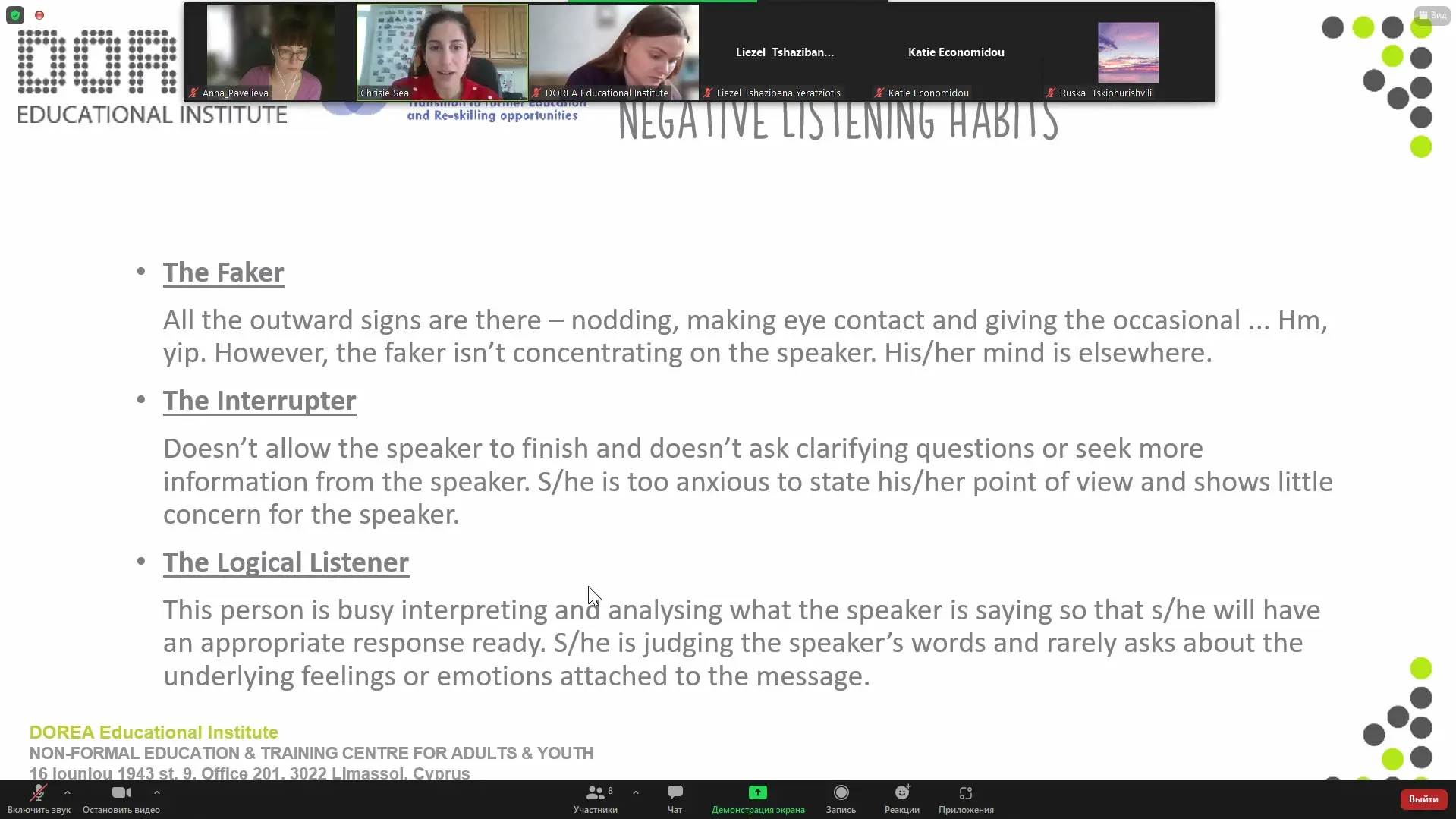
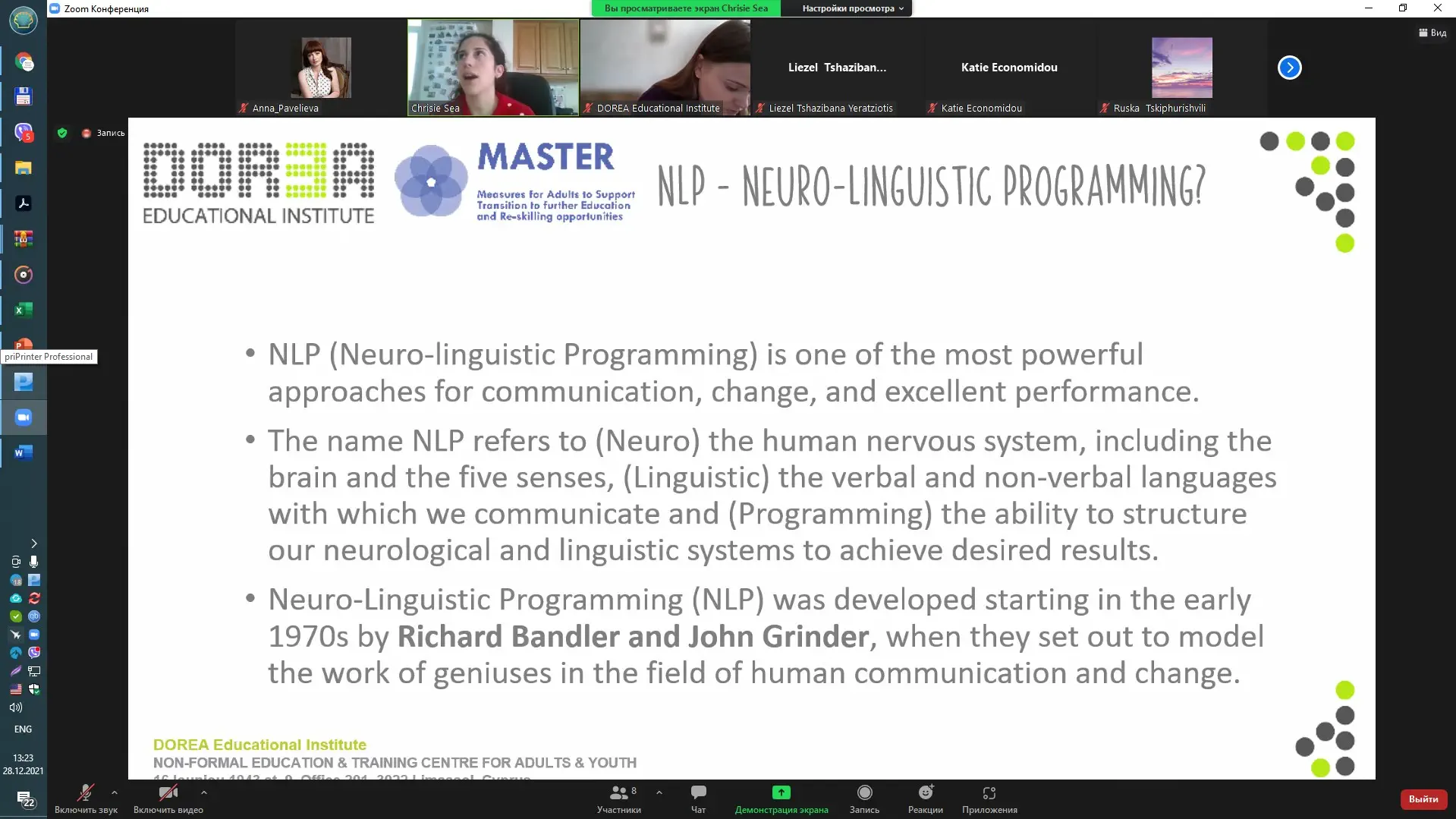
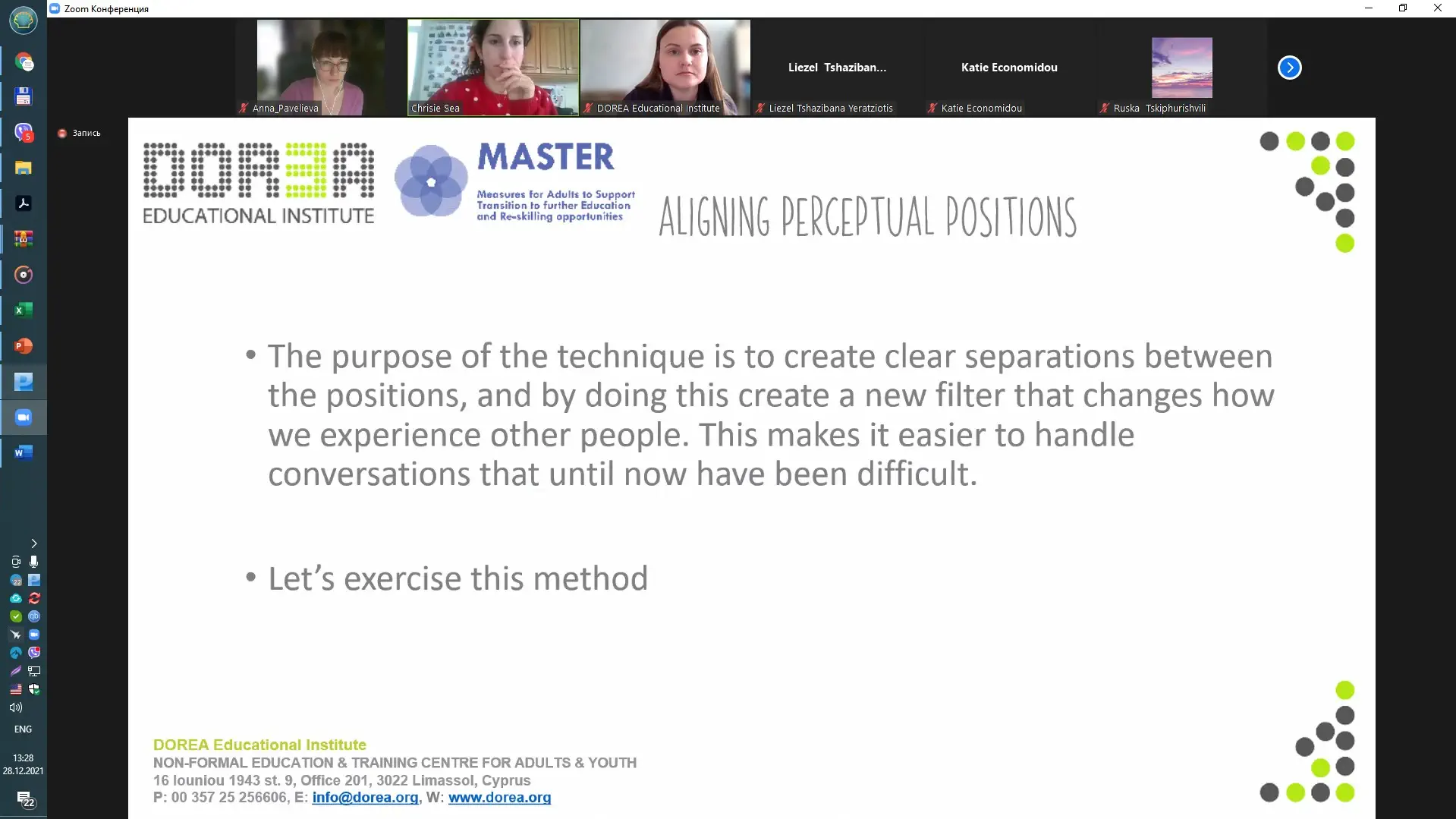
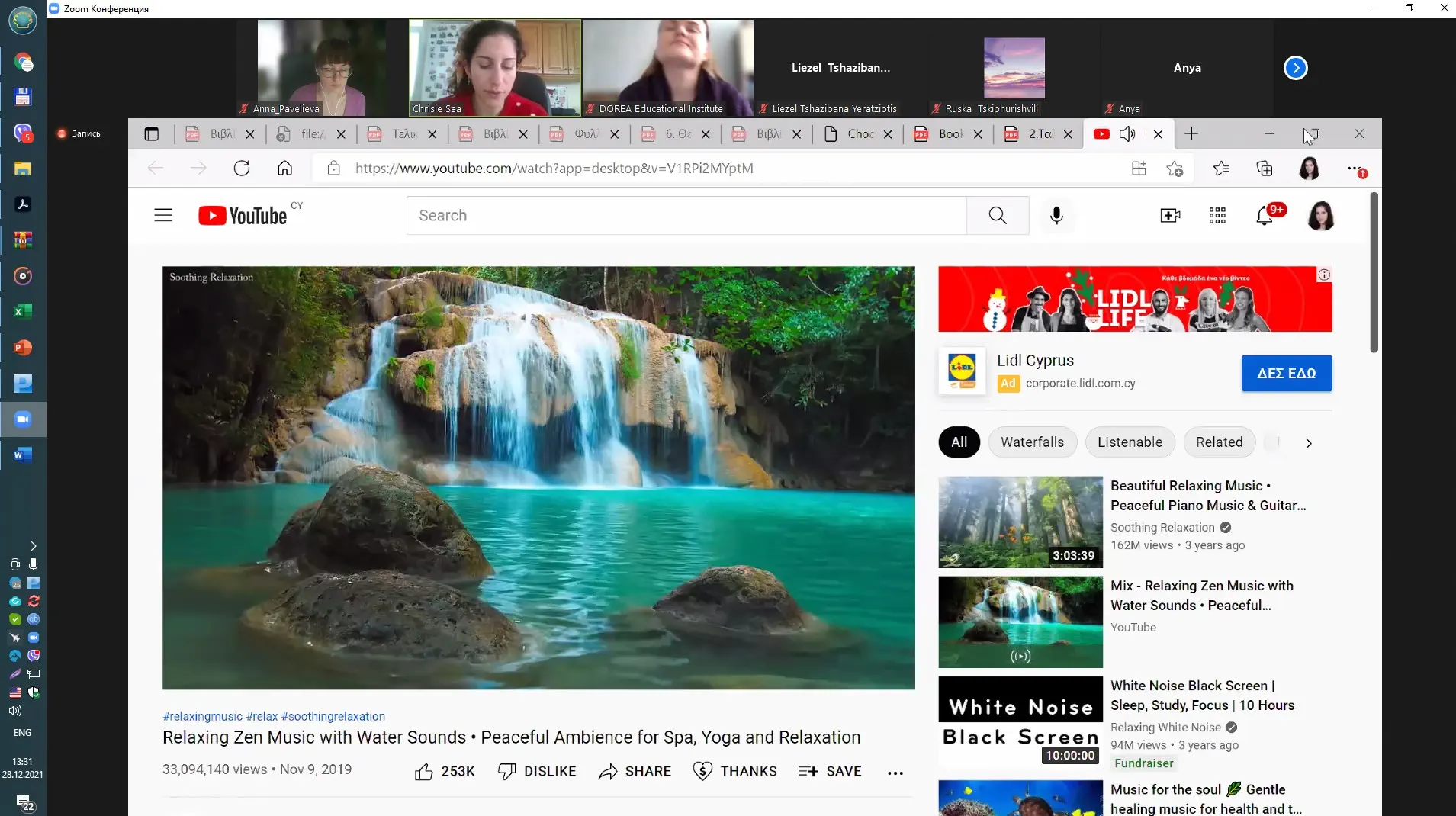
During the classes, scientists from around the world discussed how to give feedback to a person whose behavior has led to a conflict situation (it is necessary to emphasize the positive points – what the person did well, and then advise what could be done better) and why this should be done (in order to see the situation from a different point of view and to change the behavior of the recipient).
After the theoretical informative part of the training, coaches asked the partakers to find solutions to the problems outlined in 5 life situations, based on a 5-step model of problem solving.
Much attention has been paid to what feedback is and how to give it correctly using the Sandwich Model (the so-called sandwich principle – “praise – criticism – praise”): first give a general feedback – then give 1 advice on what could be improved – and then highlight the 3 positive points you noticed. The feedback formula recommended by psychologists was also considered: observable behavior (clear, reasoned description of the behavior of another person we observed) – impact of the behavior (information on the impact of such behavior on the recipient, on you, on the organization, etc.) – preferred behavior (the expression of ideas about other behaviors that would prompt a person to rethink an unpleasant situation).
Coach Chrisie Doluay gave practical advice on how to formulate feedback correctly: think about what you want to say before you say it out loud; express your opinion on only those points that can be changed or improved; make sure that your feedback will help the person, and won’t harm them, keep eye contact during the conversation, express your opinion honestly and frankly.
To consolidate the material, partakers played the game “Life Boat Game”, the essence of which is that there is a ship with 15 passengers, which is sinking, and a lifeboat for 9 passengers: you need to decide who exactly and why out of 15 people should be “rescued”, and 9 selected passengers should then be listed according to their importance: from the most important to the least useful, since the supplies on the lifeboat will sooner or later run out and you have to “throw overboard” passengers. This game is interesting in terms of developing teamwork skills, conflict management and communication skills development, as all participants had to agree with each other for a limited period of time, choose a strategy and solve tasks.
Also during the training, 5 key components of “active listening techniques” were analyzed: eye contact, body language, paraphrasing, clarifying questions and asking “open questions”.
On the last day of the training, there was considered classification of personality types by color, suggested by Tom Schrider, who identified four types of people who correspond to the four basic colors:
1) Red – innate leaders who always know exactly what they want, and are ready to achieve their goal sometimes with tough methods and at the same time very decisively. It is them who can be described as “I see the purpose, I do not see obstacles”. Their job is to organize the process so that everything works smoothly and efficiently. They like to solve difficult problems, compete and win laurels.
2) Blue – love to be the center of attention and ready to demand recognition at all costs. Usually, such personalities like to be in society, as it is among people that they can find many admirers of their talents. “Blue” people easily find new friends and communicate with strangers, they are positive and effervescent, easily fascinated by new ideas and projects.
3) Green – before embarking on any case, they will carefully study everything related to this issue, weigh the pros and cons of the future event and only then slowly take up the case. Phlegmatics are most often “green”, although there are sometimes melancholics among them.
4) Yellow – friendly and caring not only to their loved ones, but also to people who just happened to be around. It is important for them to feel comfortable in any situation and atmosphere. They are wary of innovations, for them the main thing is to maintain stability and steadiness, whether it is about work, relationships, their mental state or social status. They are always ready to listen, sympathize and help as much as possible, but it is difficult to expect decisive action or initiative from them. Typically, most often representatives of melancholic temperament belong to the “yellow” type.
During the training it was also discussed how to properly greet, persuade, teach and inspire people who belong to a particular “color” psychotype. The coach told the participants how to find out what type one’s team member/pupil/student/employee/subordinate belongs to, and stressed that one can successfully interact with anyone, no matter what “color” their temperament is, one can successfully interact, inspire new accomplishments and just make them move in the right direction, the main thing is to choose the right strategy and for people of each color this strategy will be different.
“Taking part in such trainings gives me additional educational opportunities and powerful incentives to learn new, necessary in professional activities, information and practical skills. This year I have already attended many trainings, master classes and webinars, got acquainted with extraordinary personalities and gained useful experience. I am happy to share my practical cases and effective professional life hacks with students and colleagues,” – commented Candidate of Philology, Associate Professor of the Department of Germanic Philology and Translation at the National University “Yuri Kondratyuk Poltava Polytechnic” Anna Pavelieva.
DOREA Educational Institute is an educational and training center for adults and young people, founded in Cyprus in 2012, which implements EU projects in the field of education, in particular, conducts 38 unique courses in 12 different countries under Erasmus+ KA1 (staff mobility) as well as KA2, KA3 “Creative Europe” and “Europe for Citizens”.
The aim of this project was to actively encourage adults to master the skills of formal and non-formal education through the enhancement of their personal, social and educational competencies, development of employment skills (teamwork, communication skills and conflict resolution skills).
Earlier, scientist of the Faculty of Humanities presented the experience of cooperation with German universities, became an active participant in a series of spring scientific and educational webinars “Pearson English Spring Days”, where the latest trends in language teaching in a pandemic were discussed, took part in the international online marathon dedicated to the Day of the Translator, became a participant of the Erasmus+ project “Speak Up, we are Listening”.
Media Center of
National University “Yuri Kondratyuk Poltava Polytechnic”

